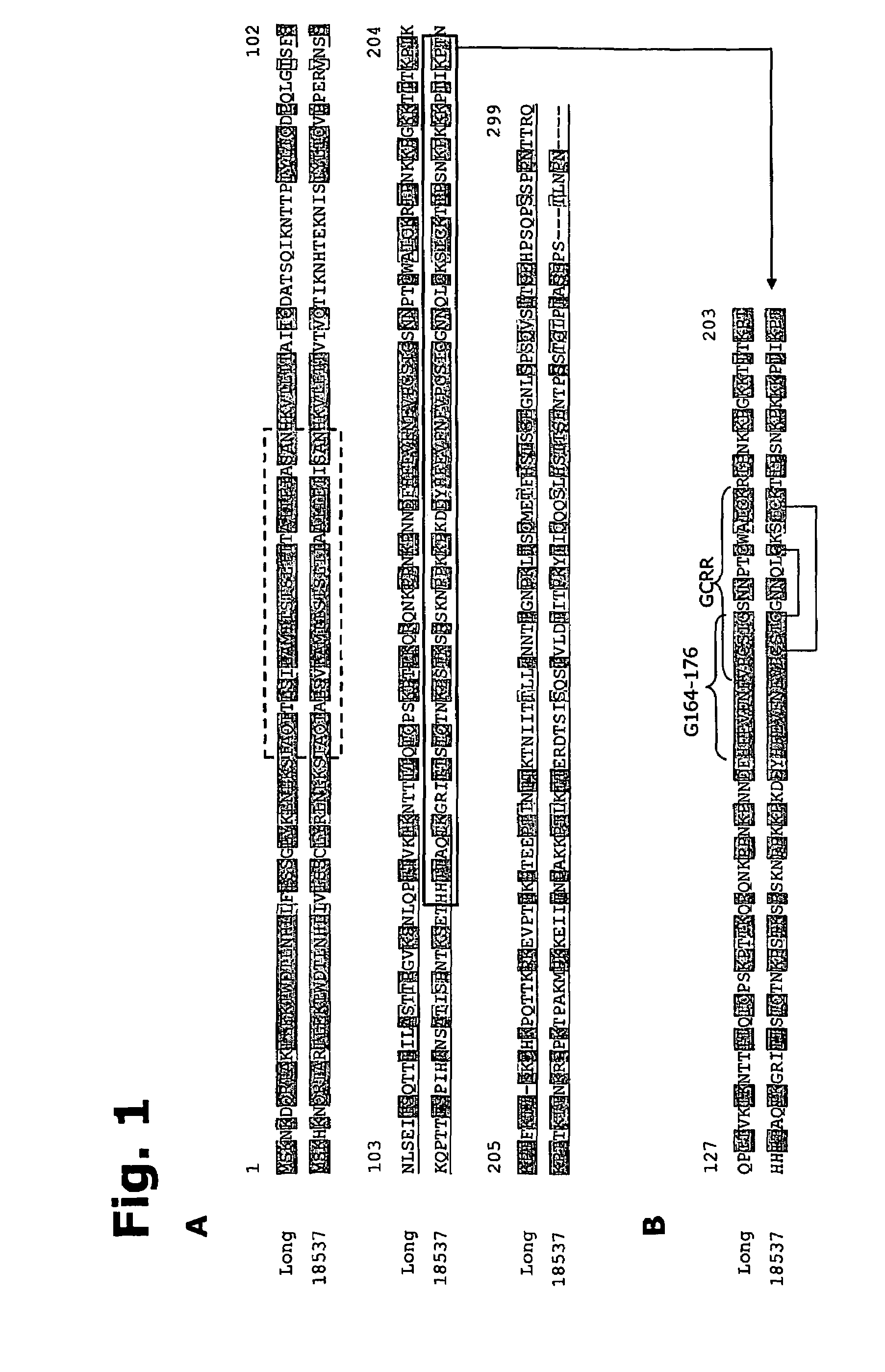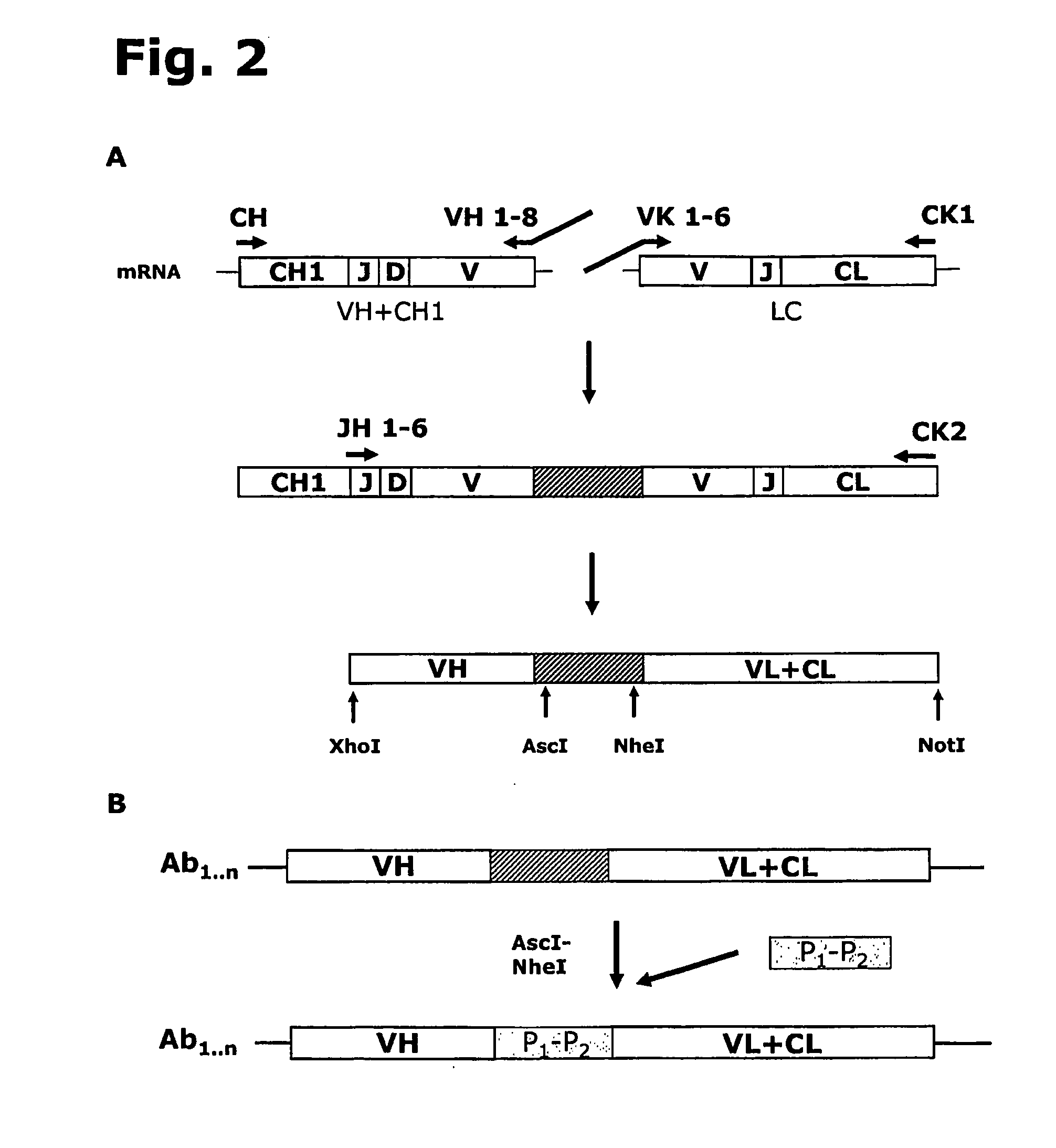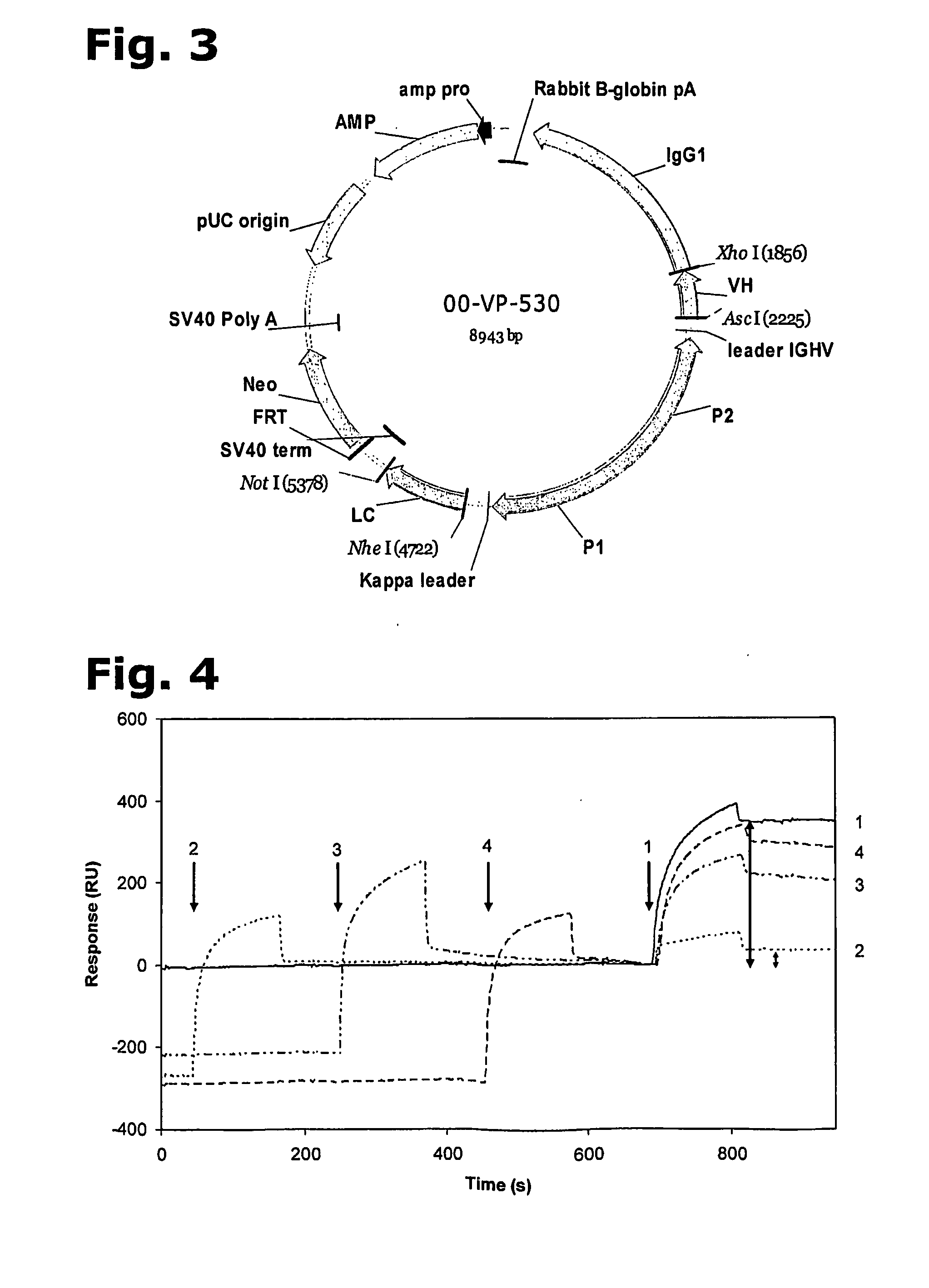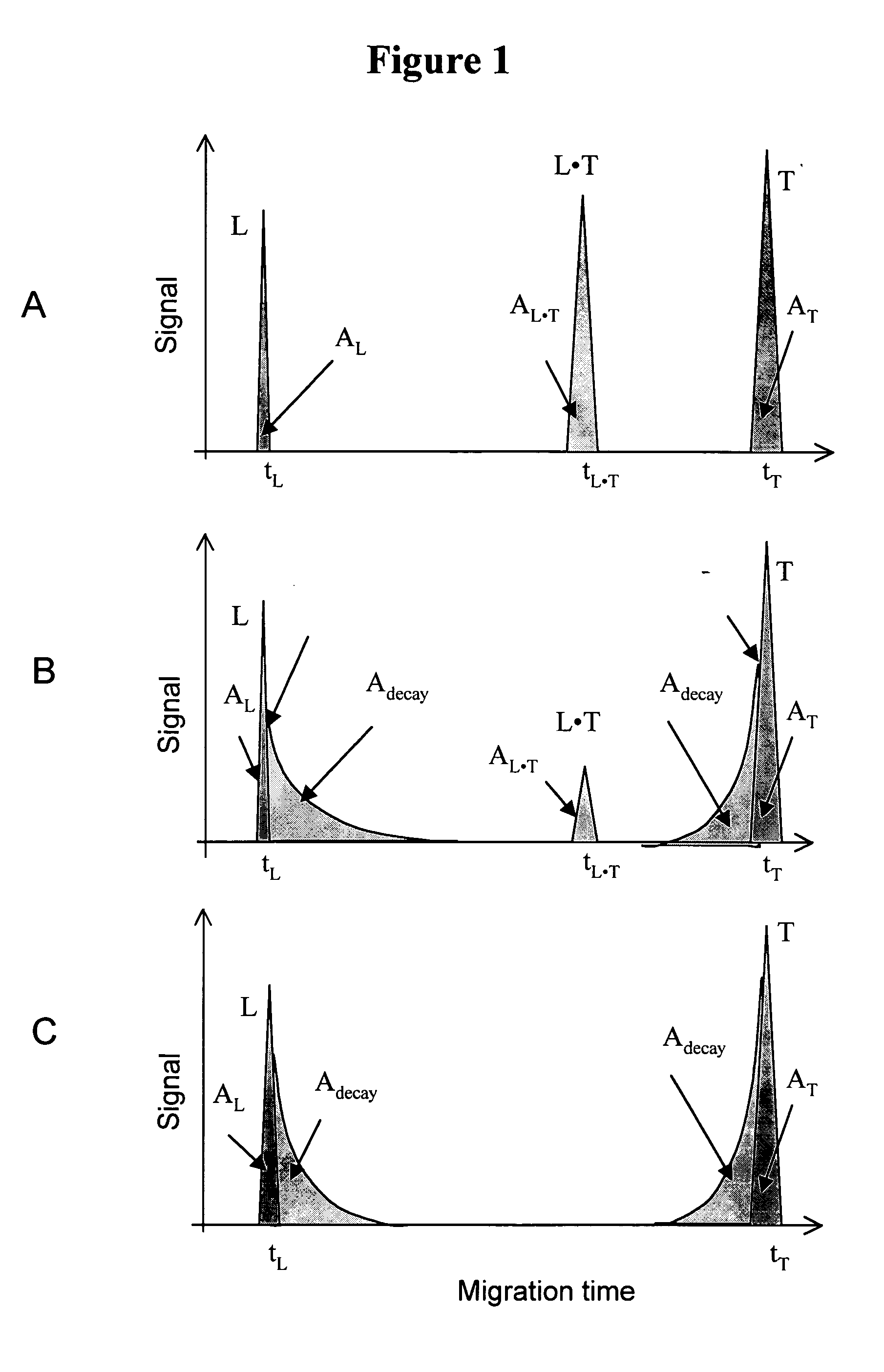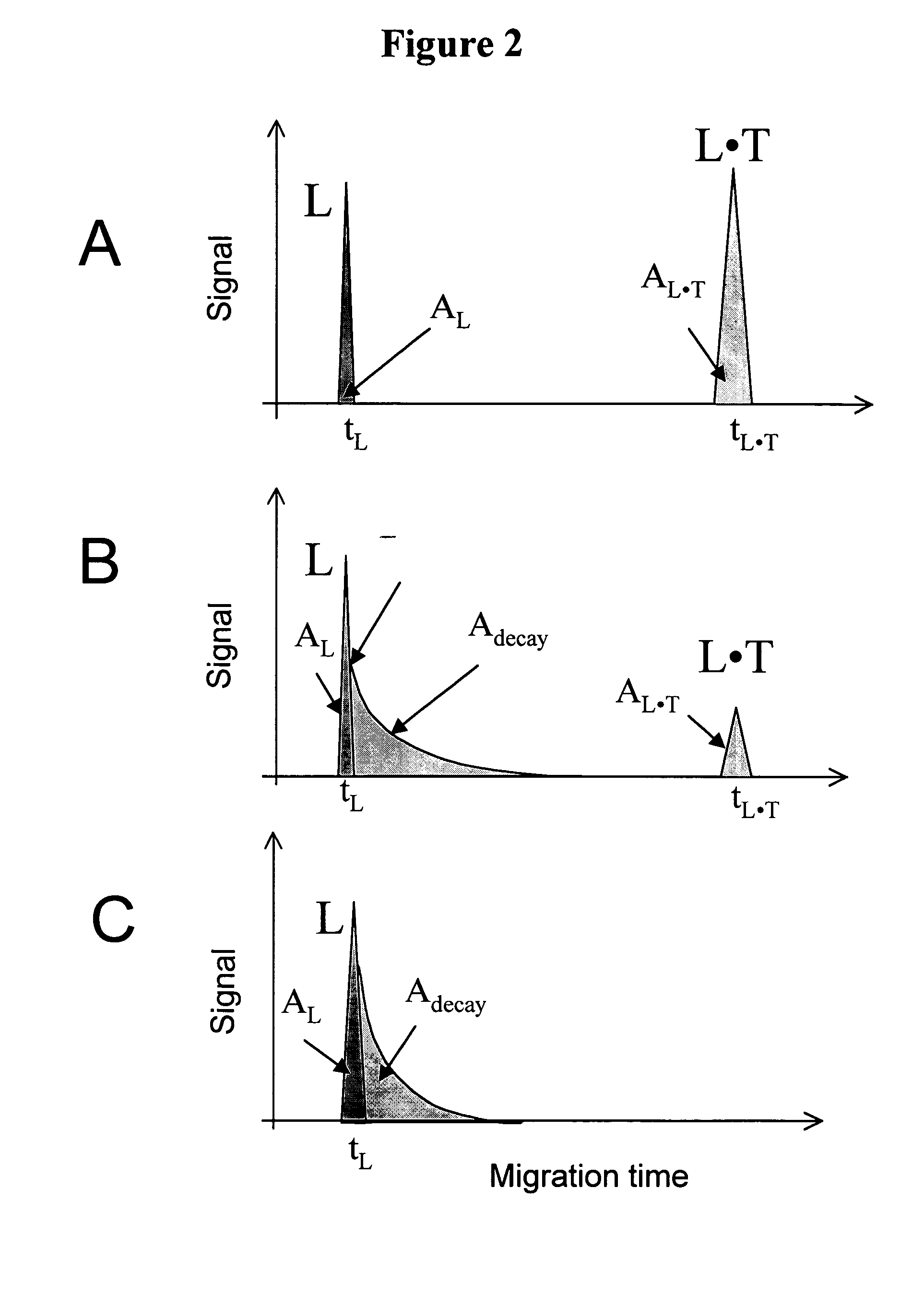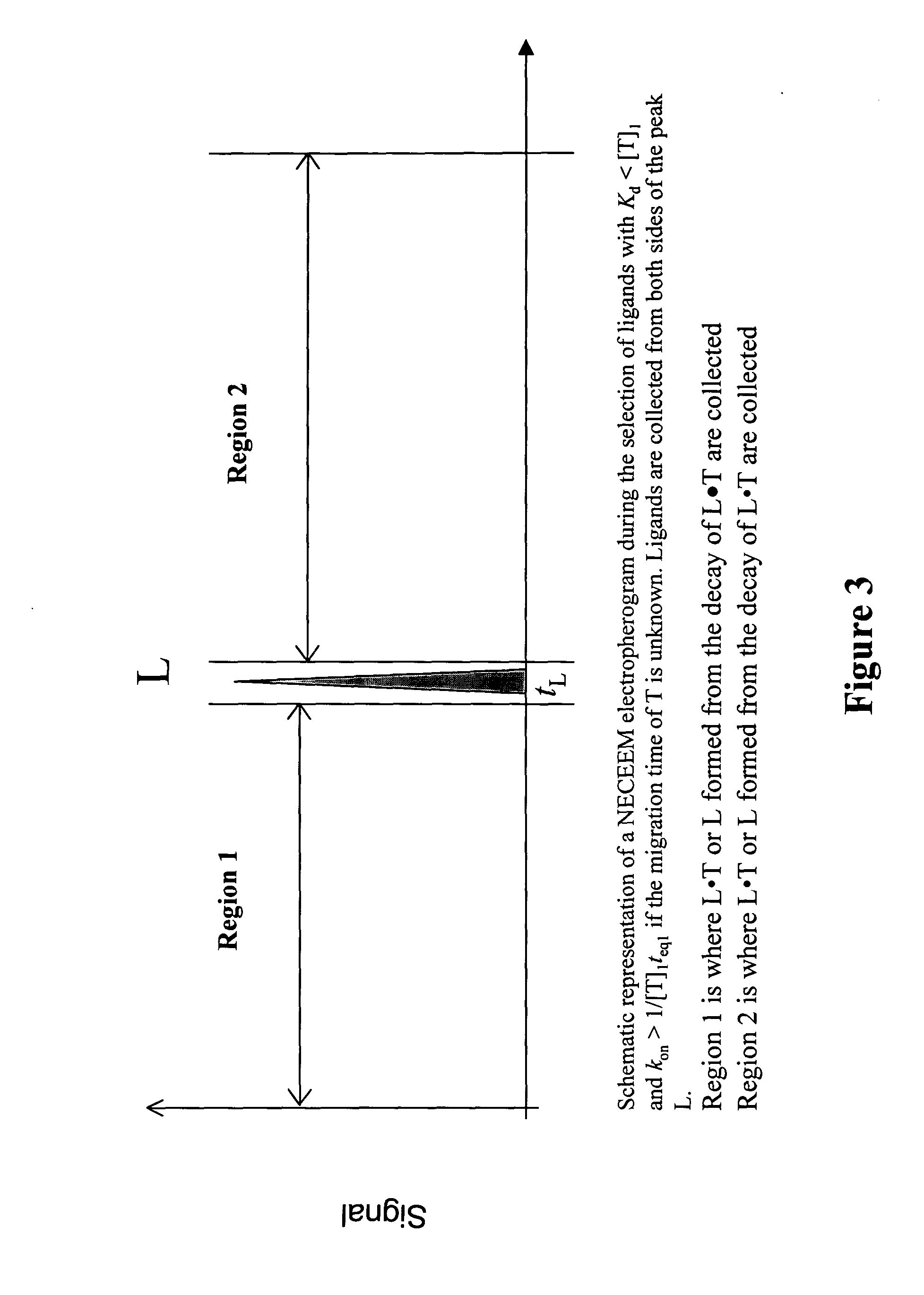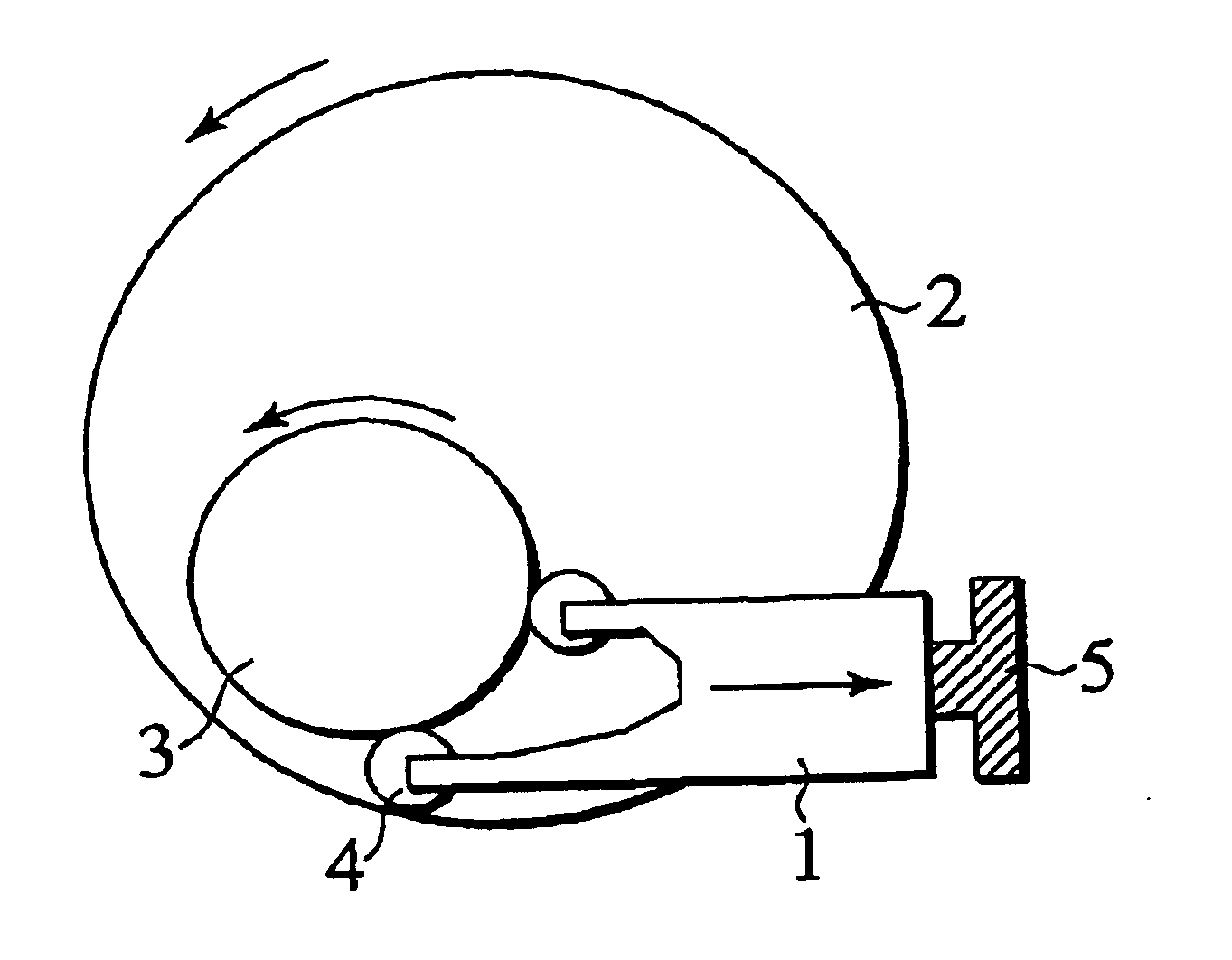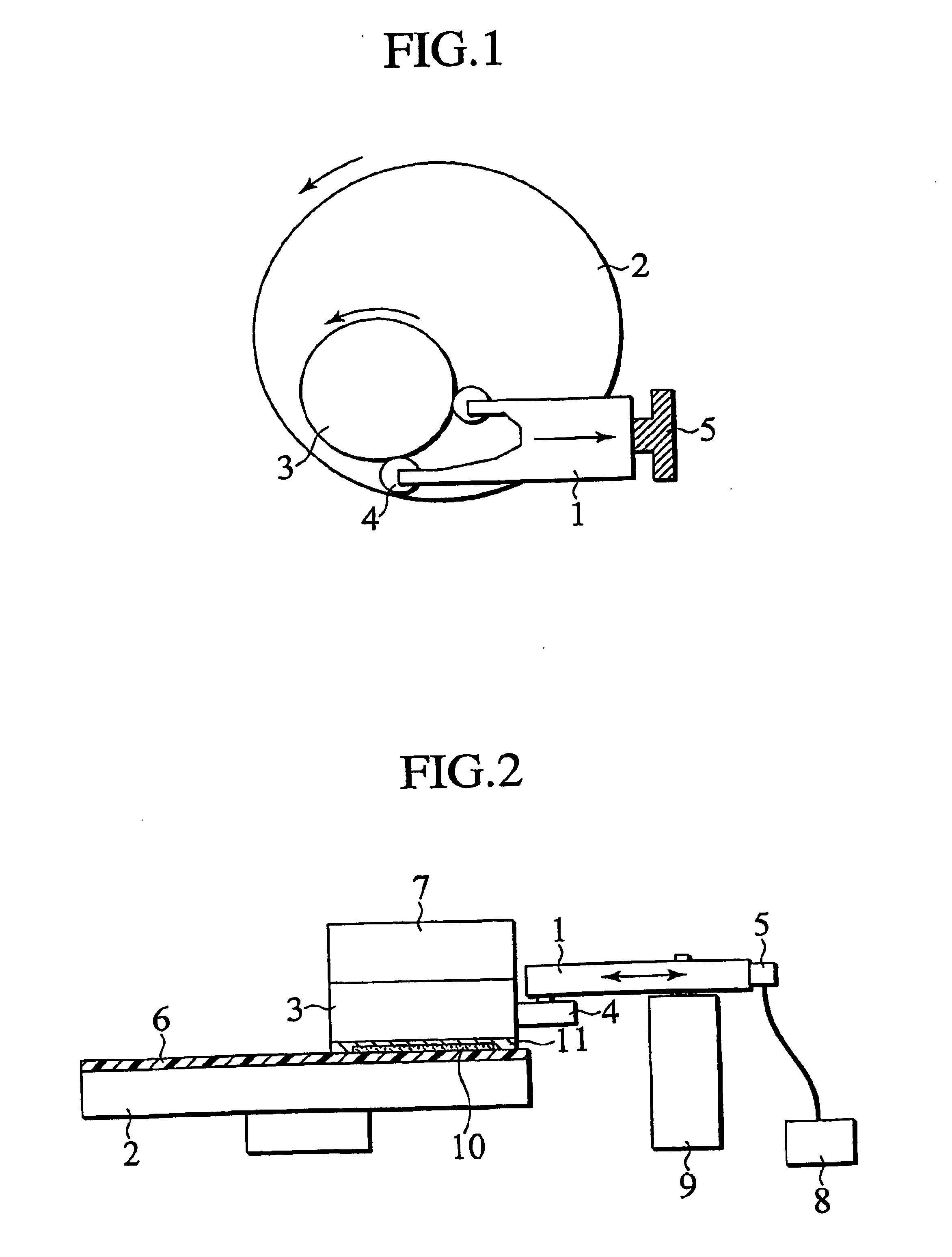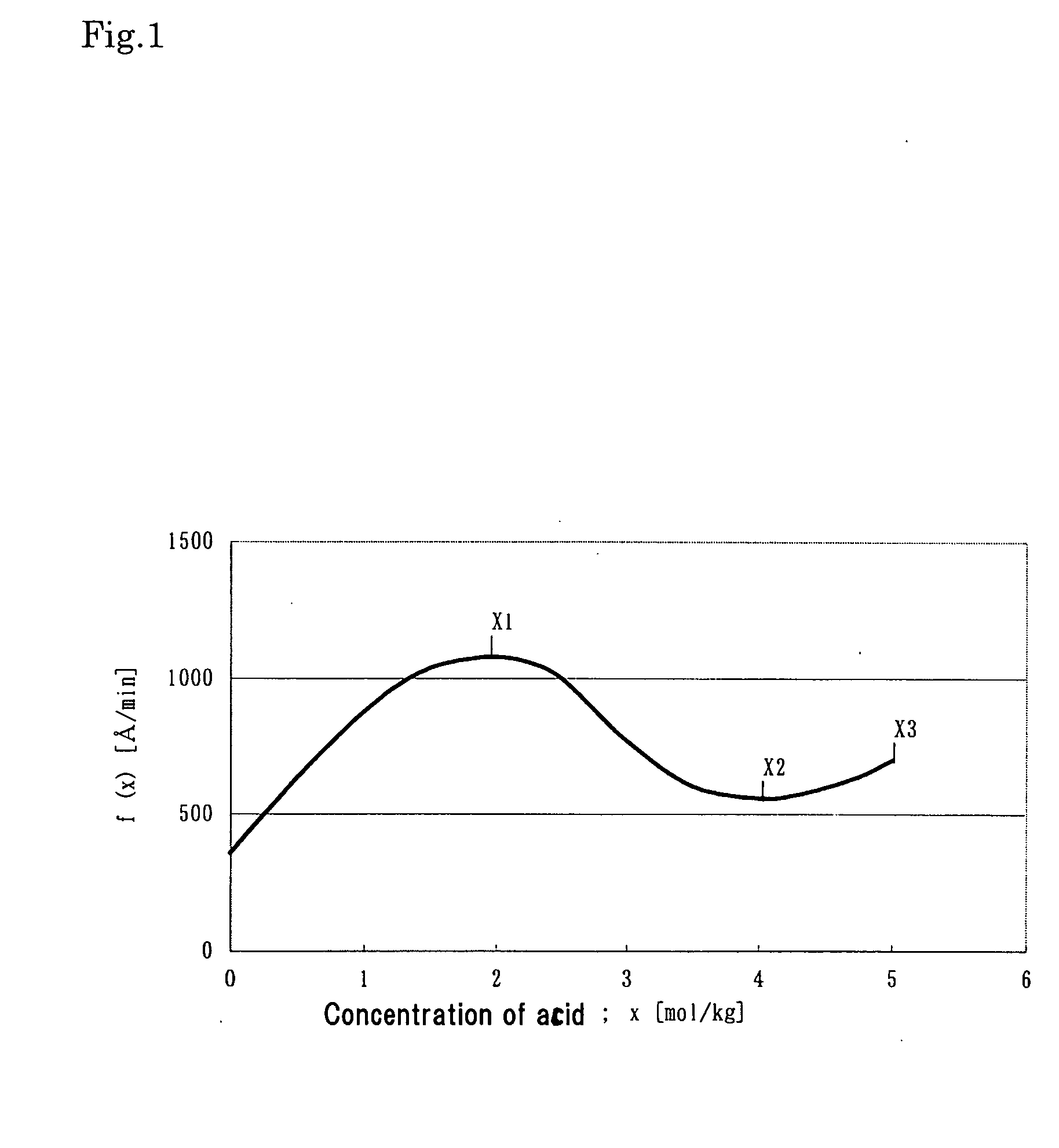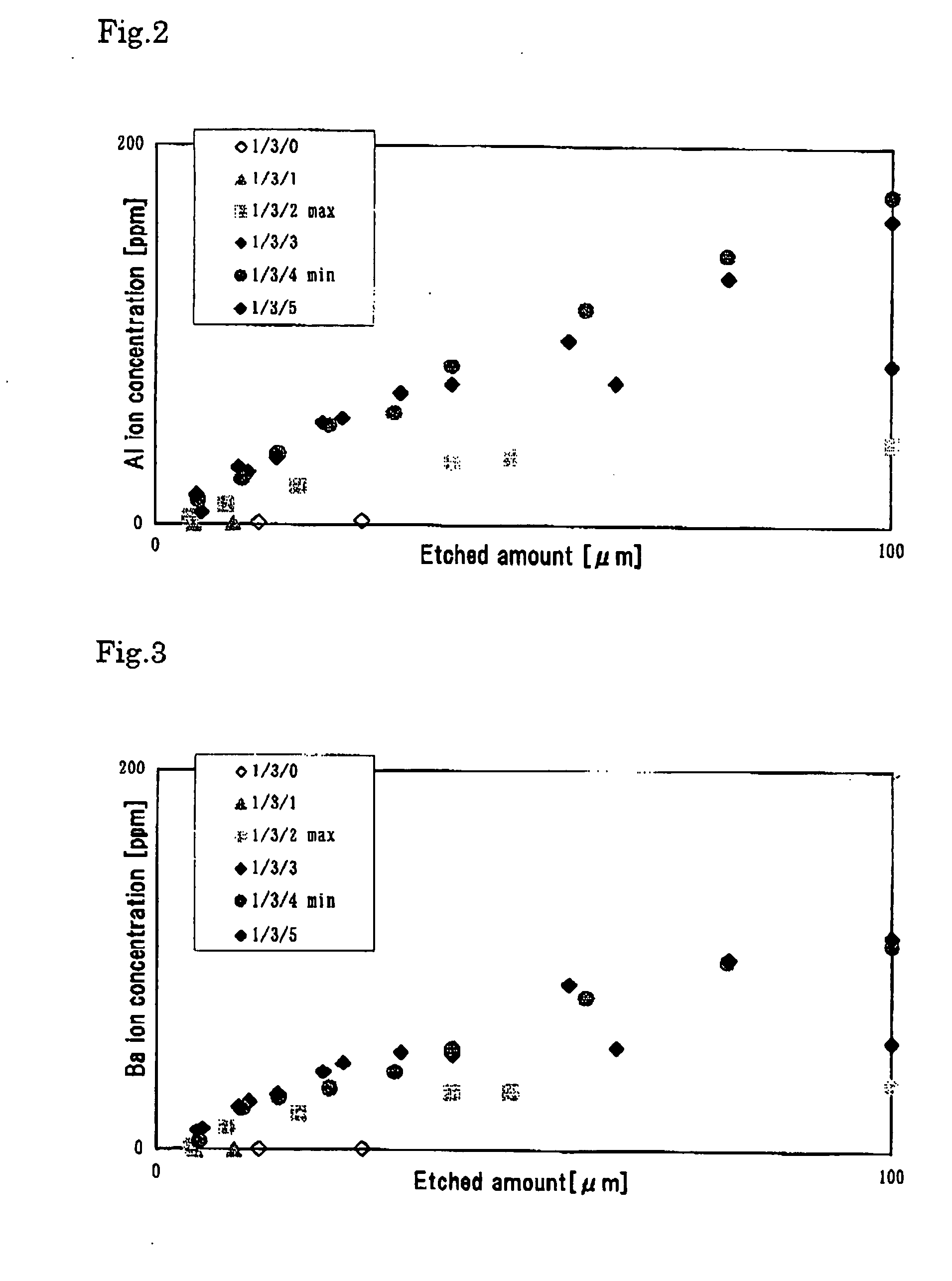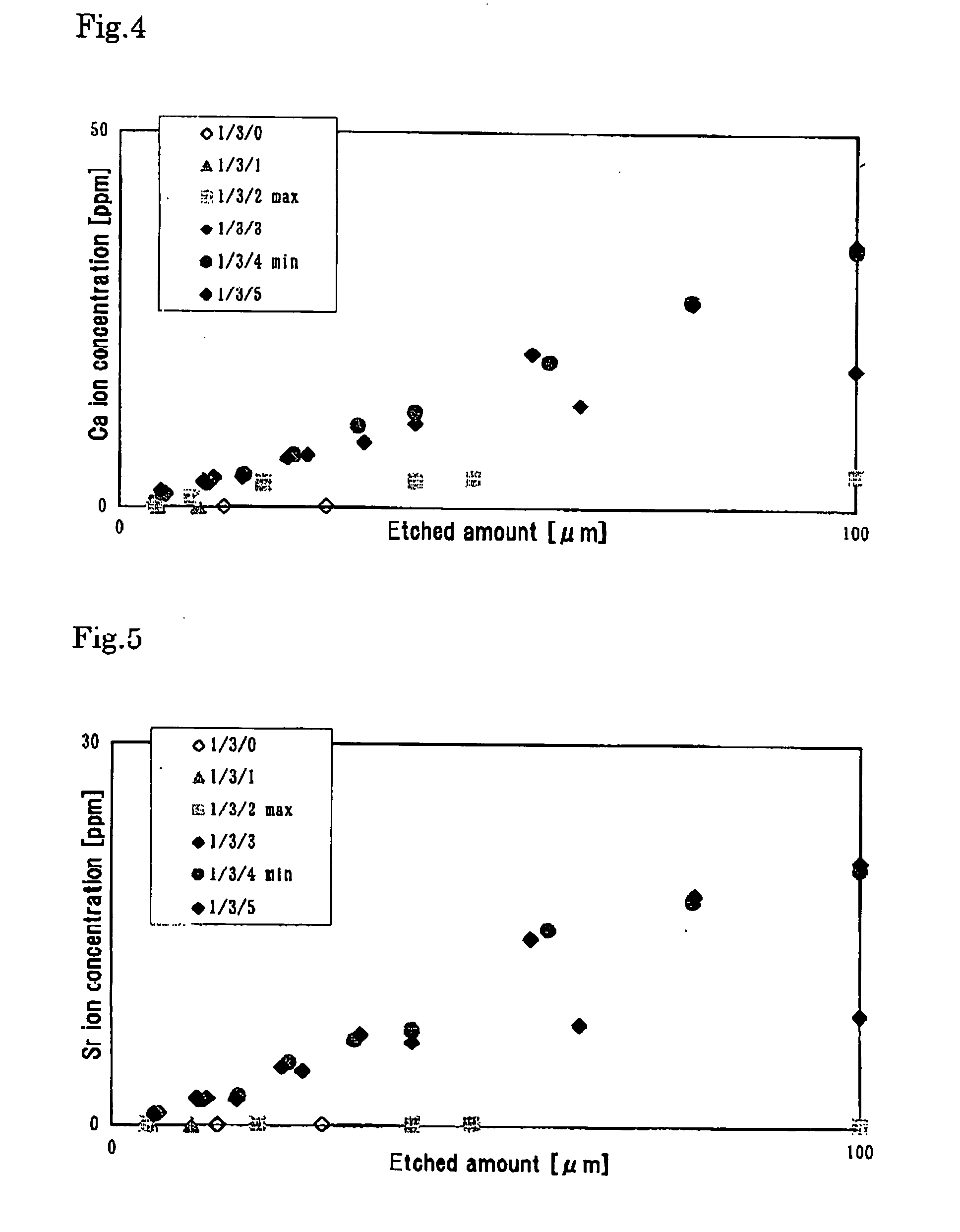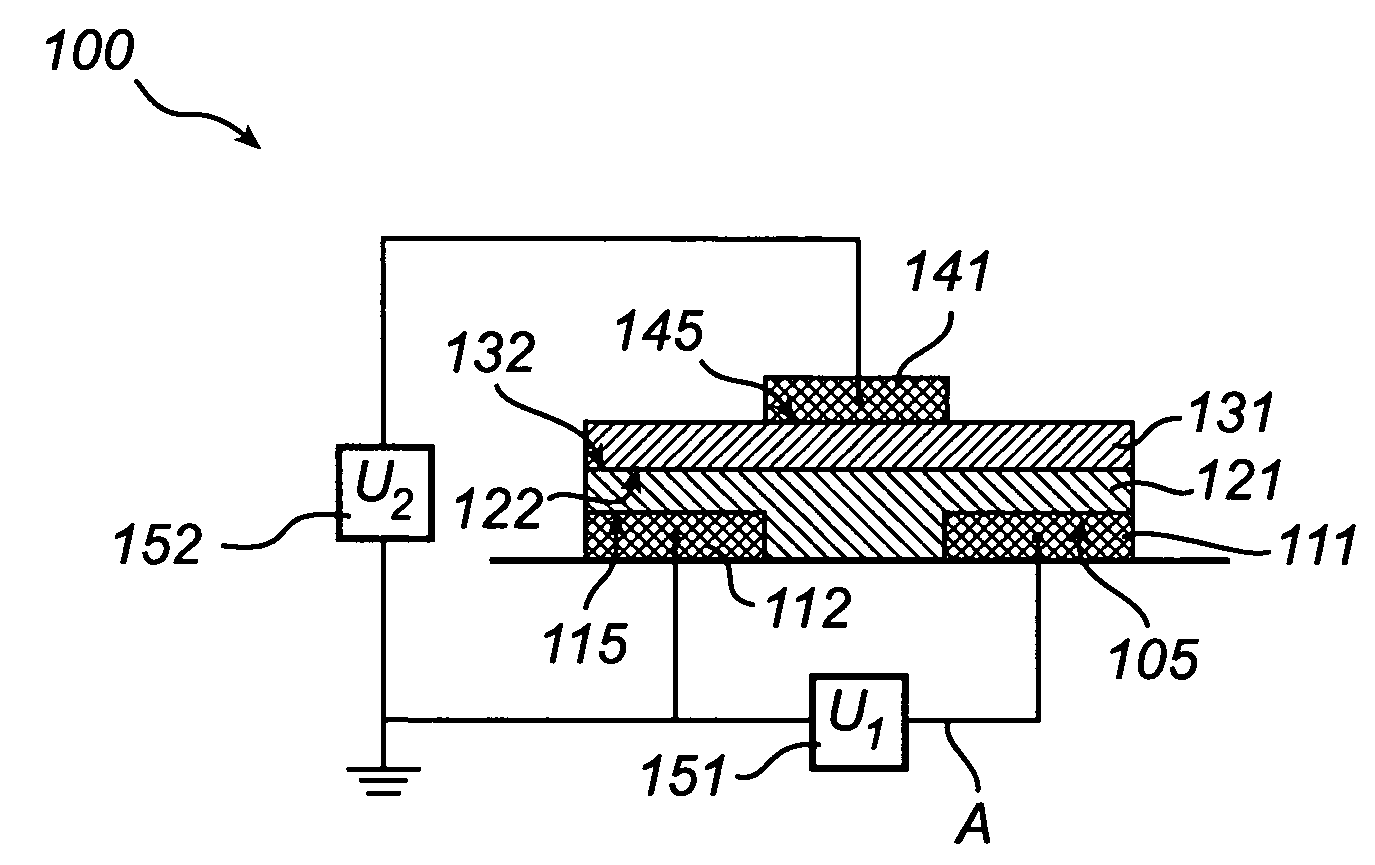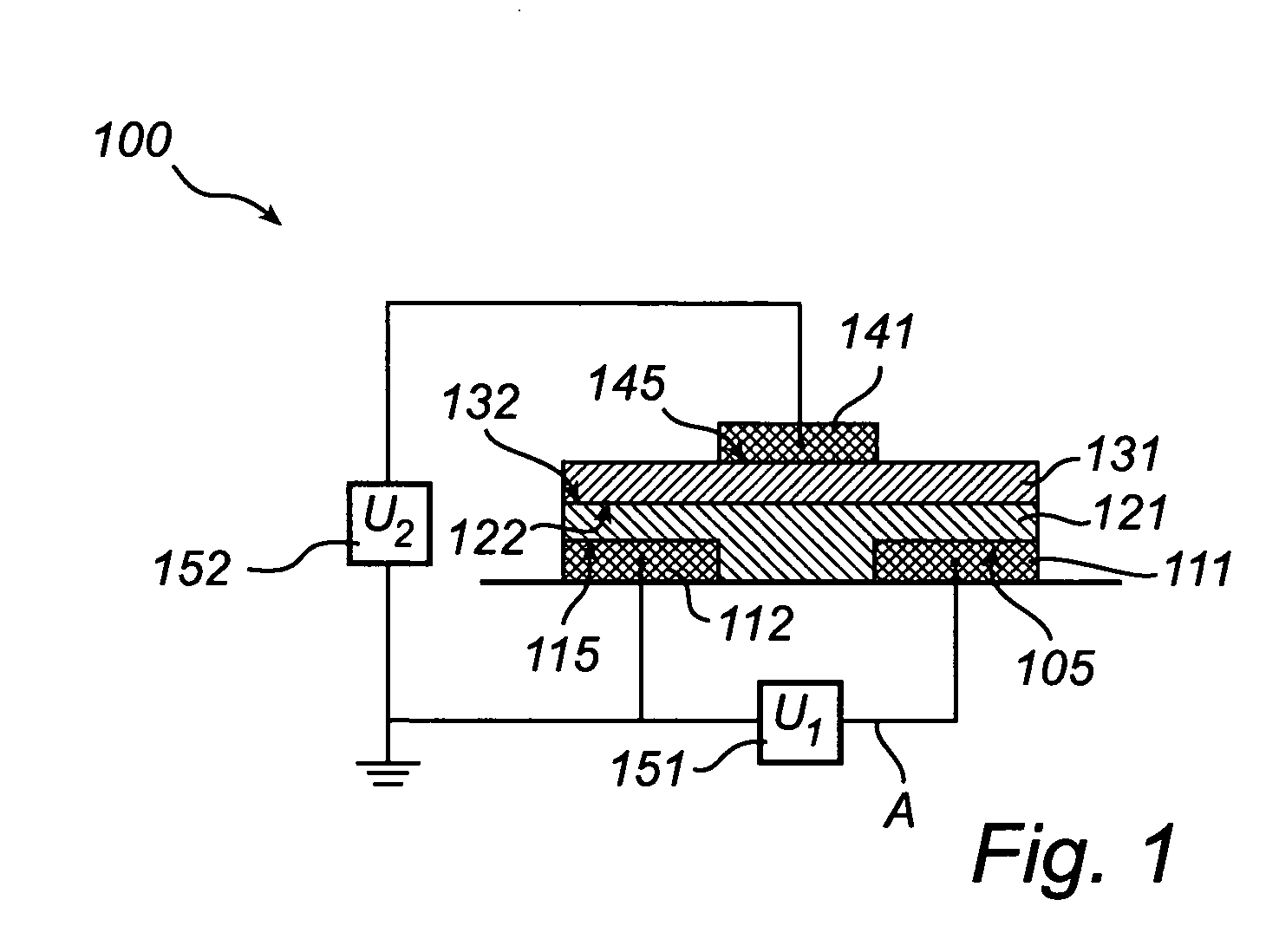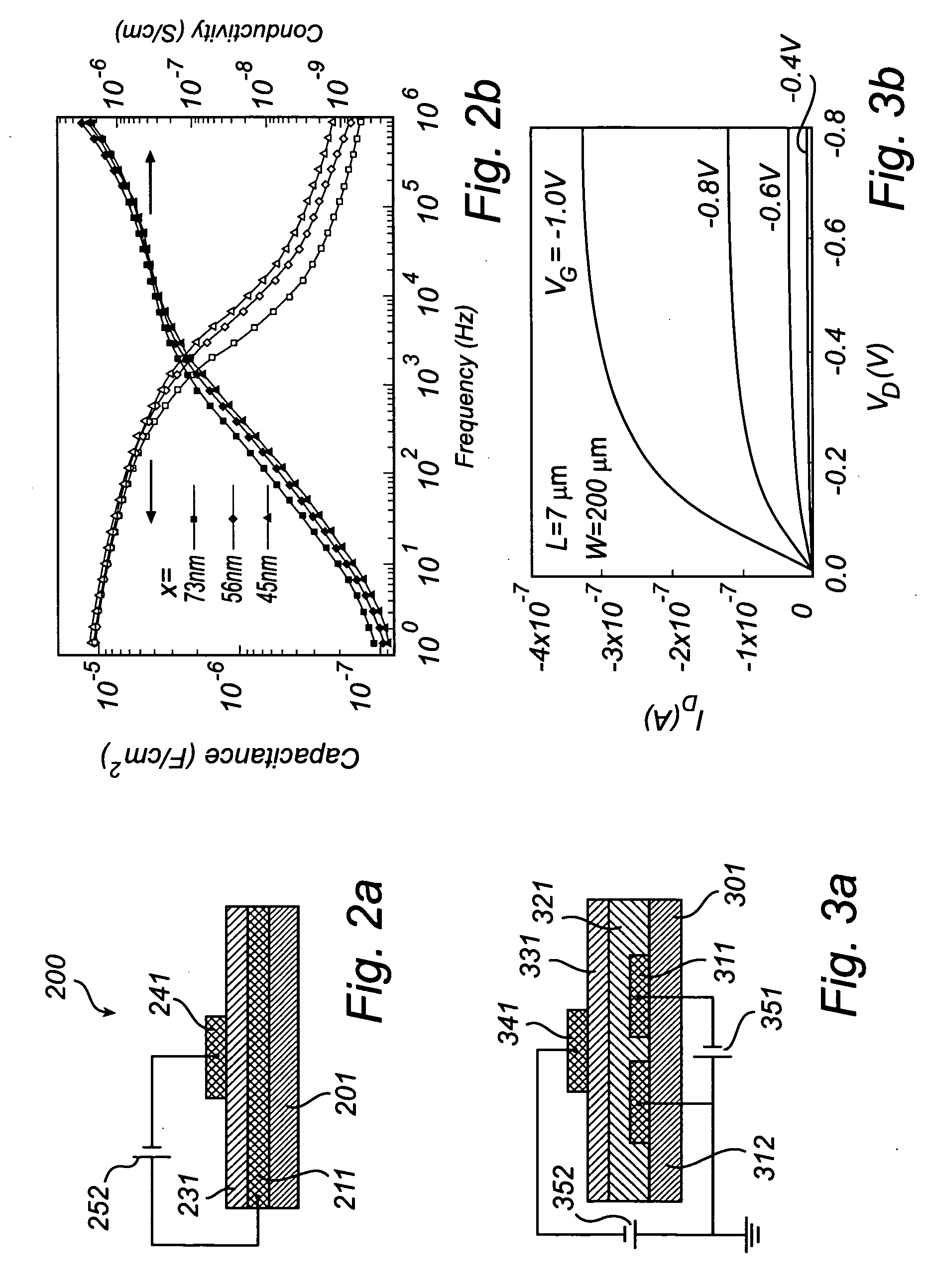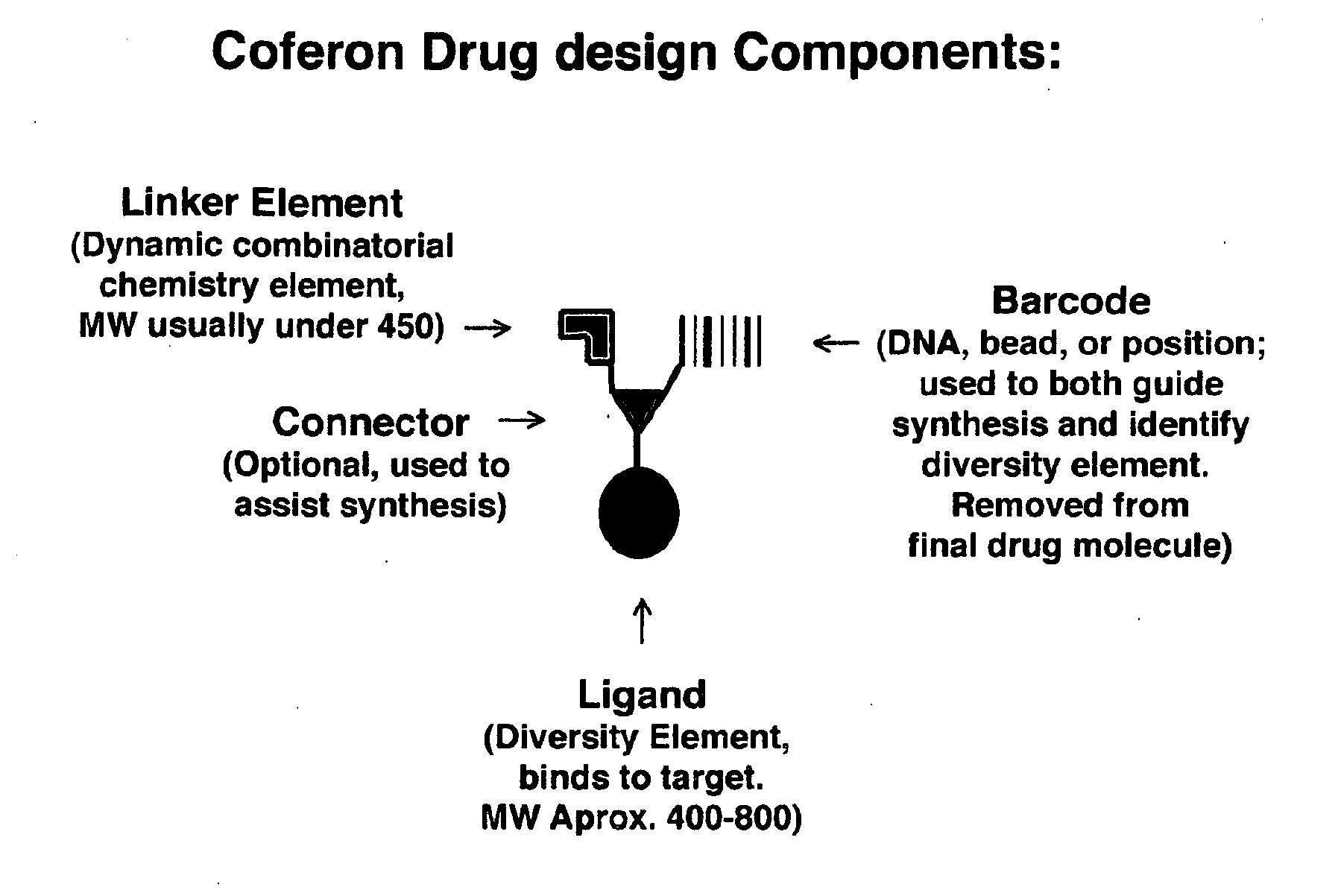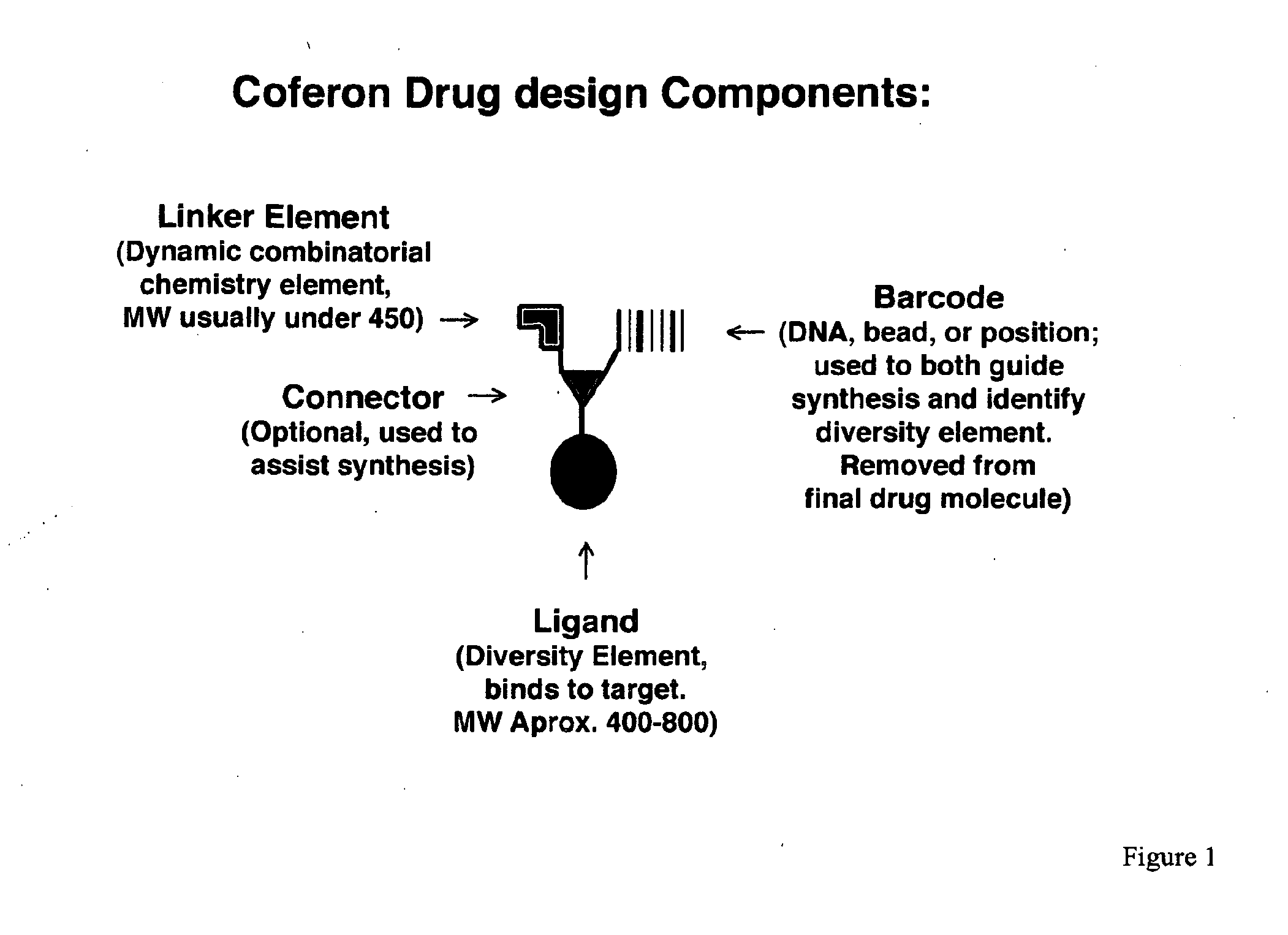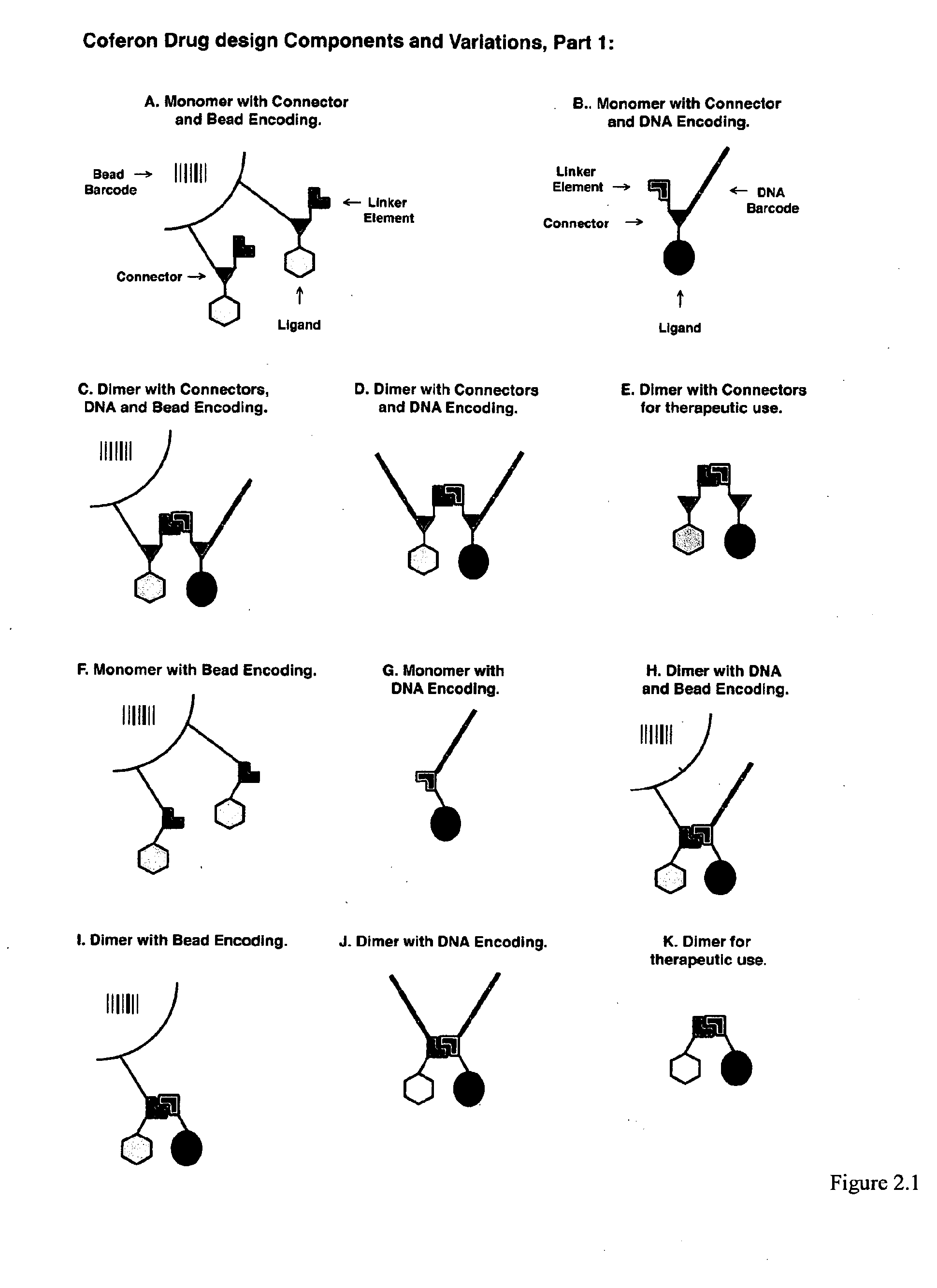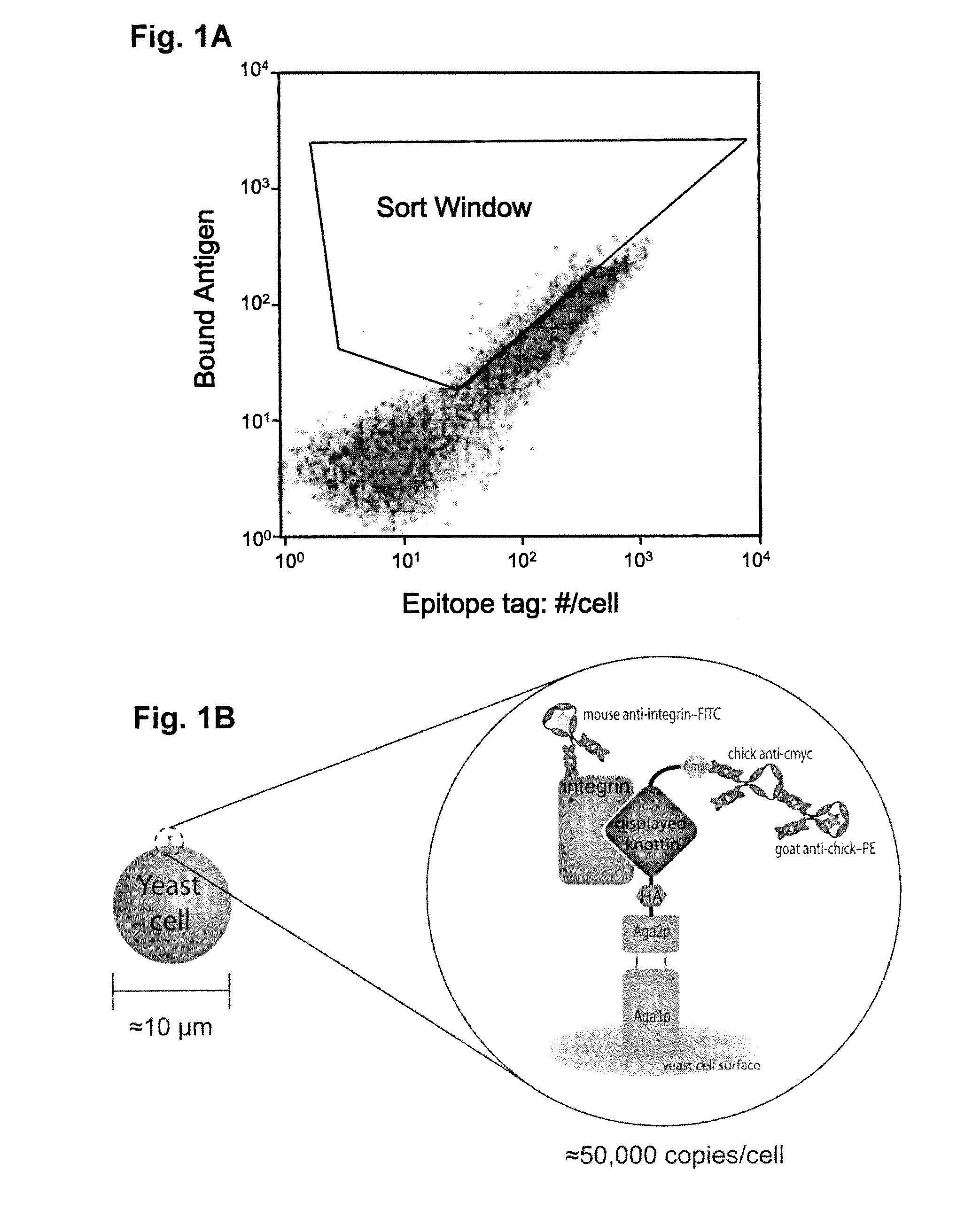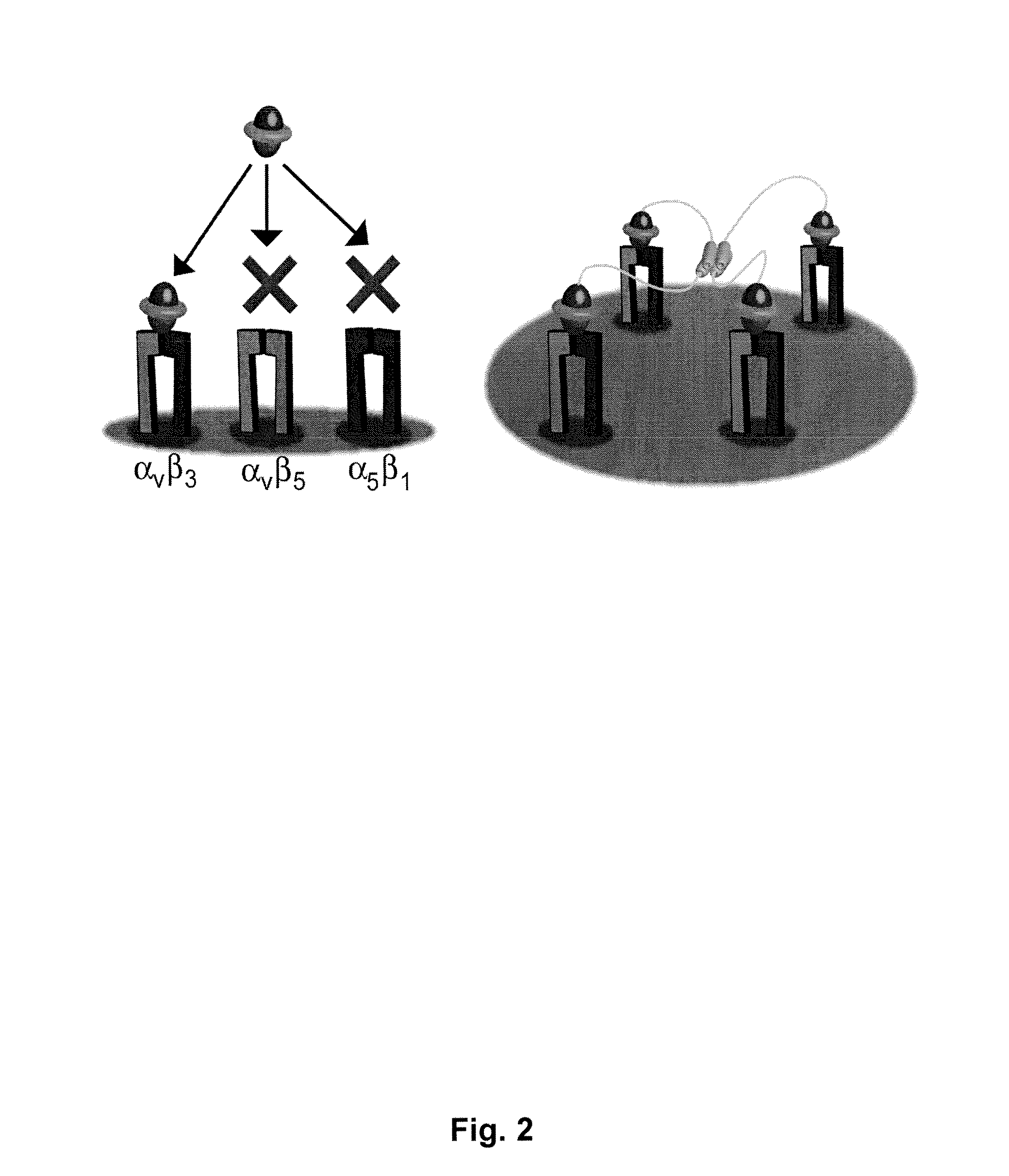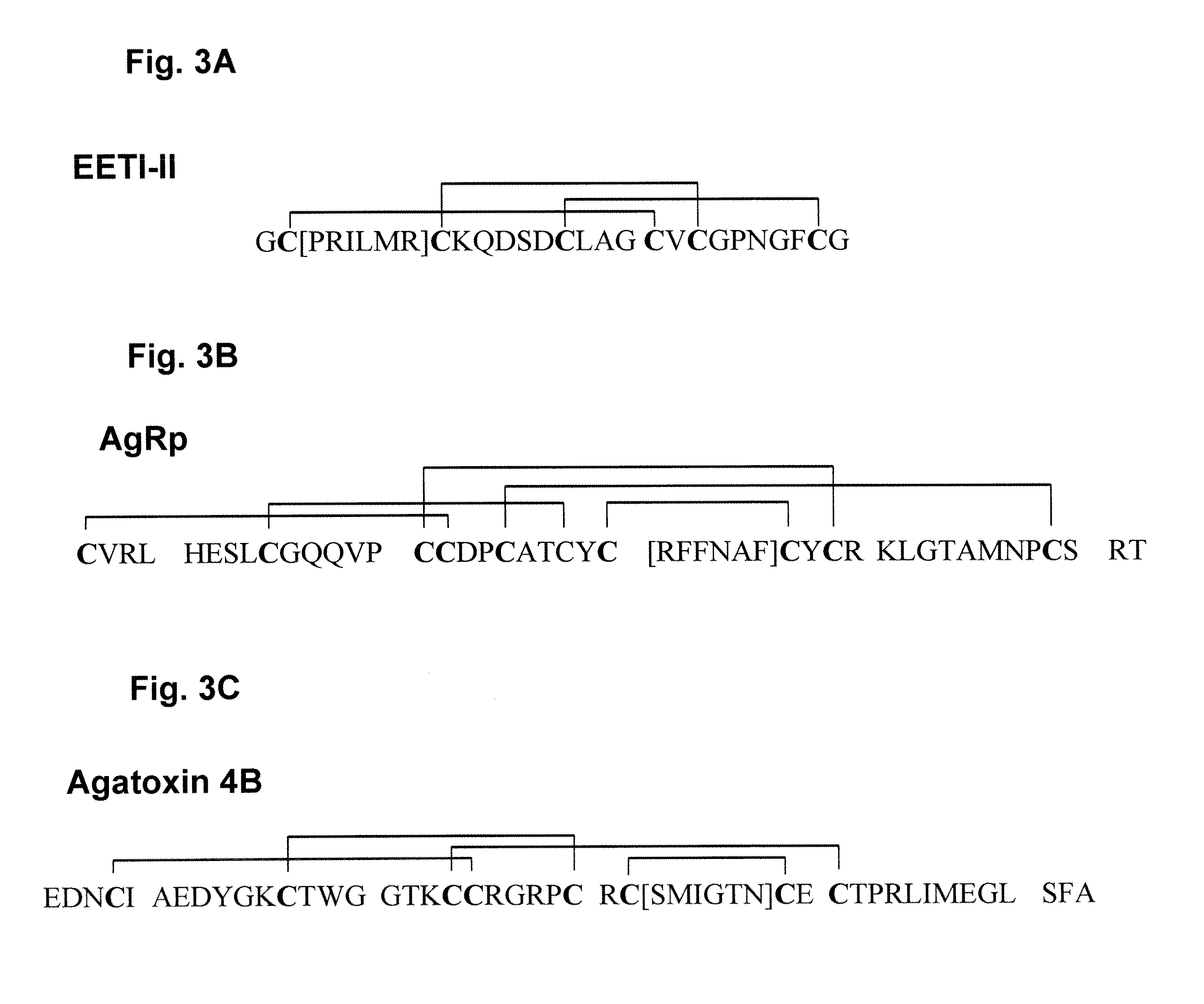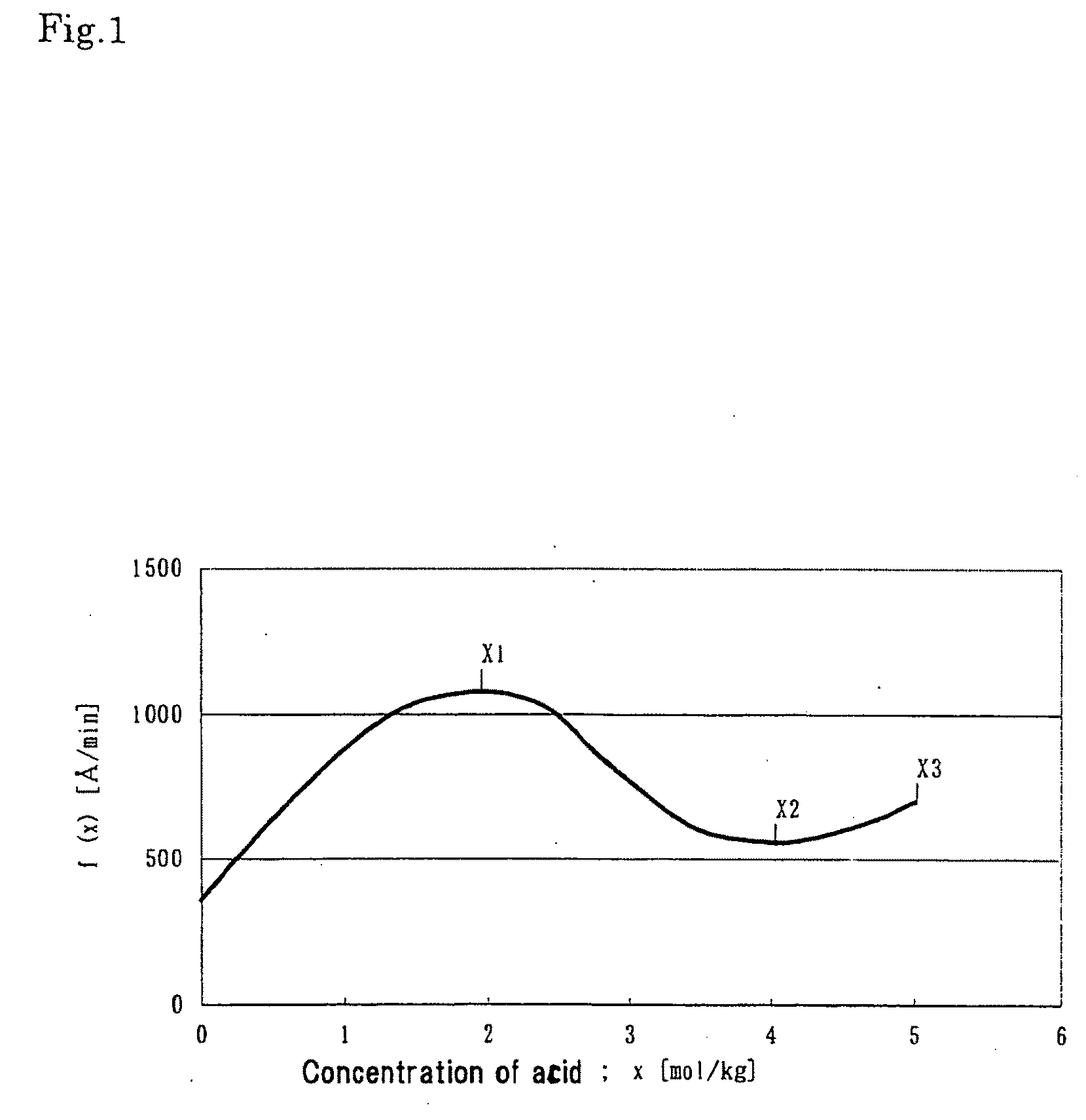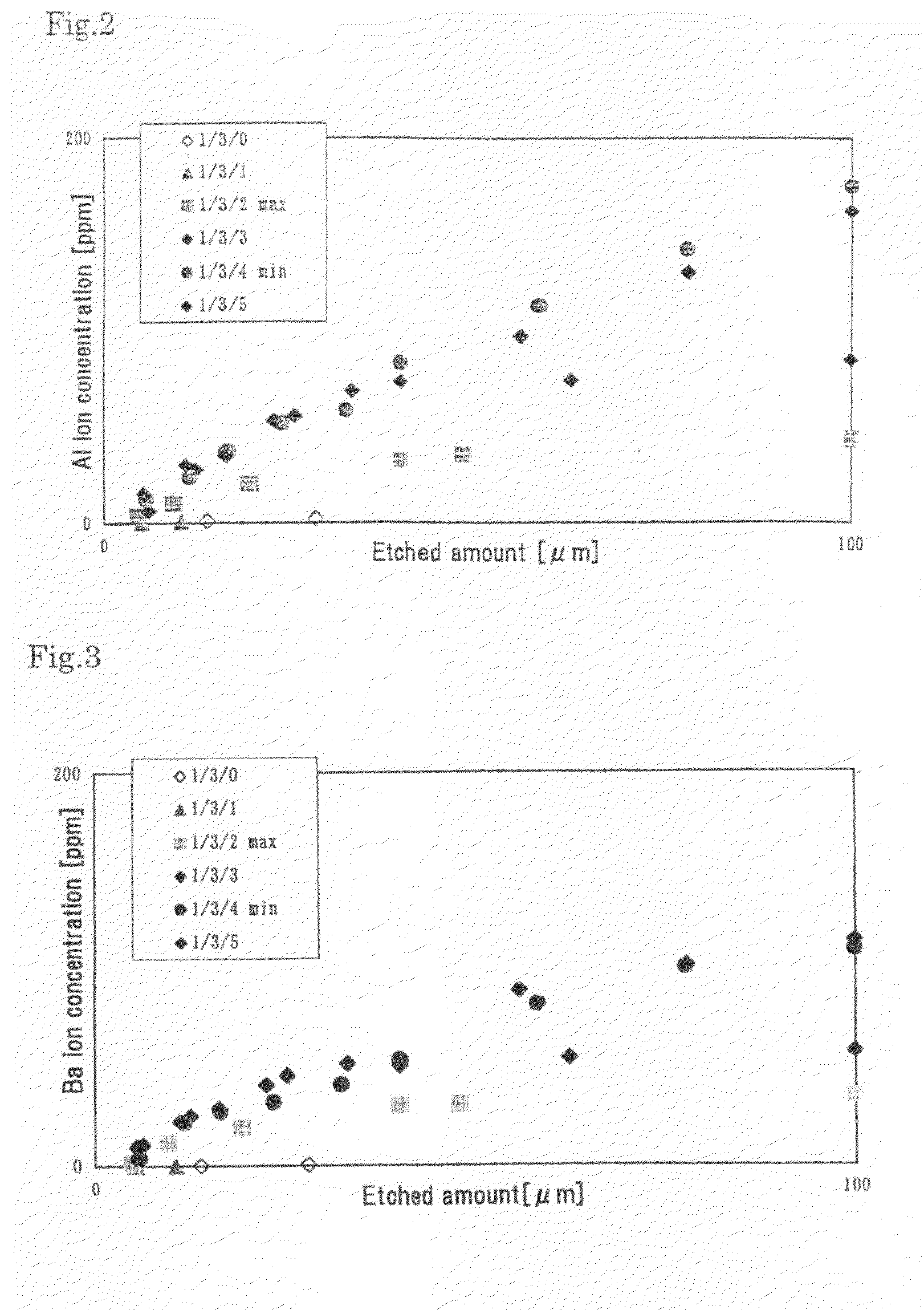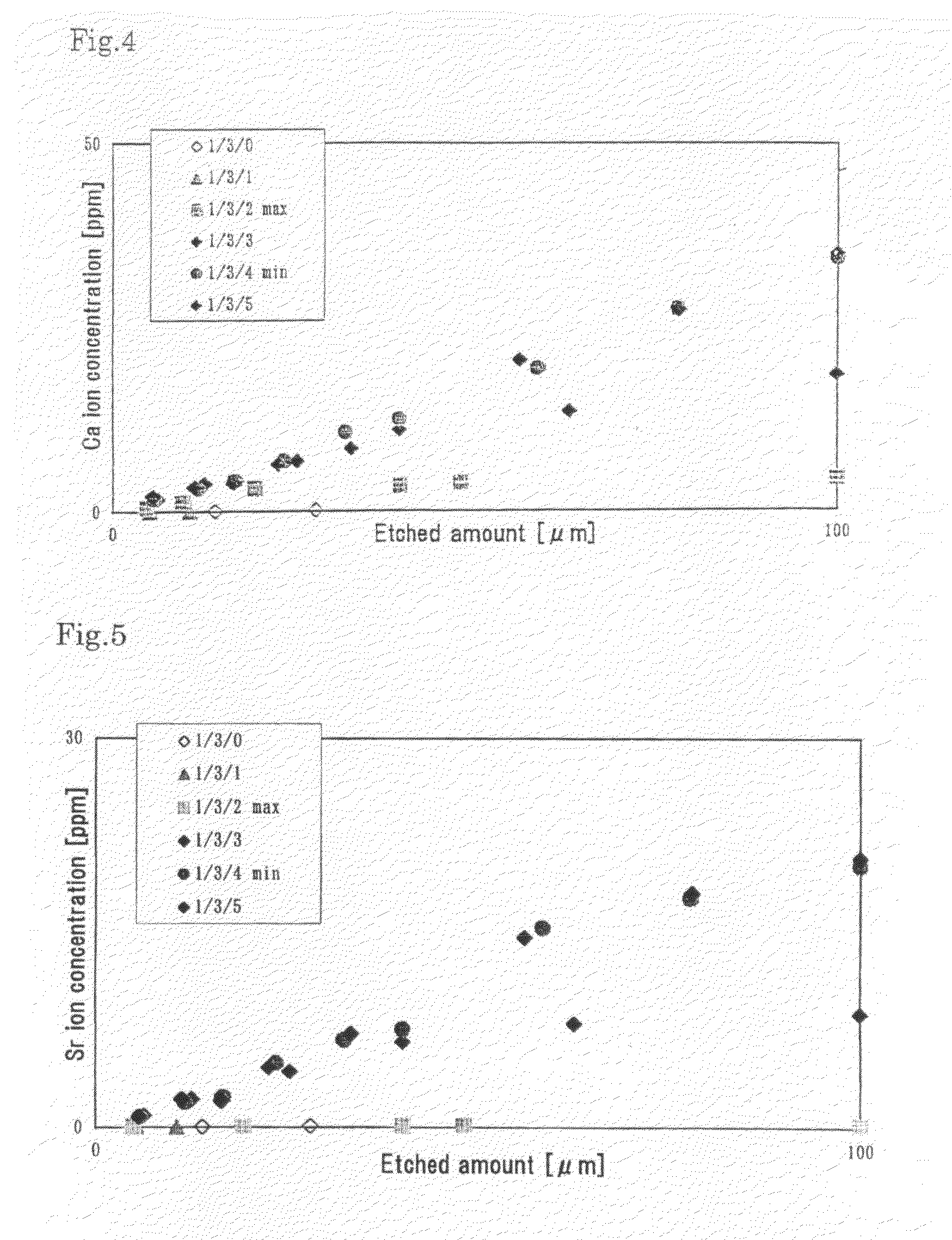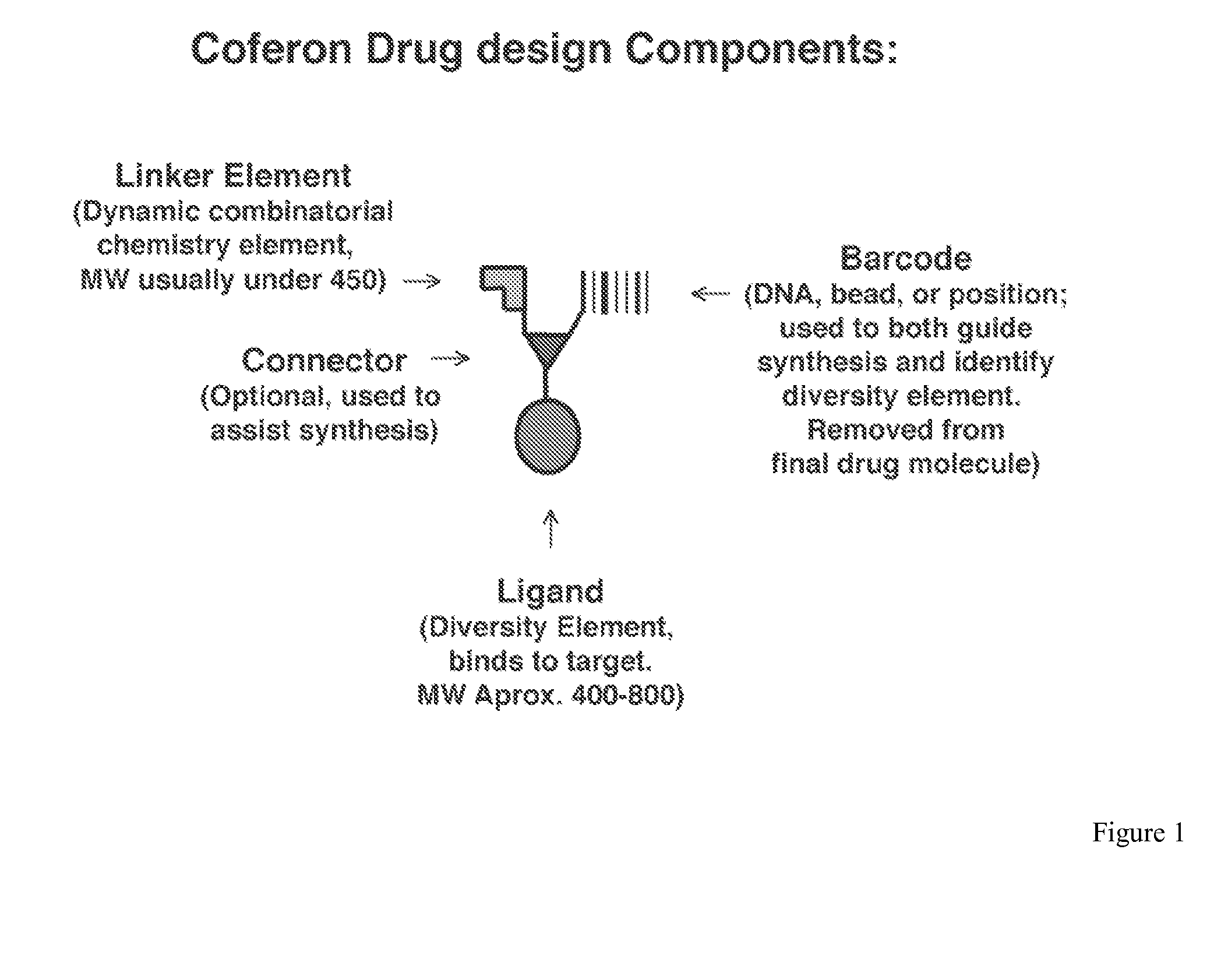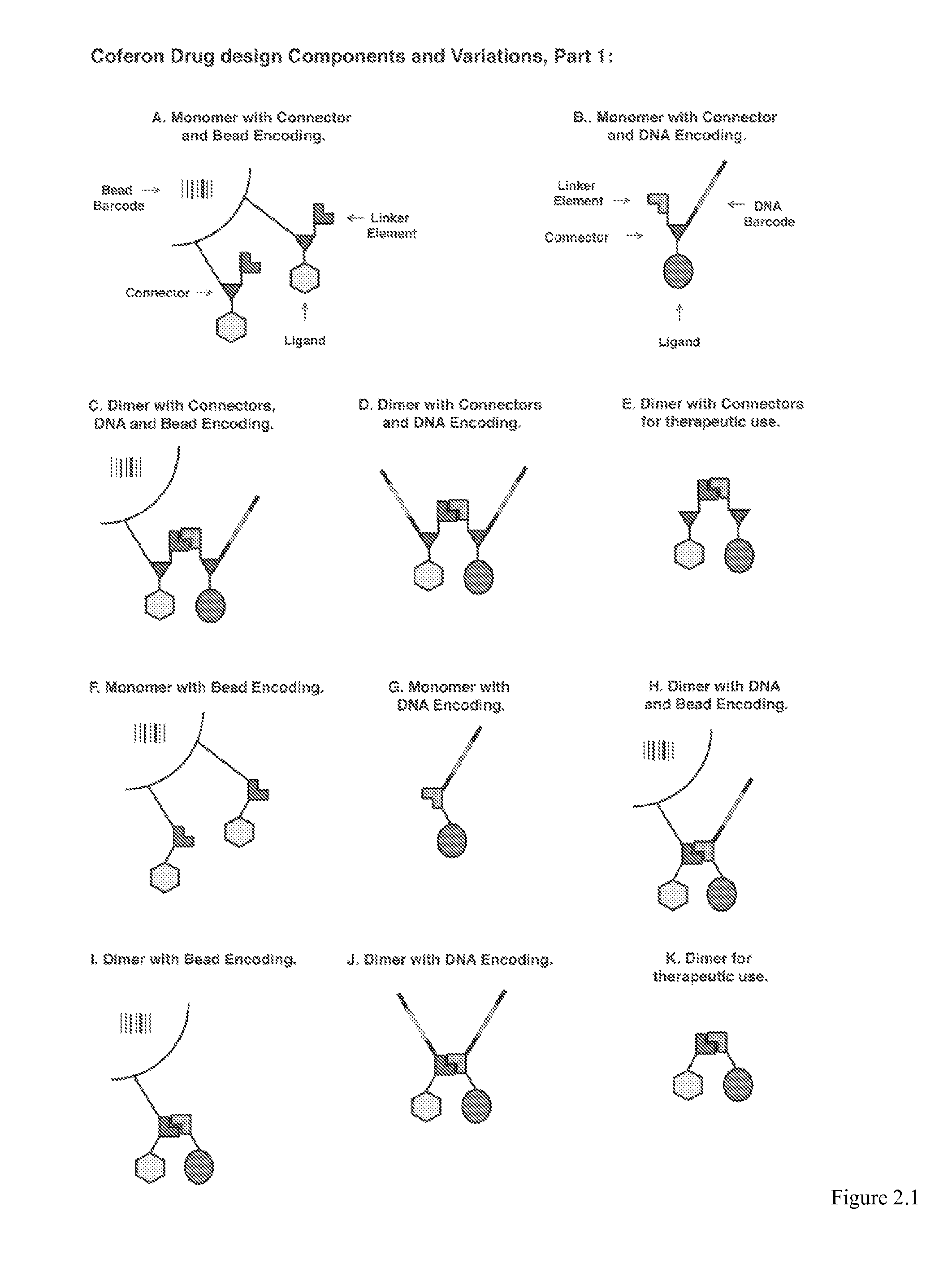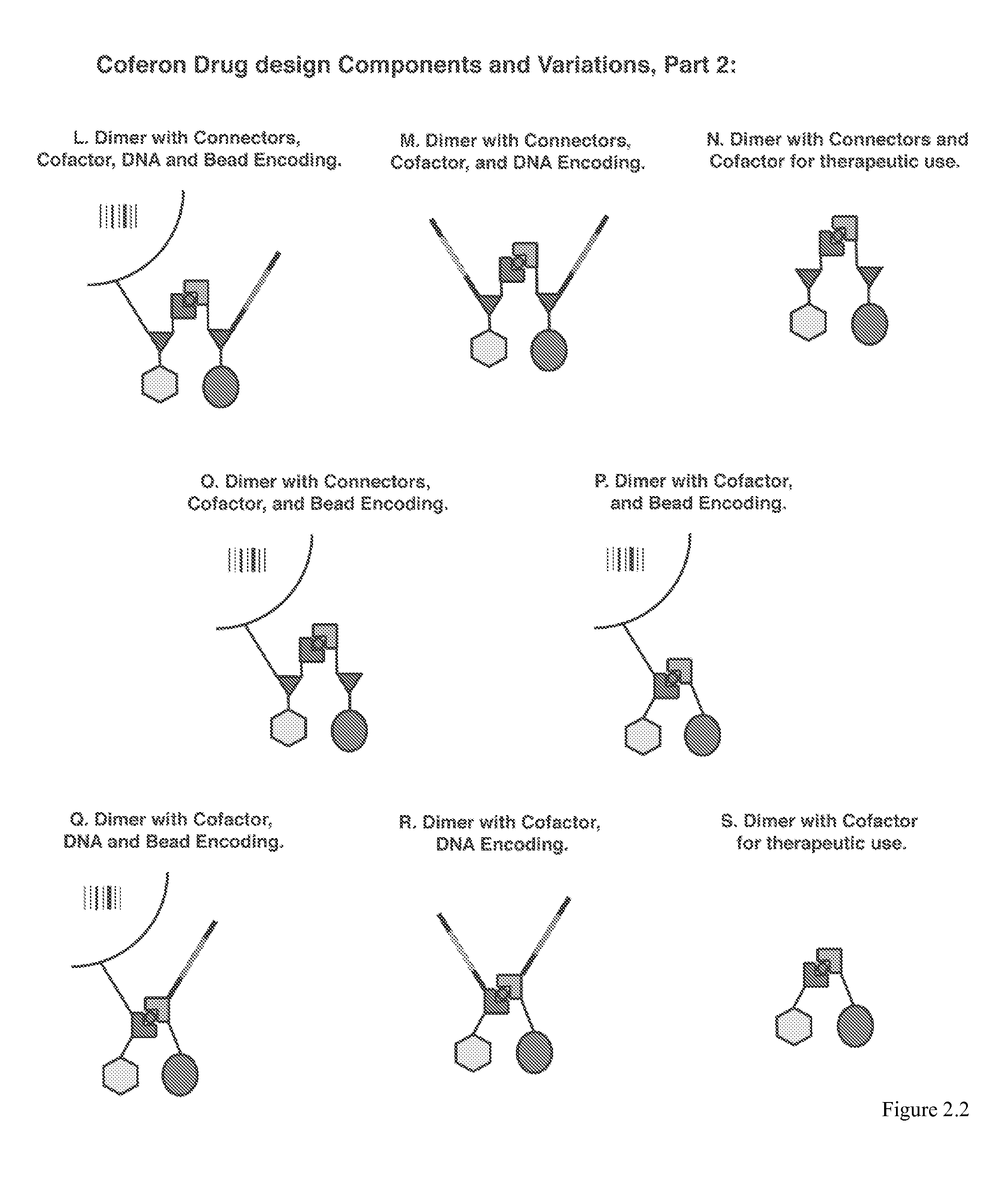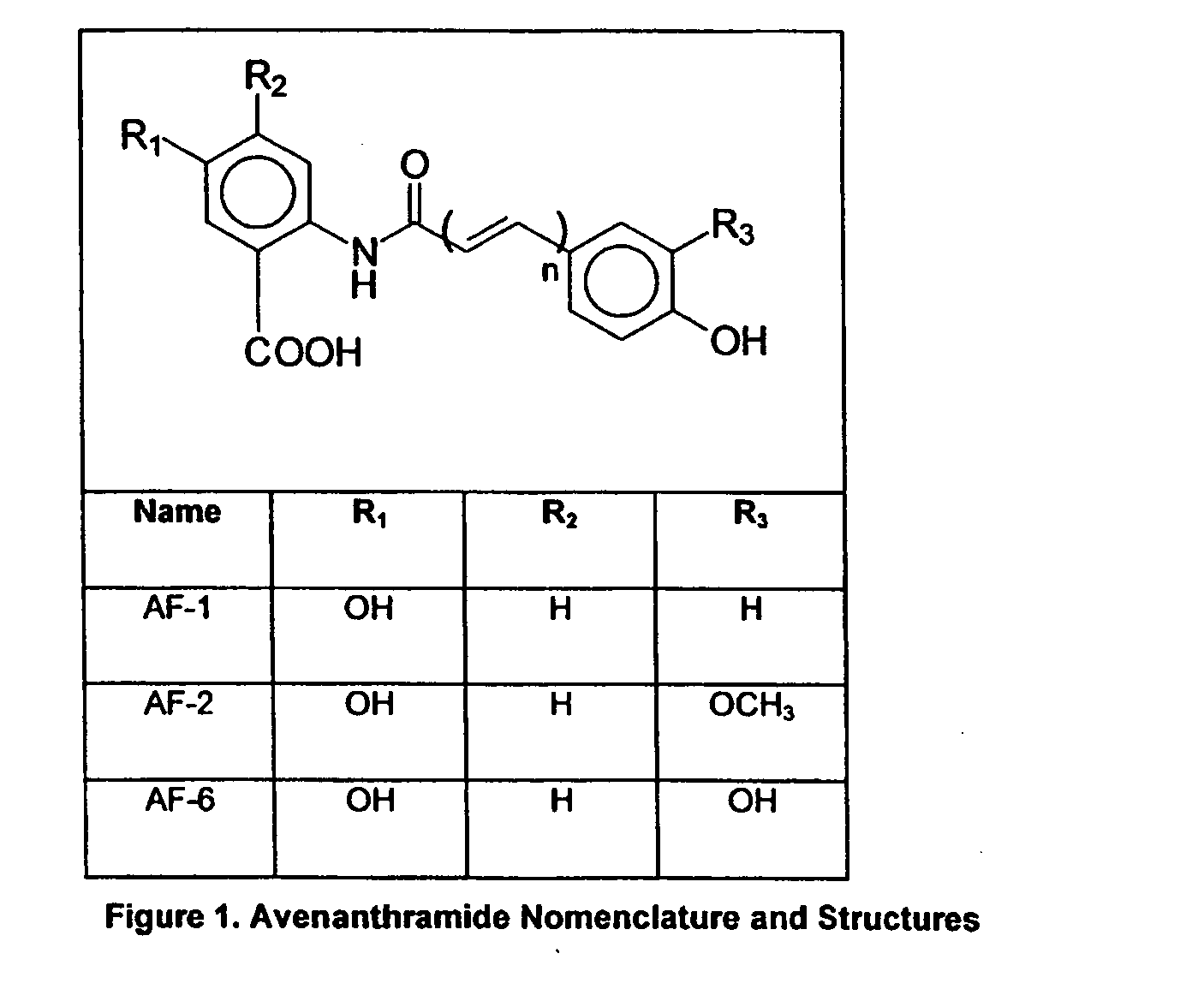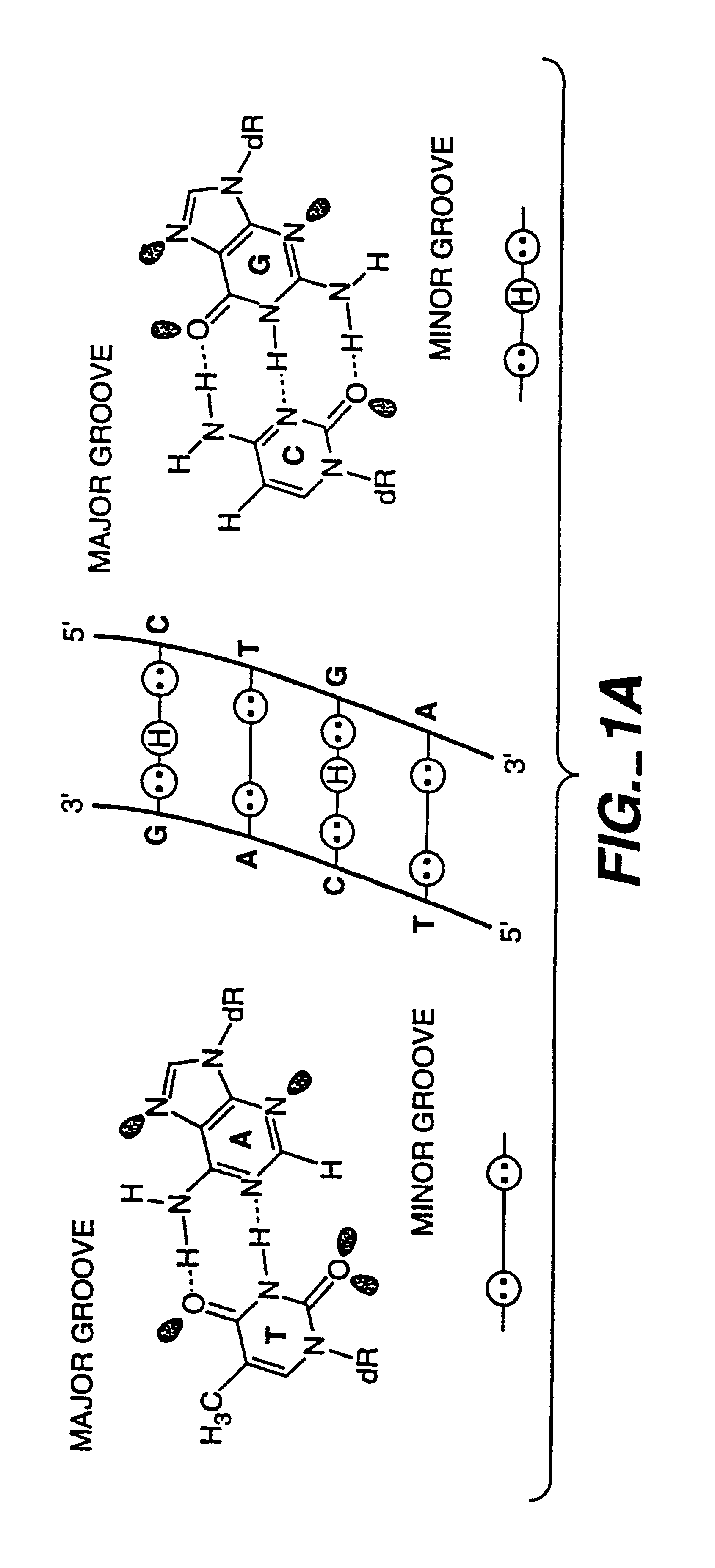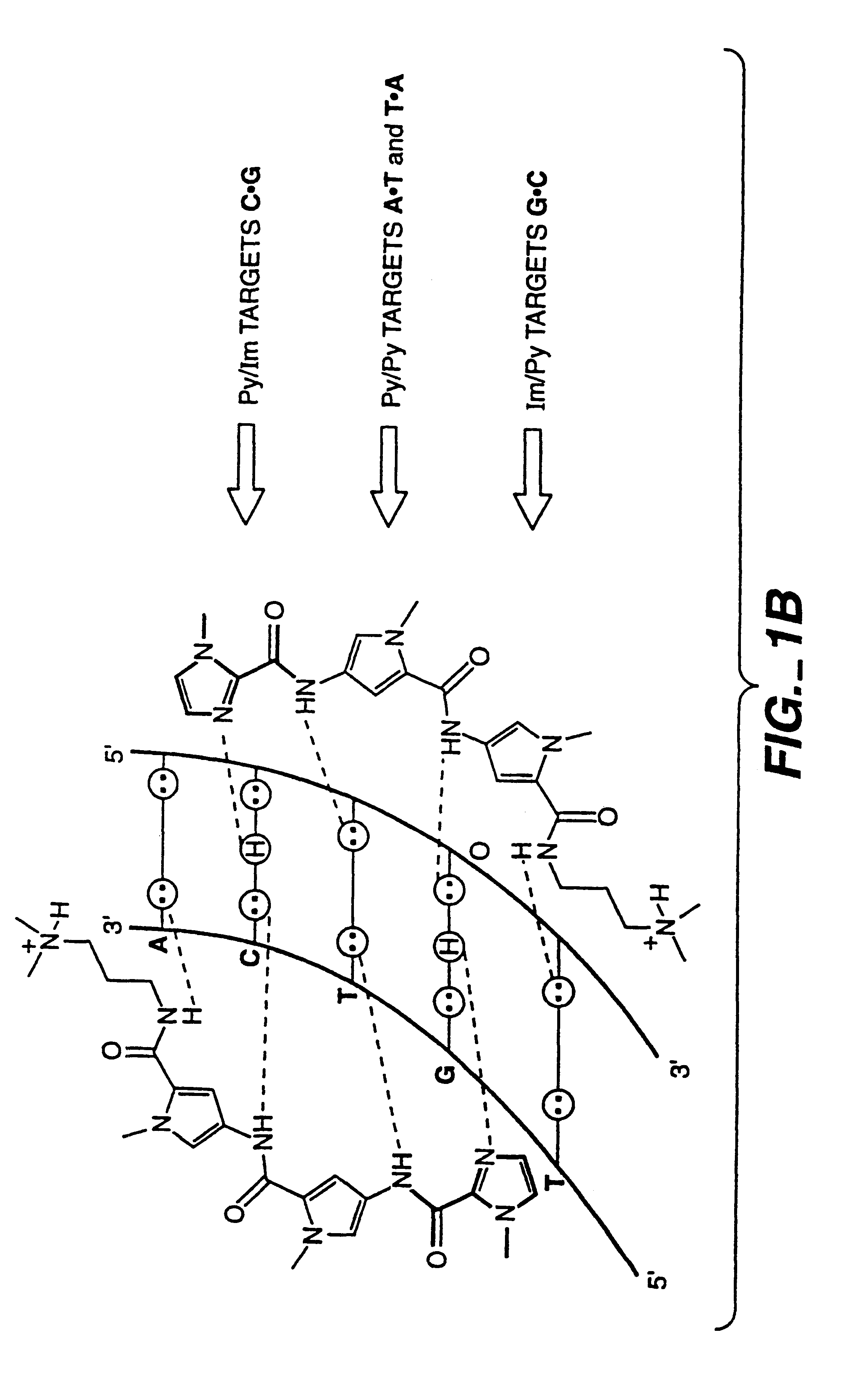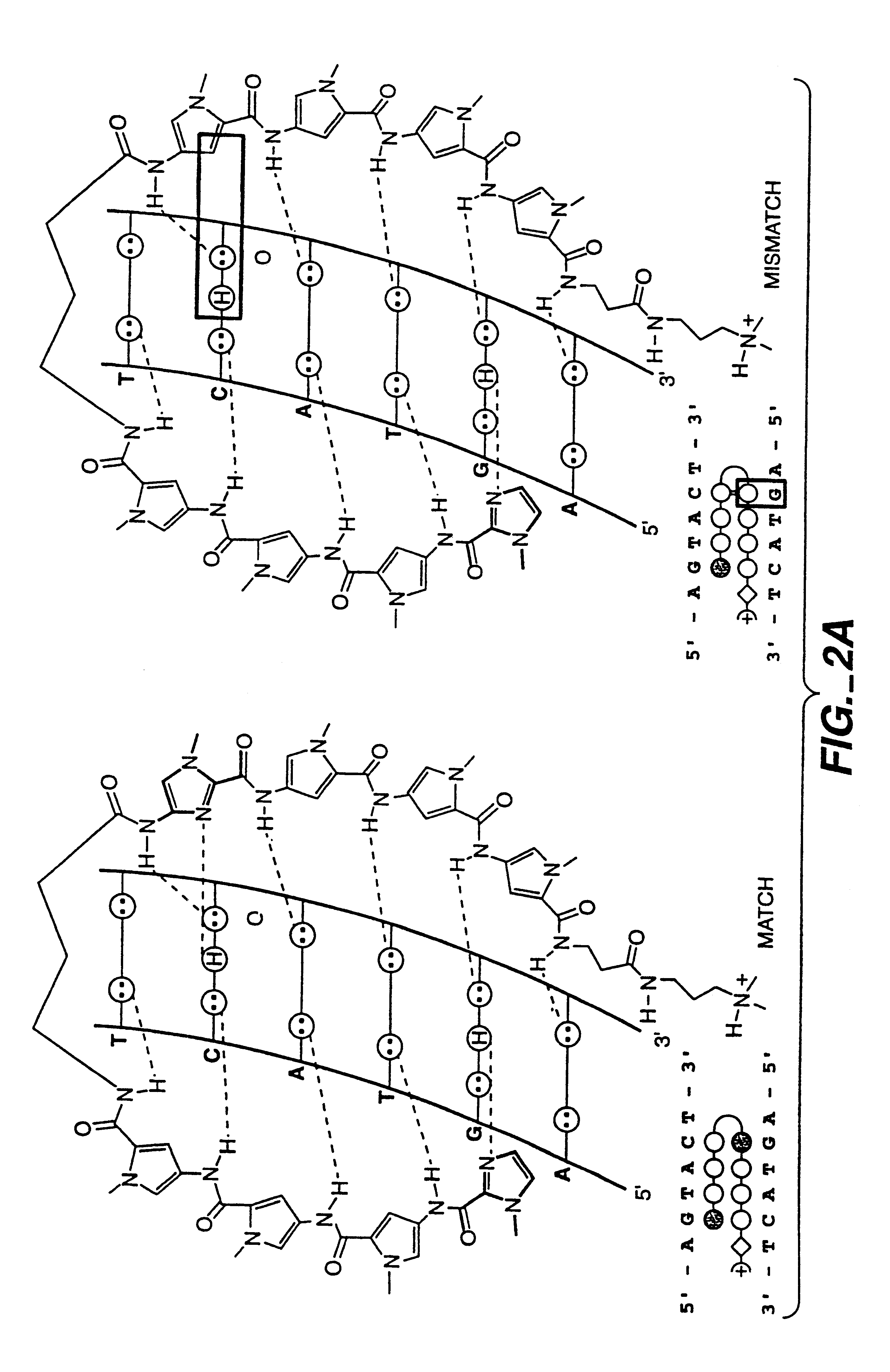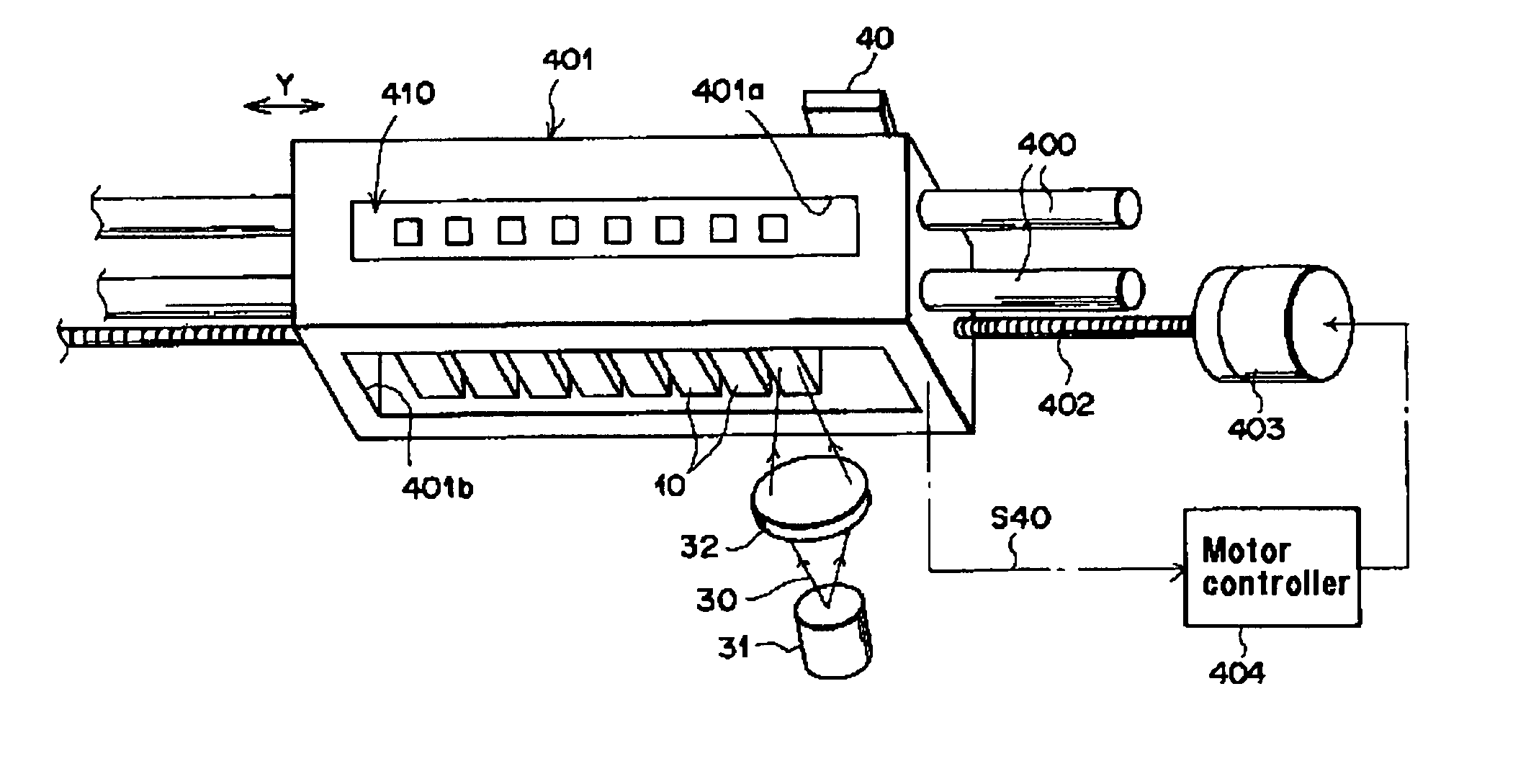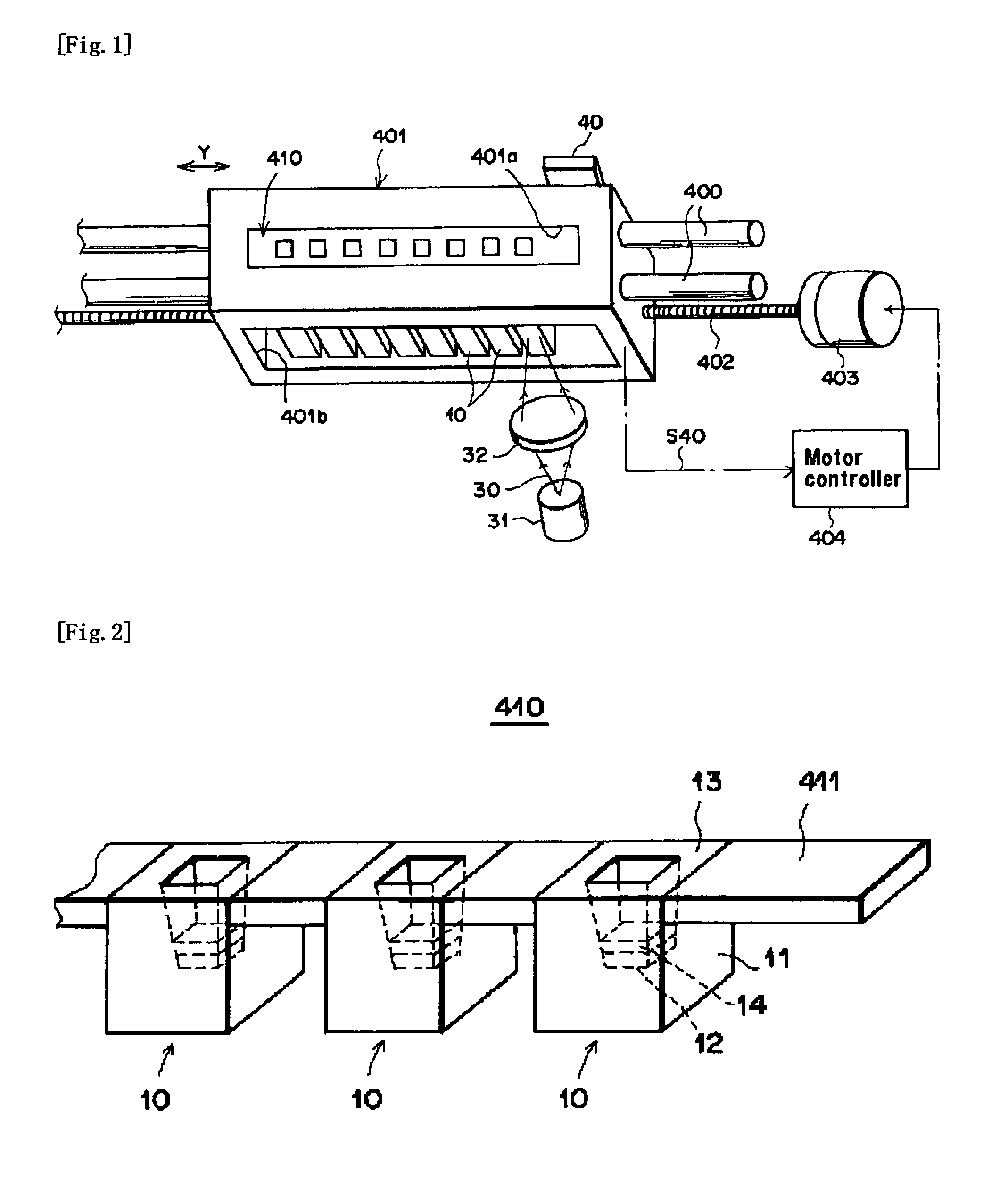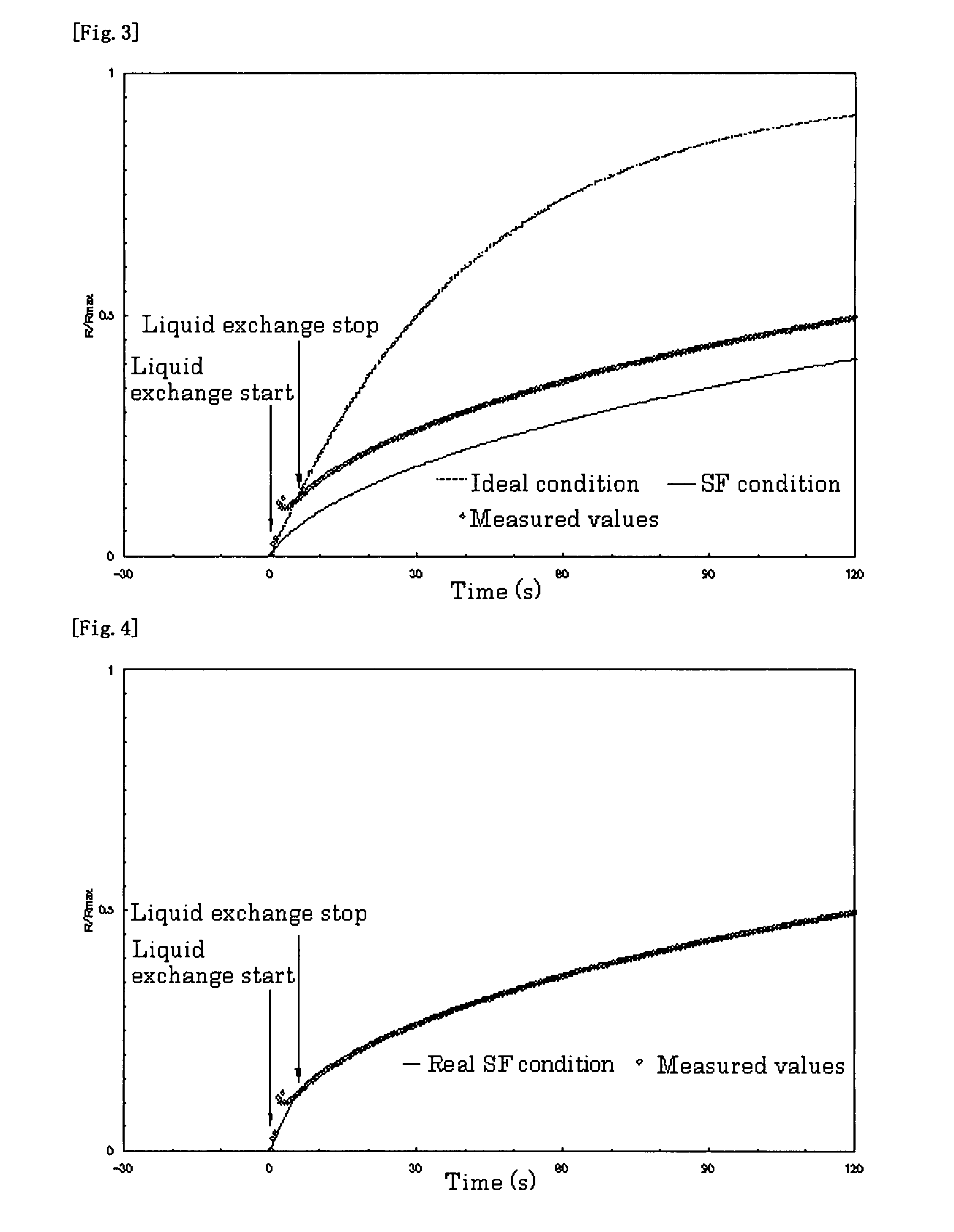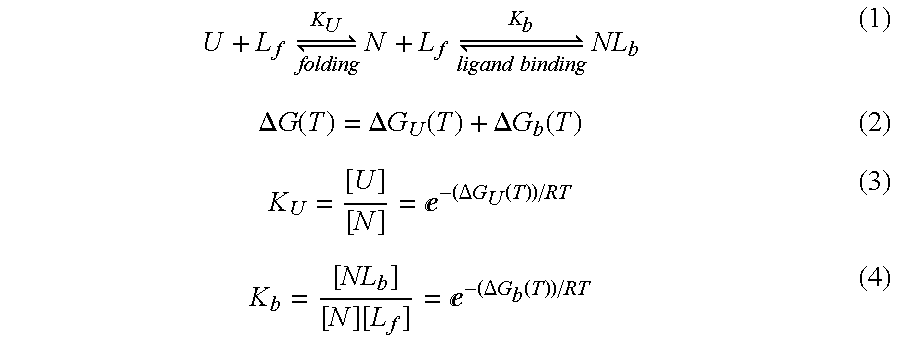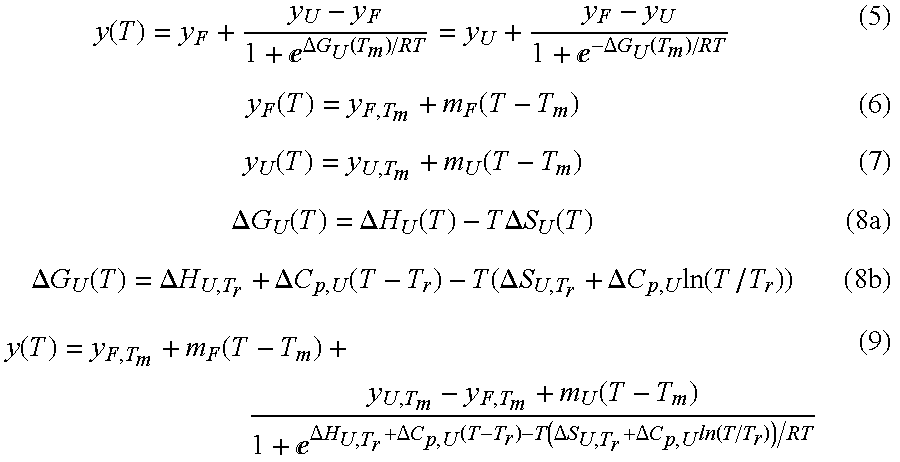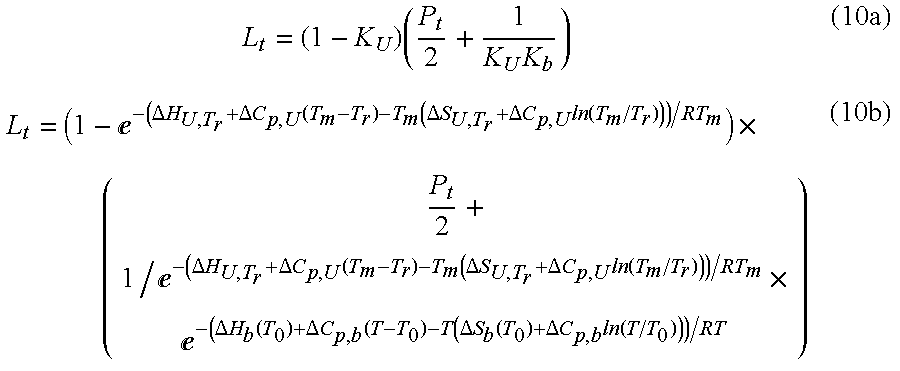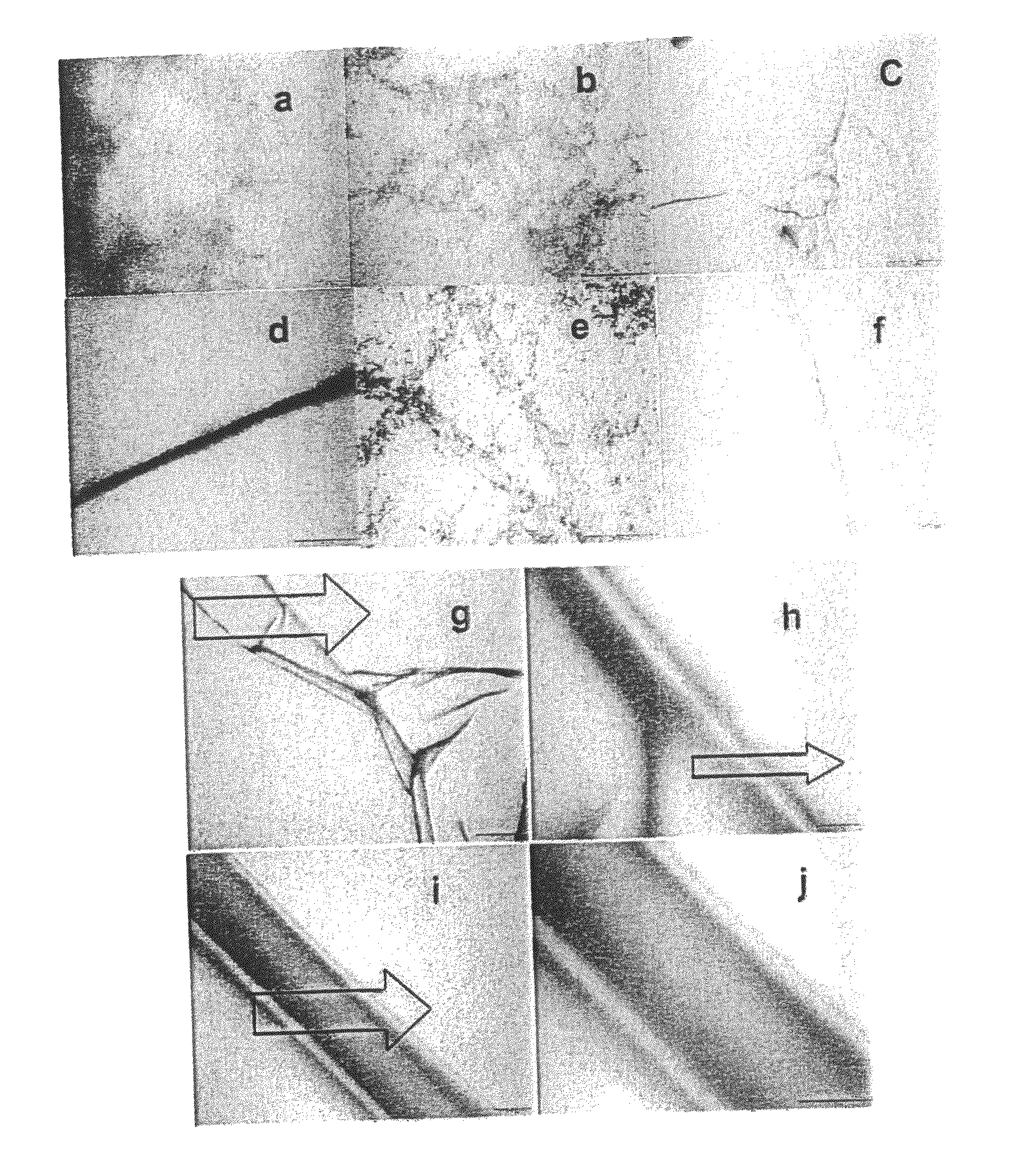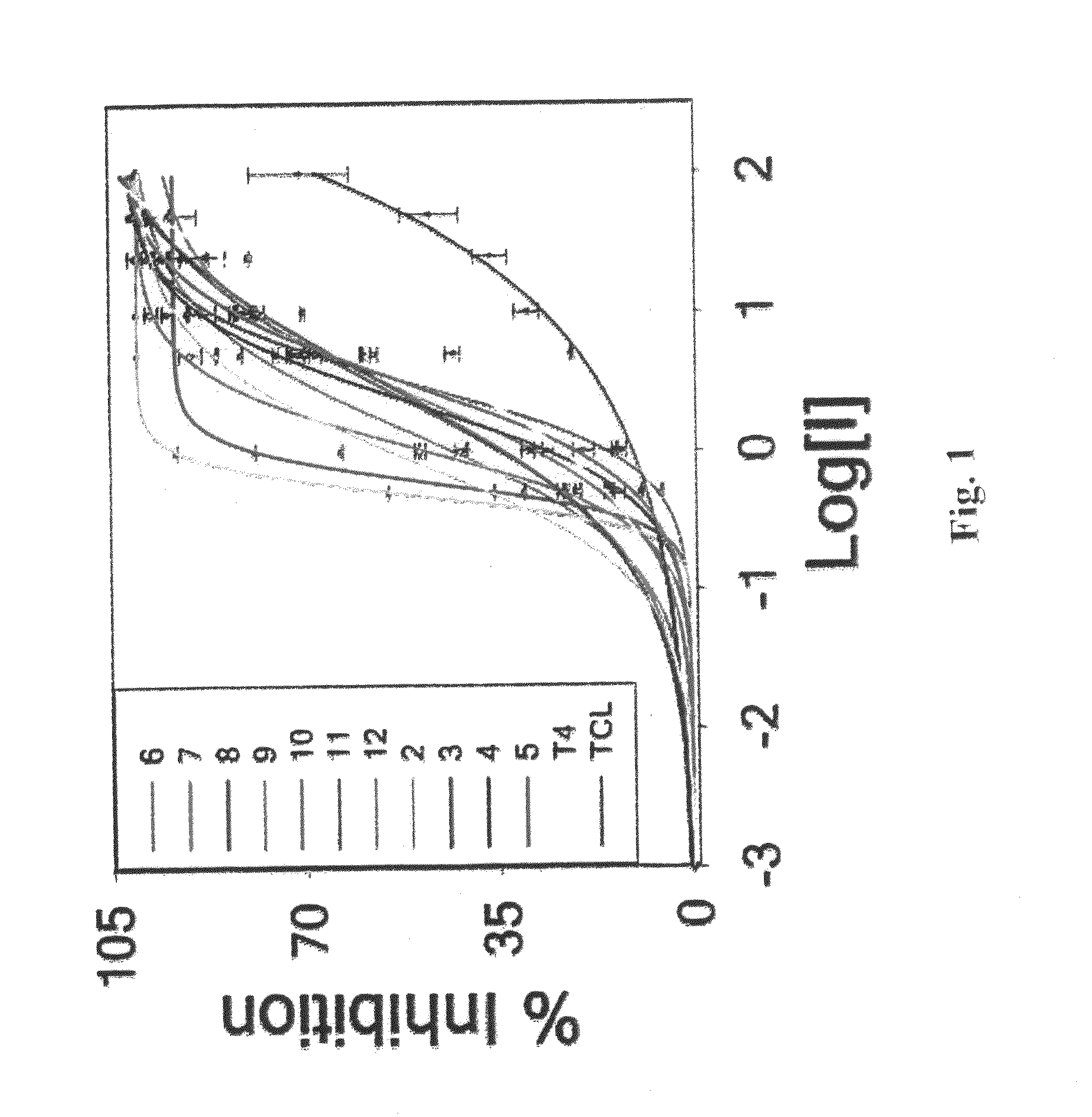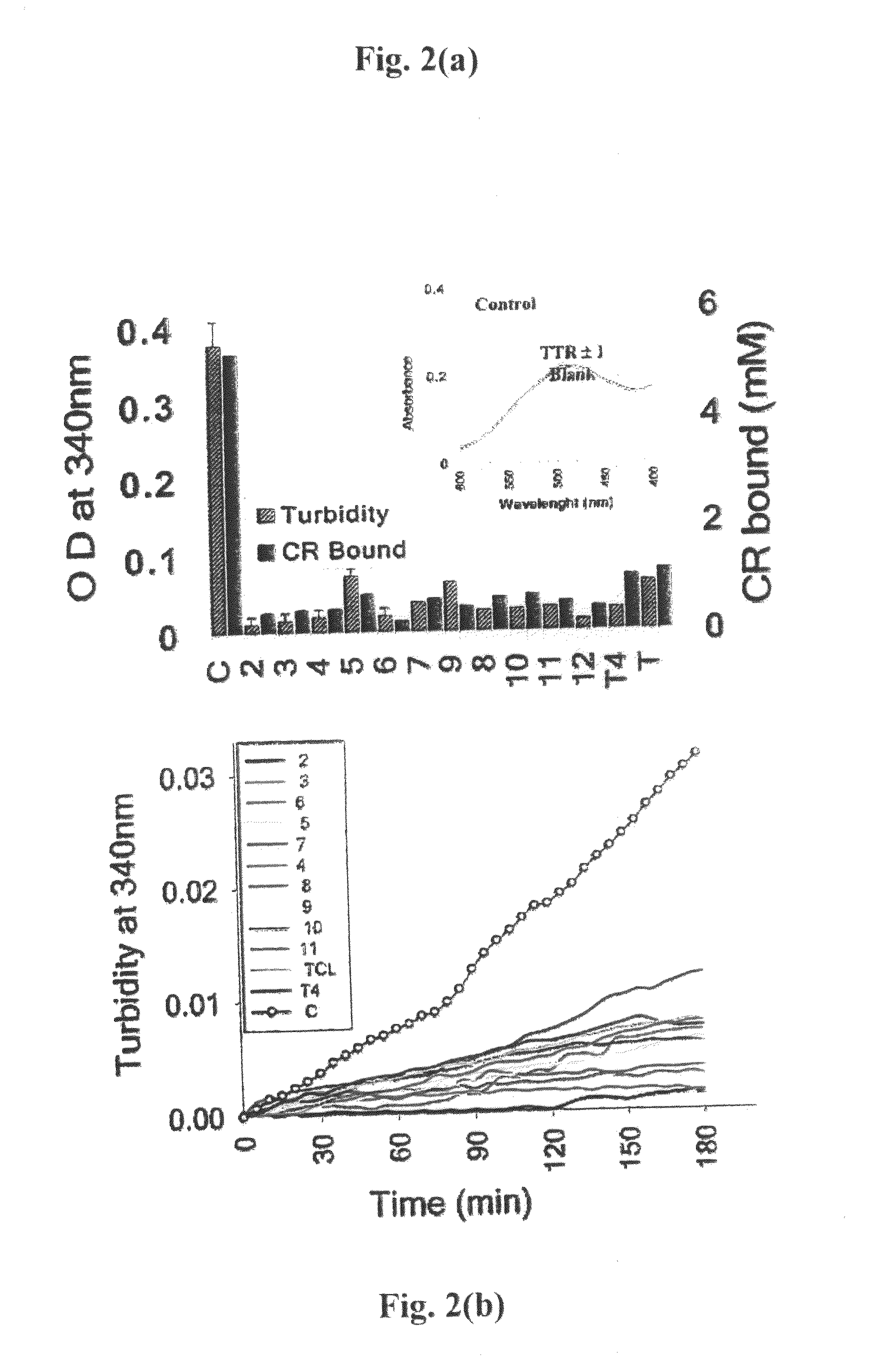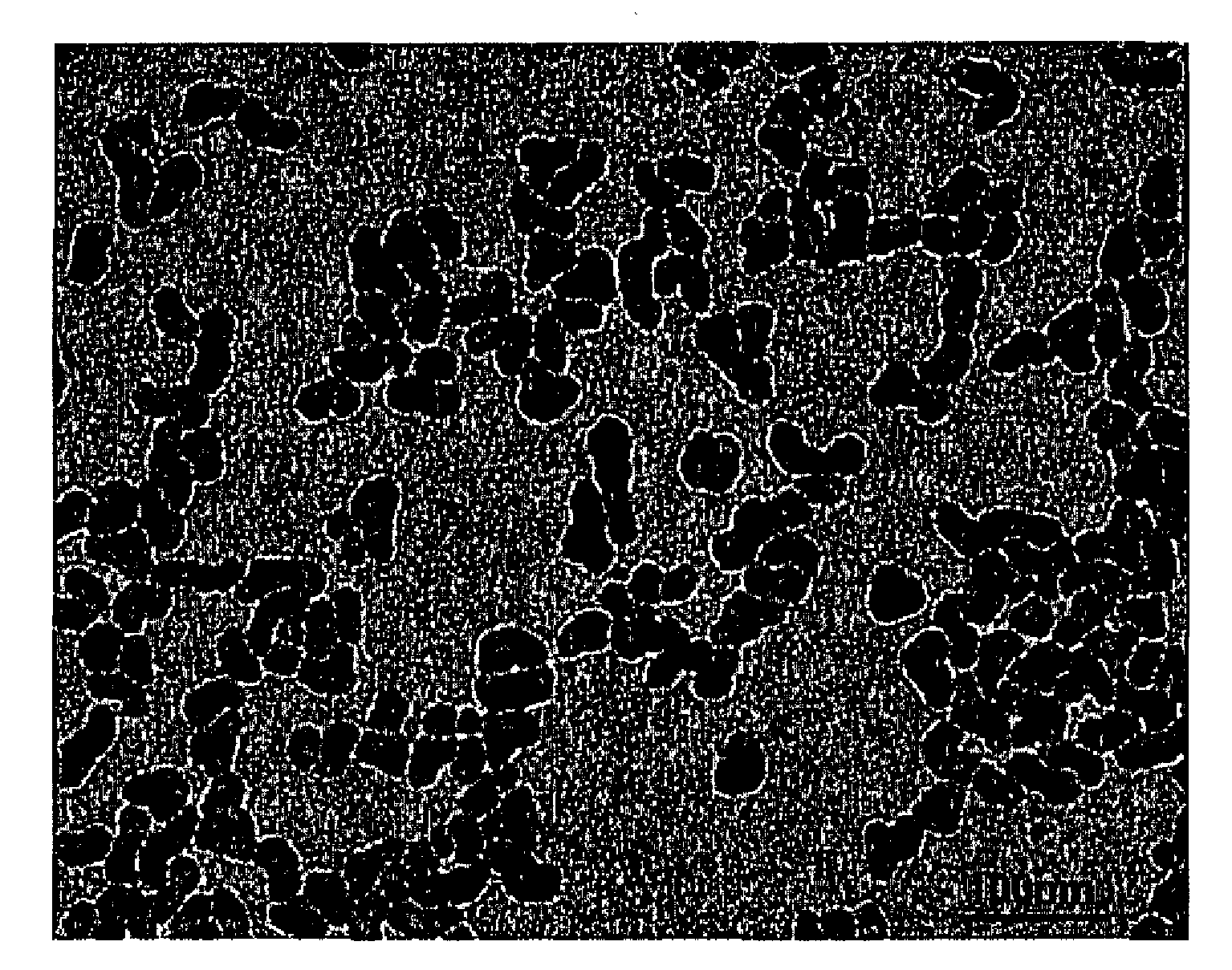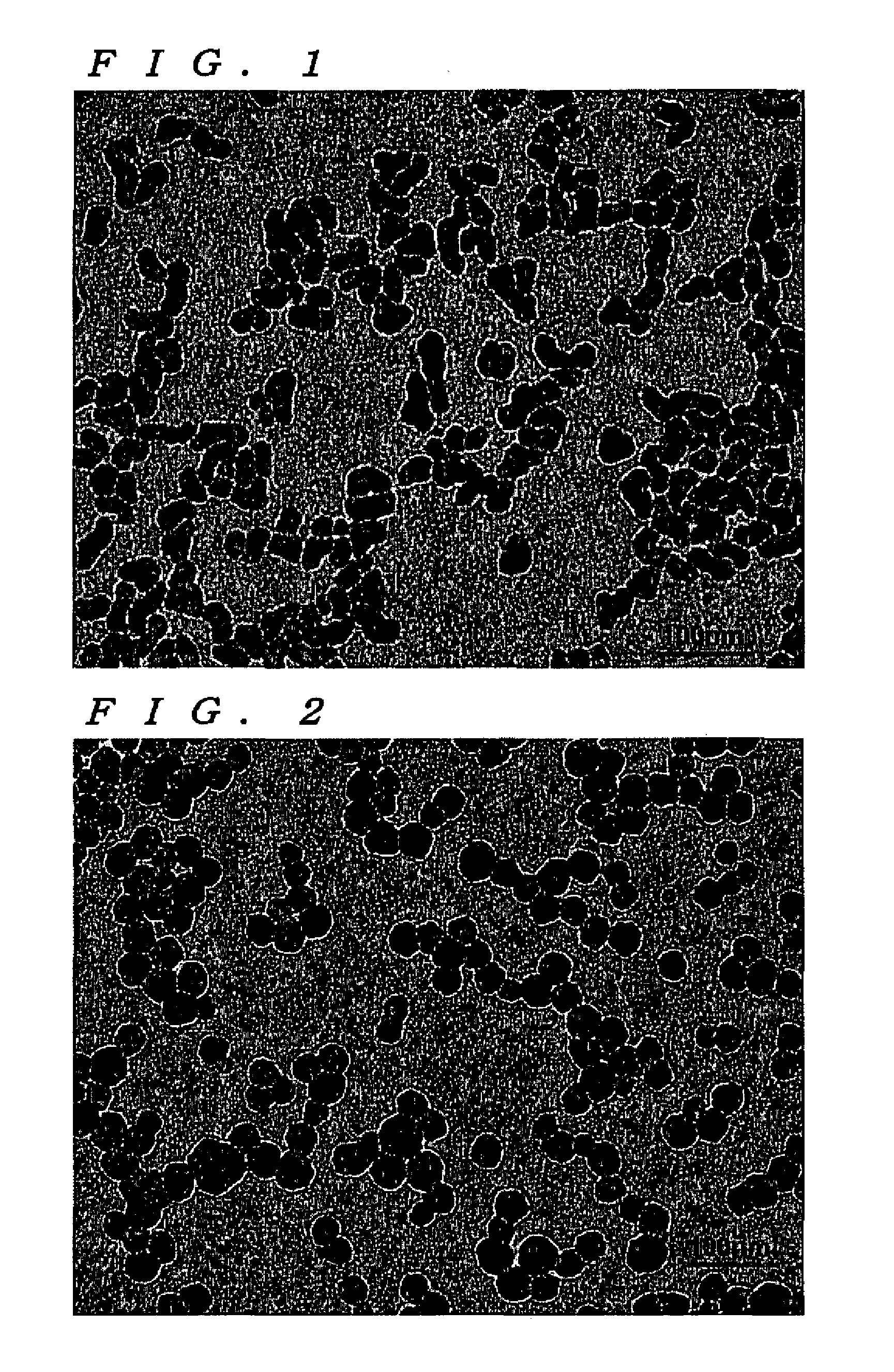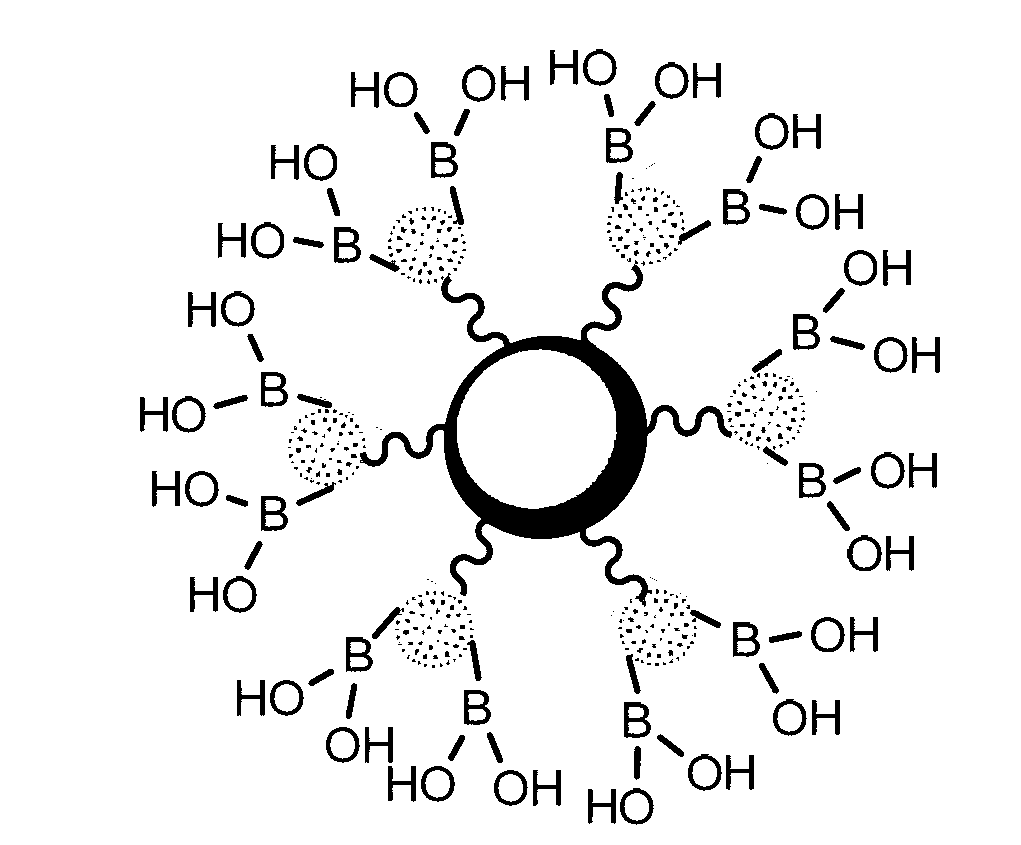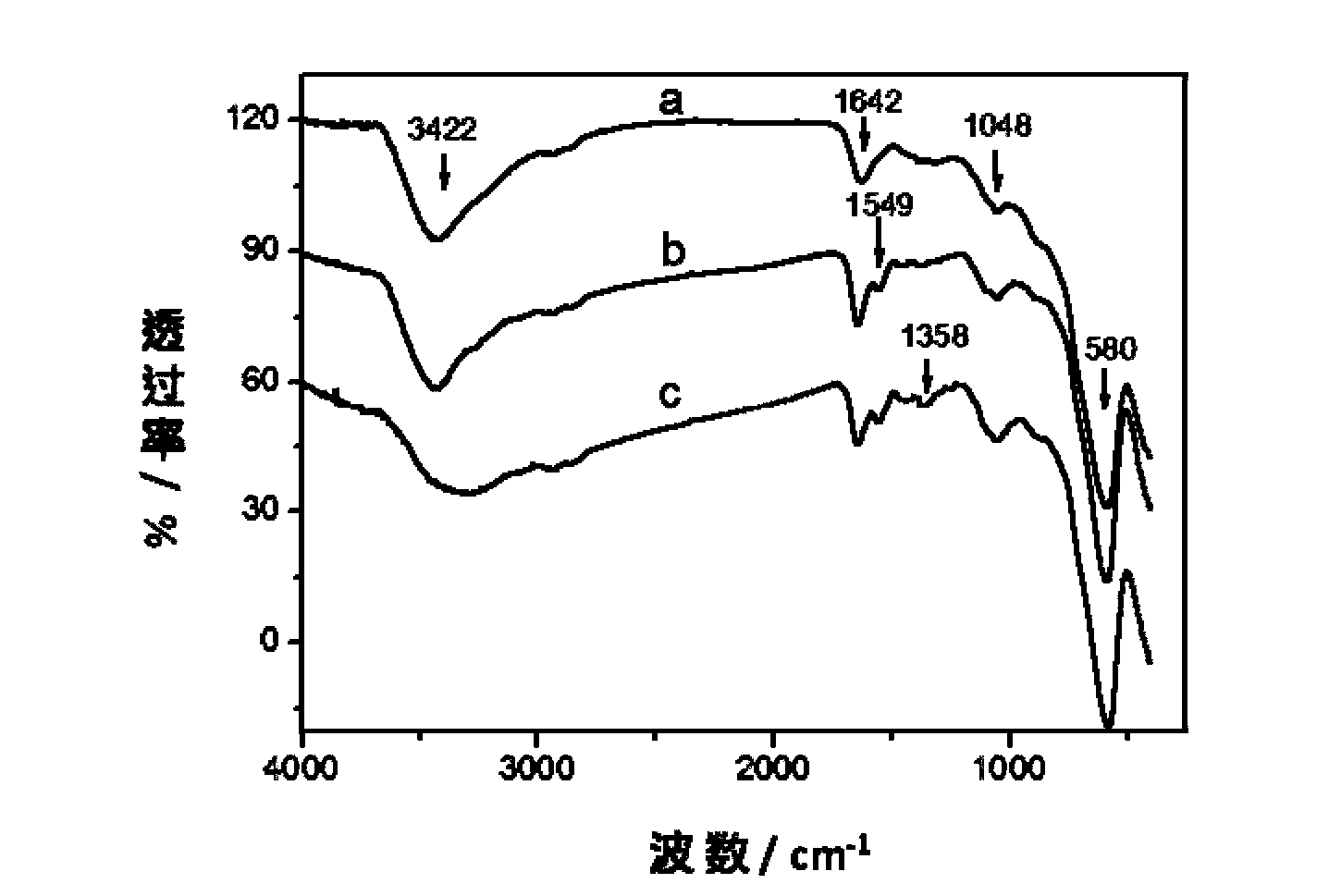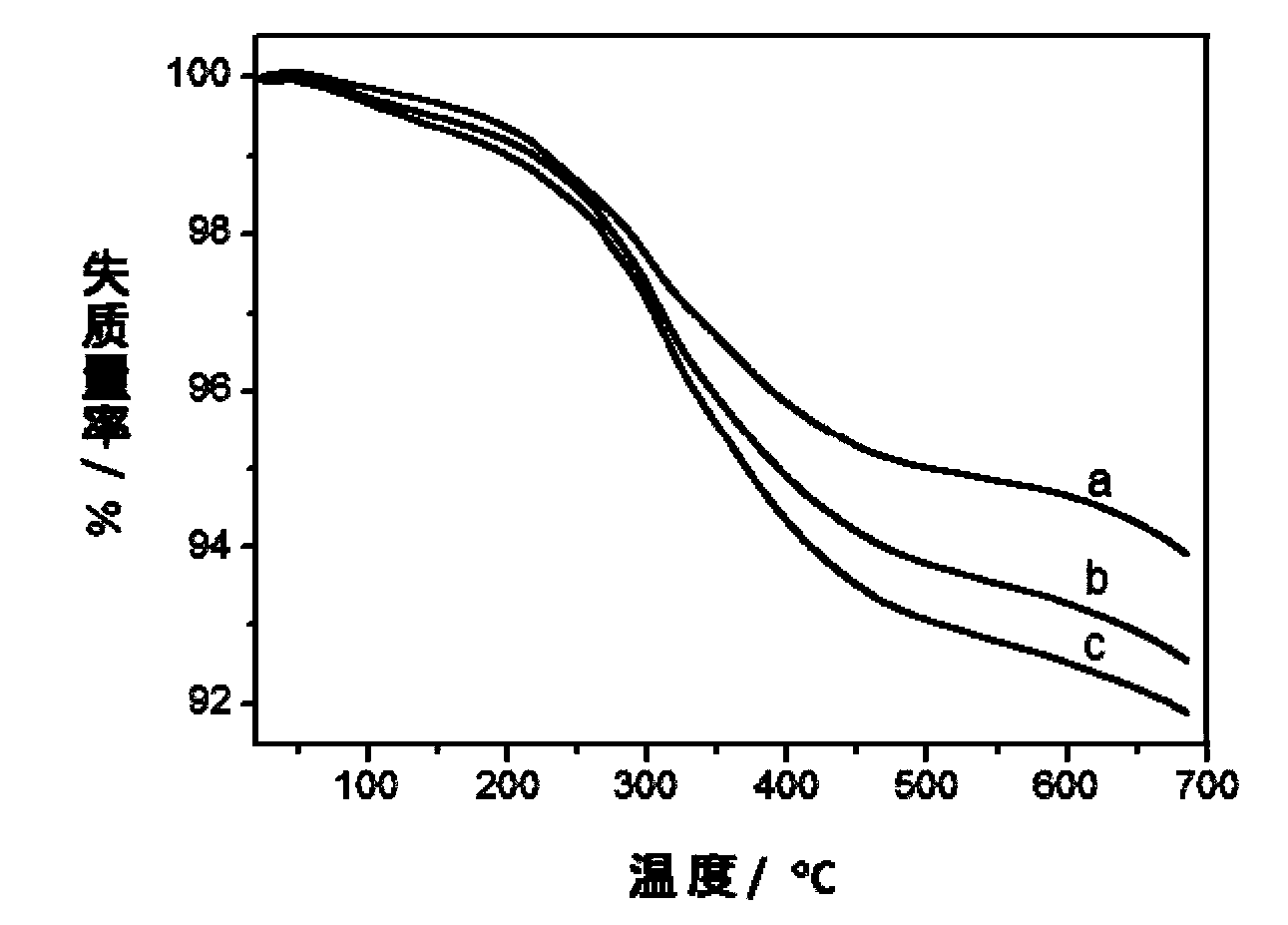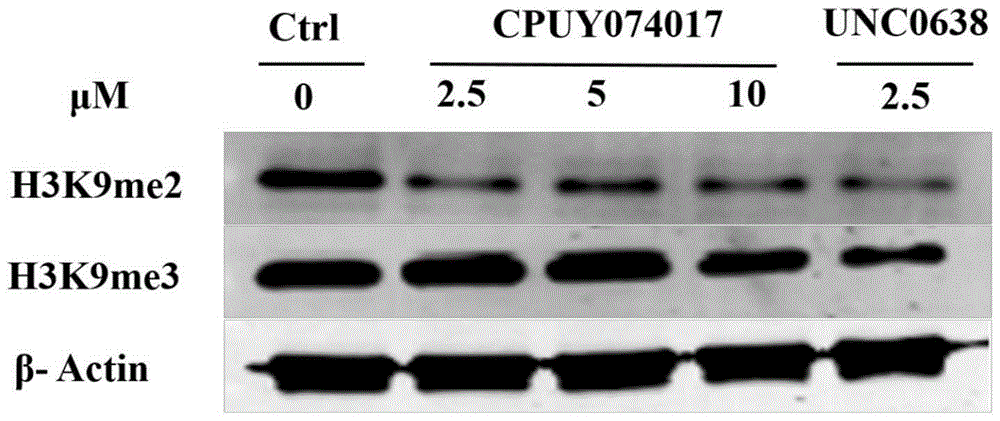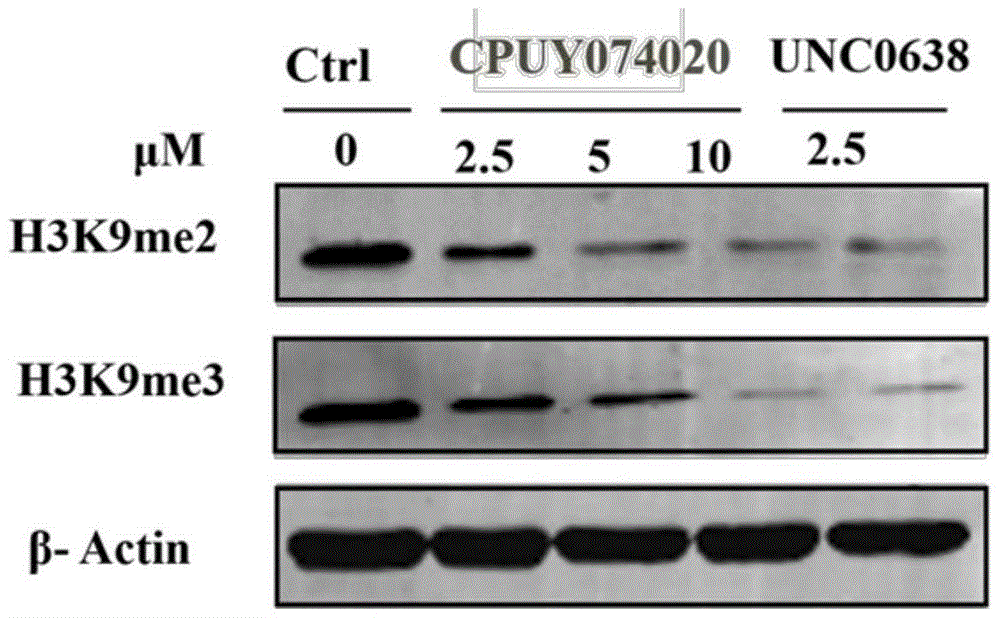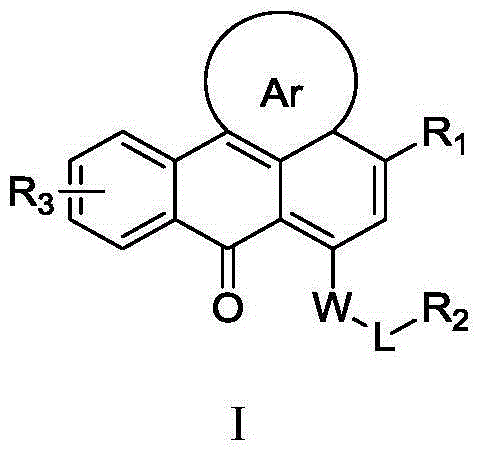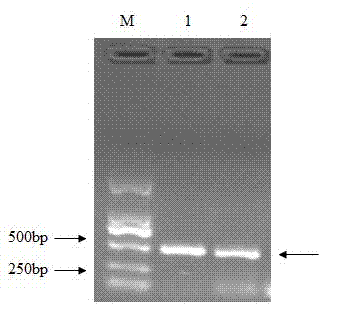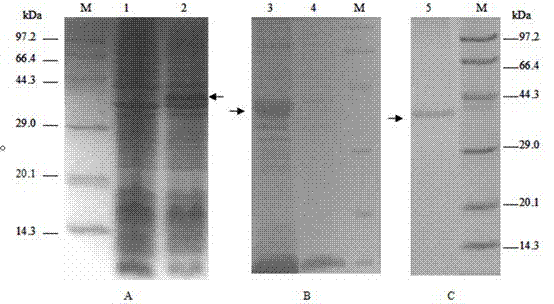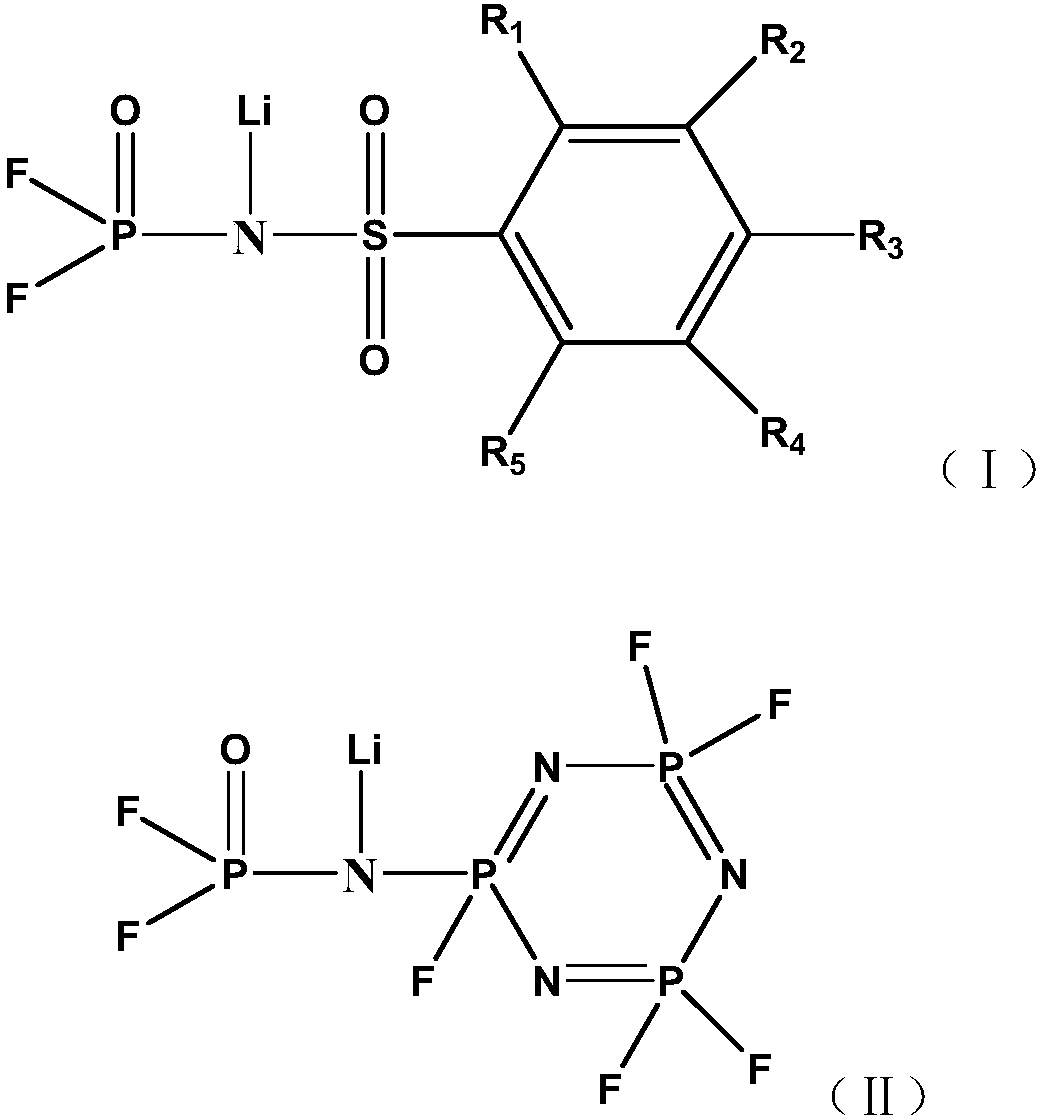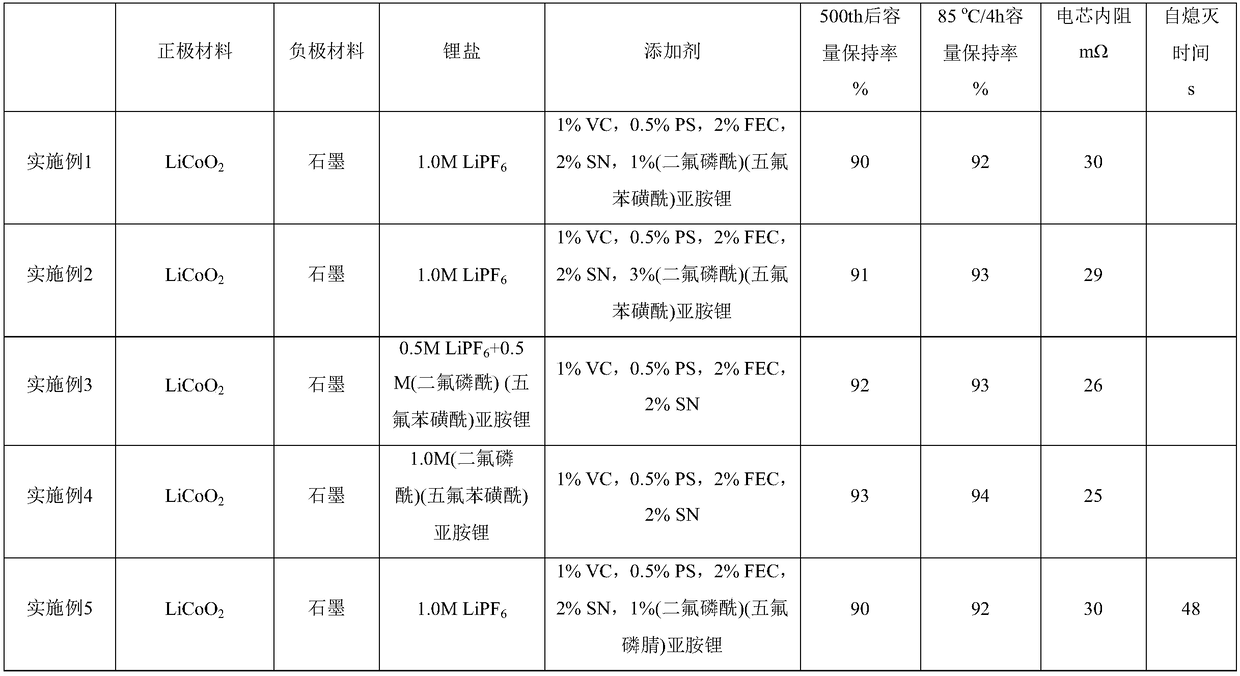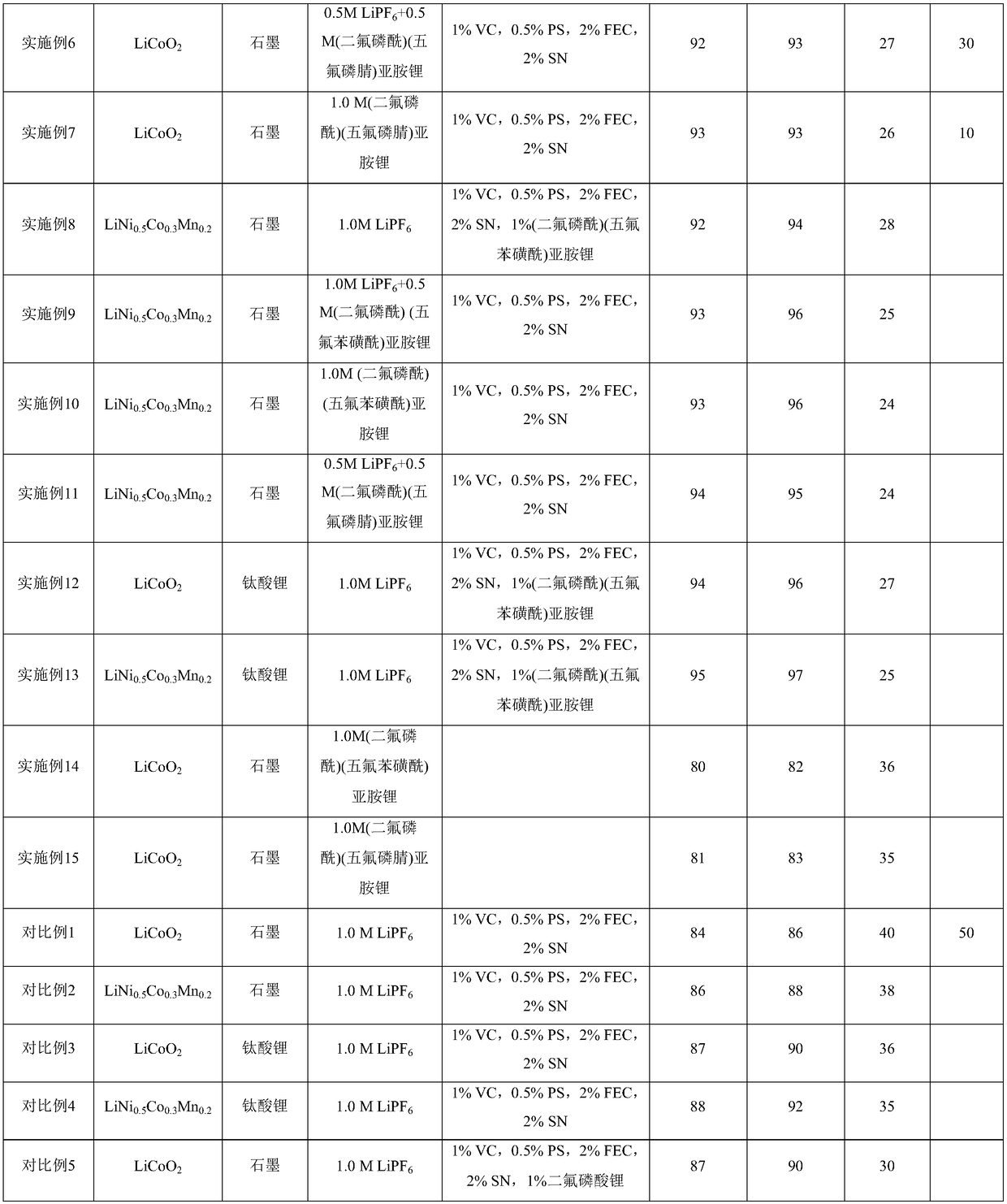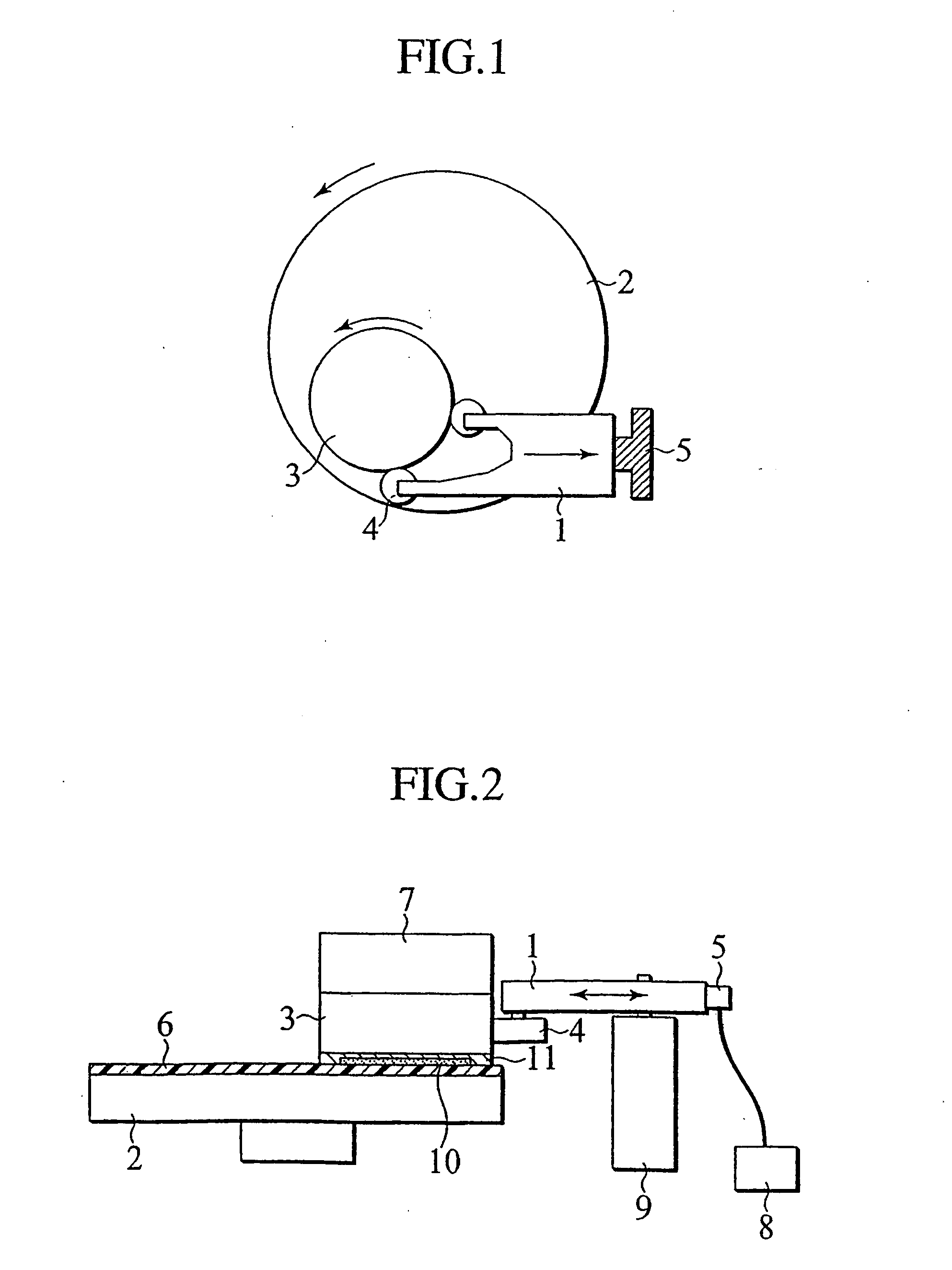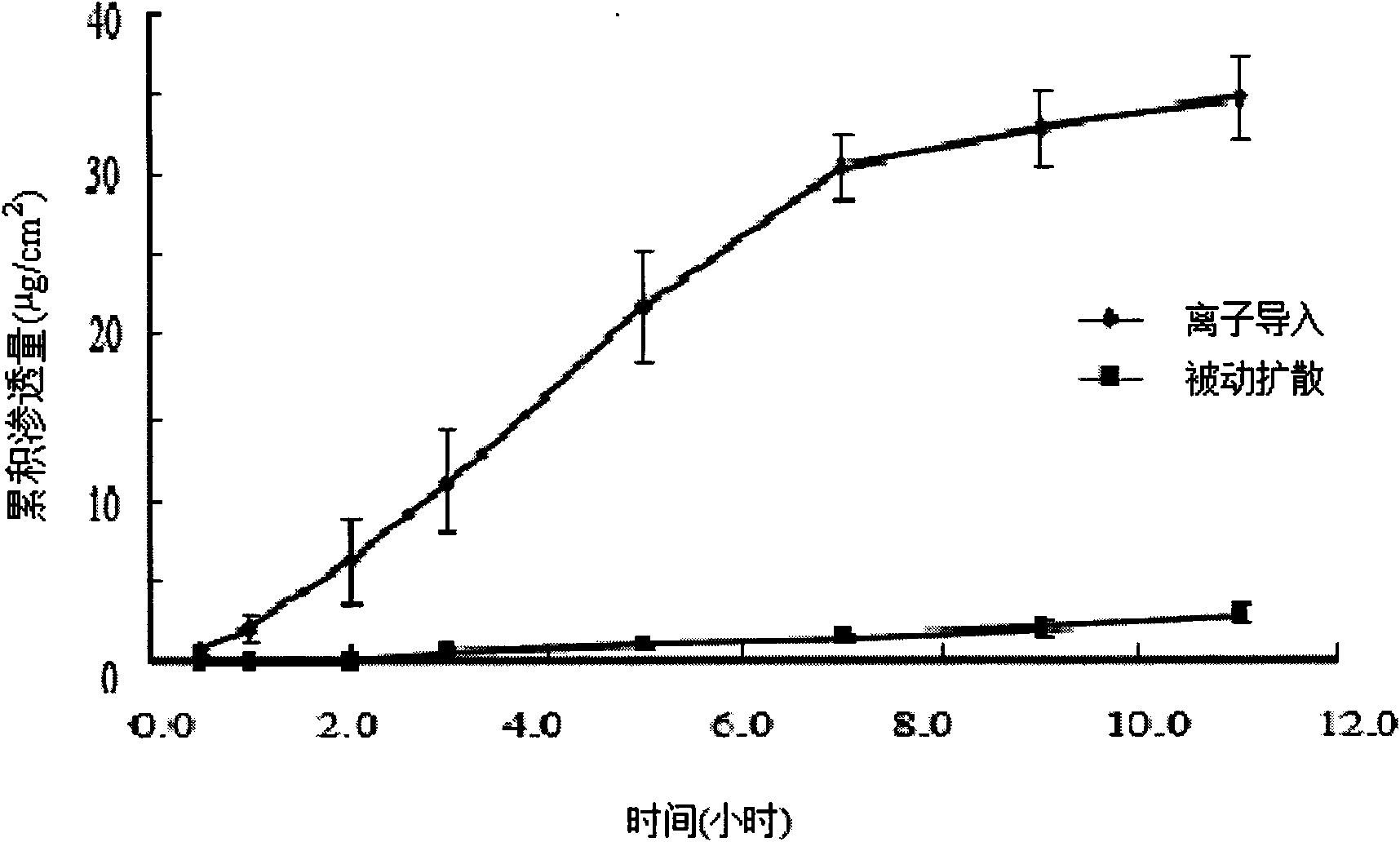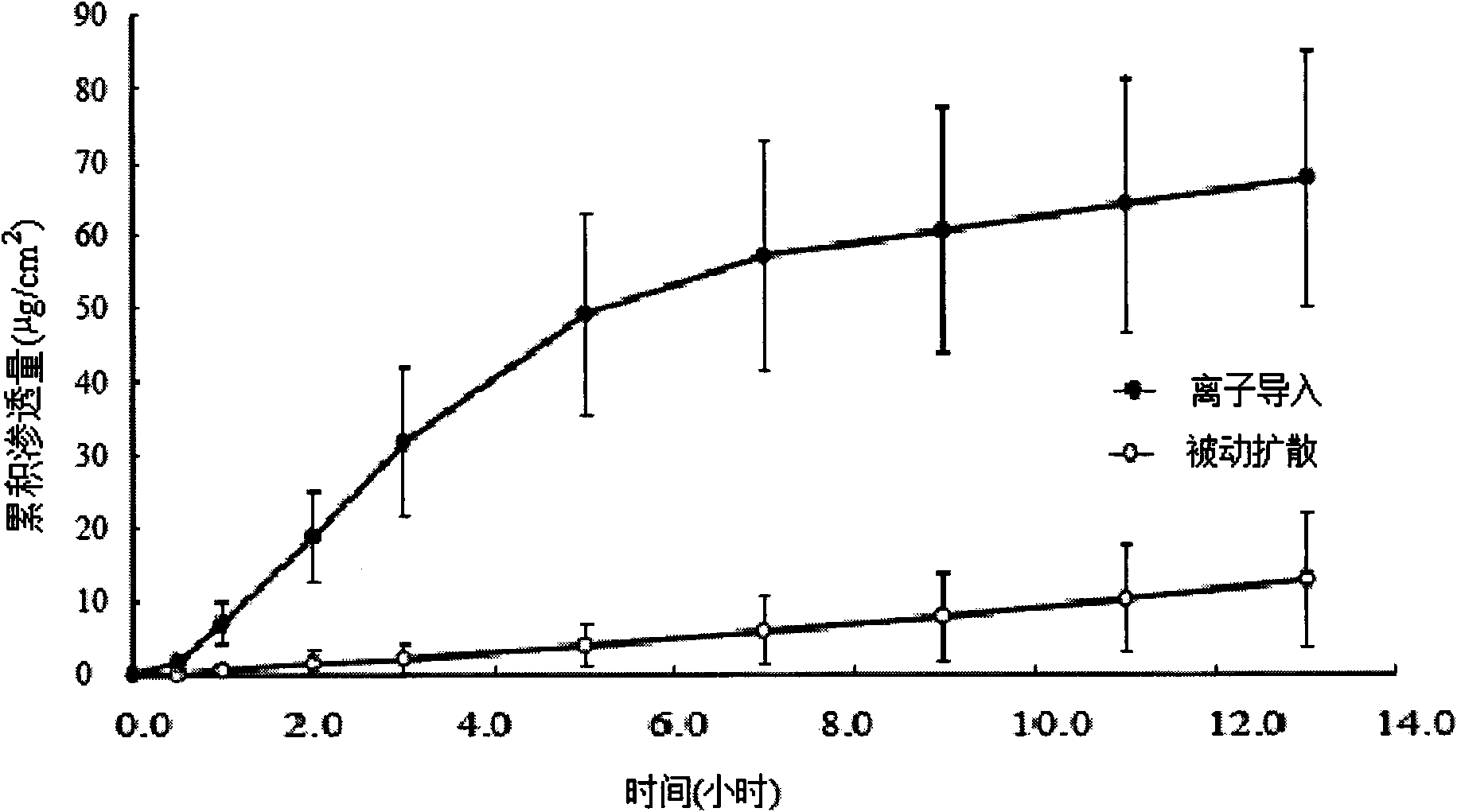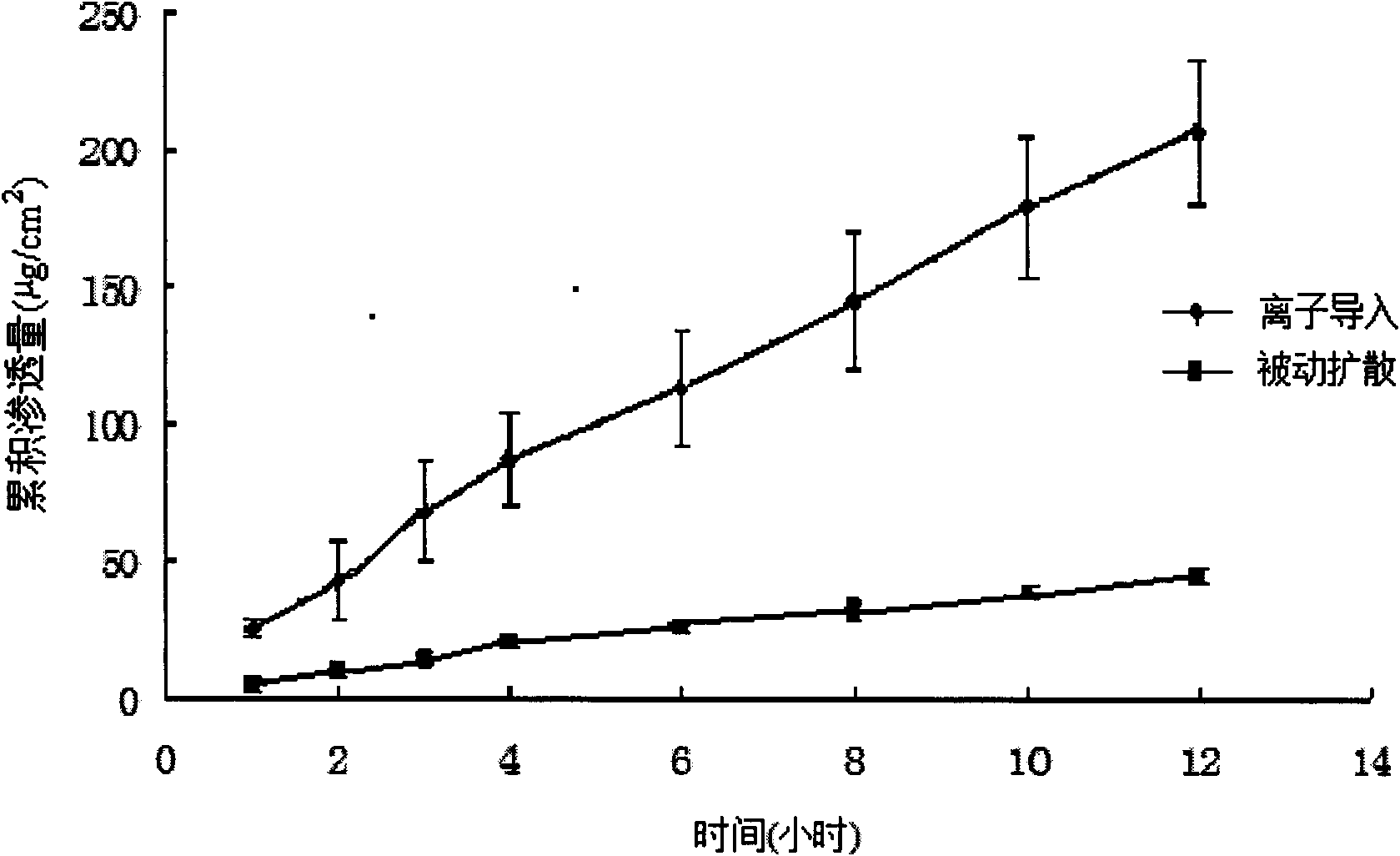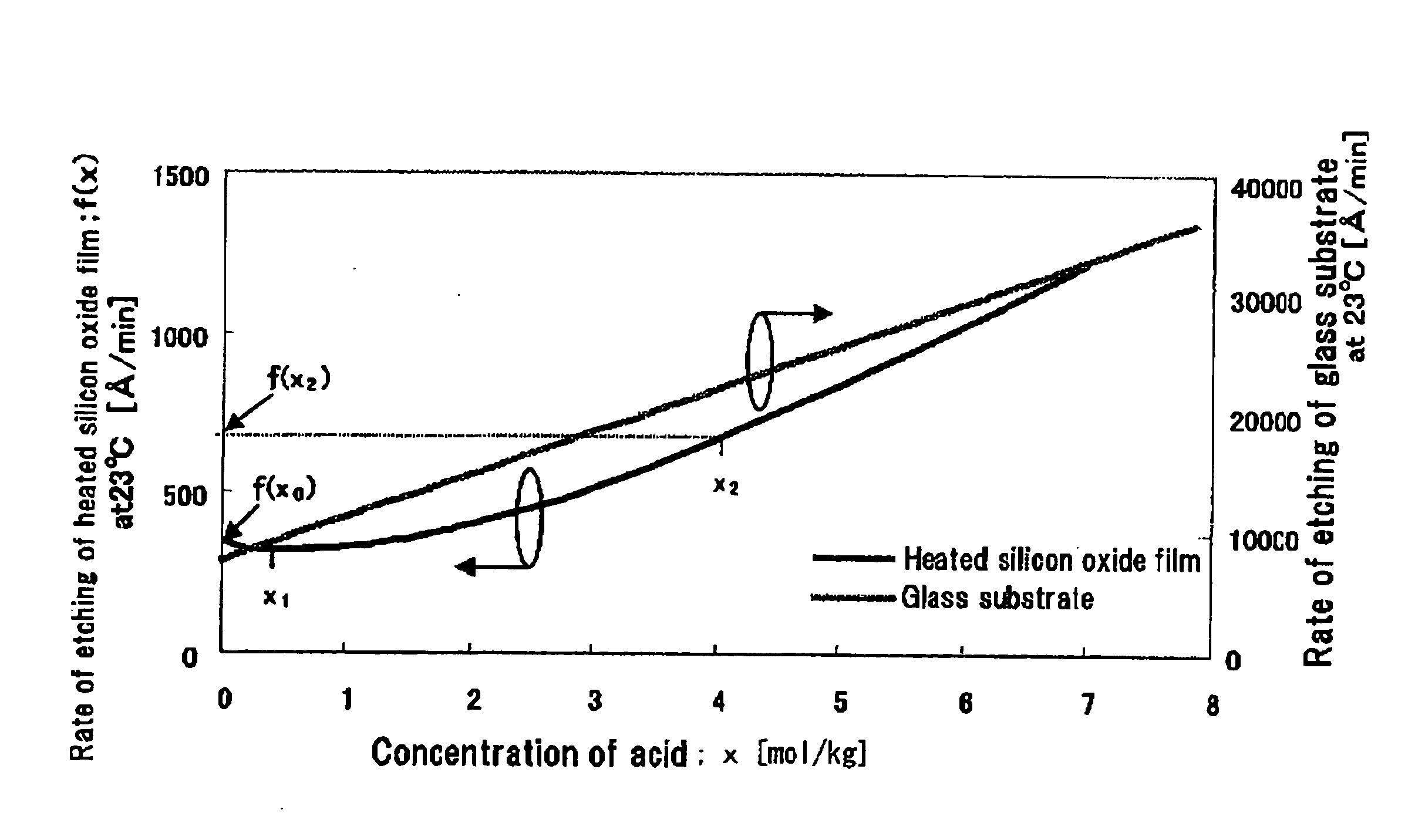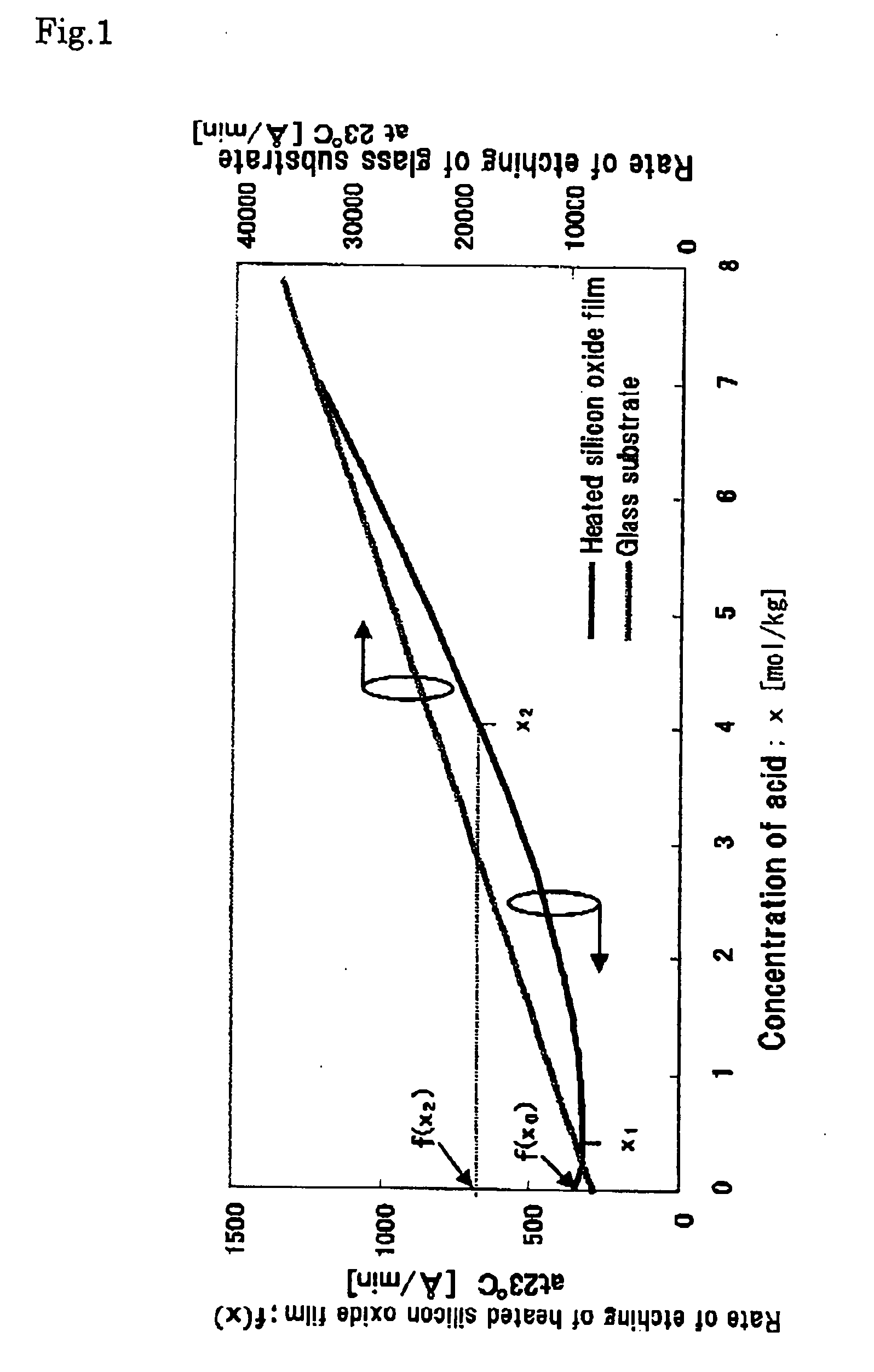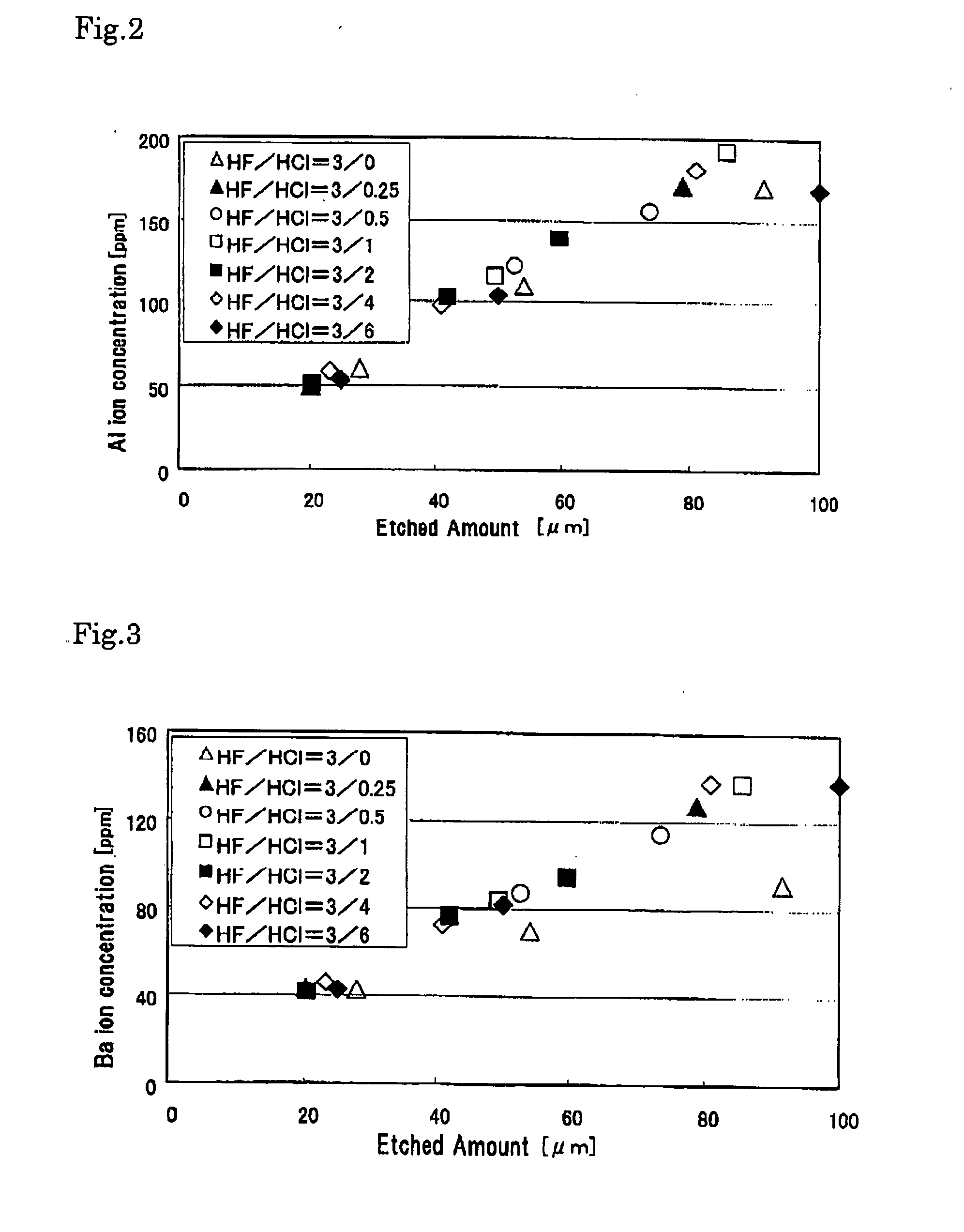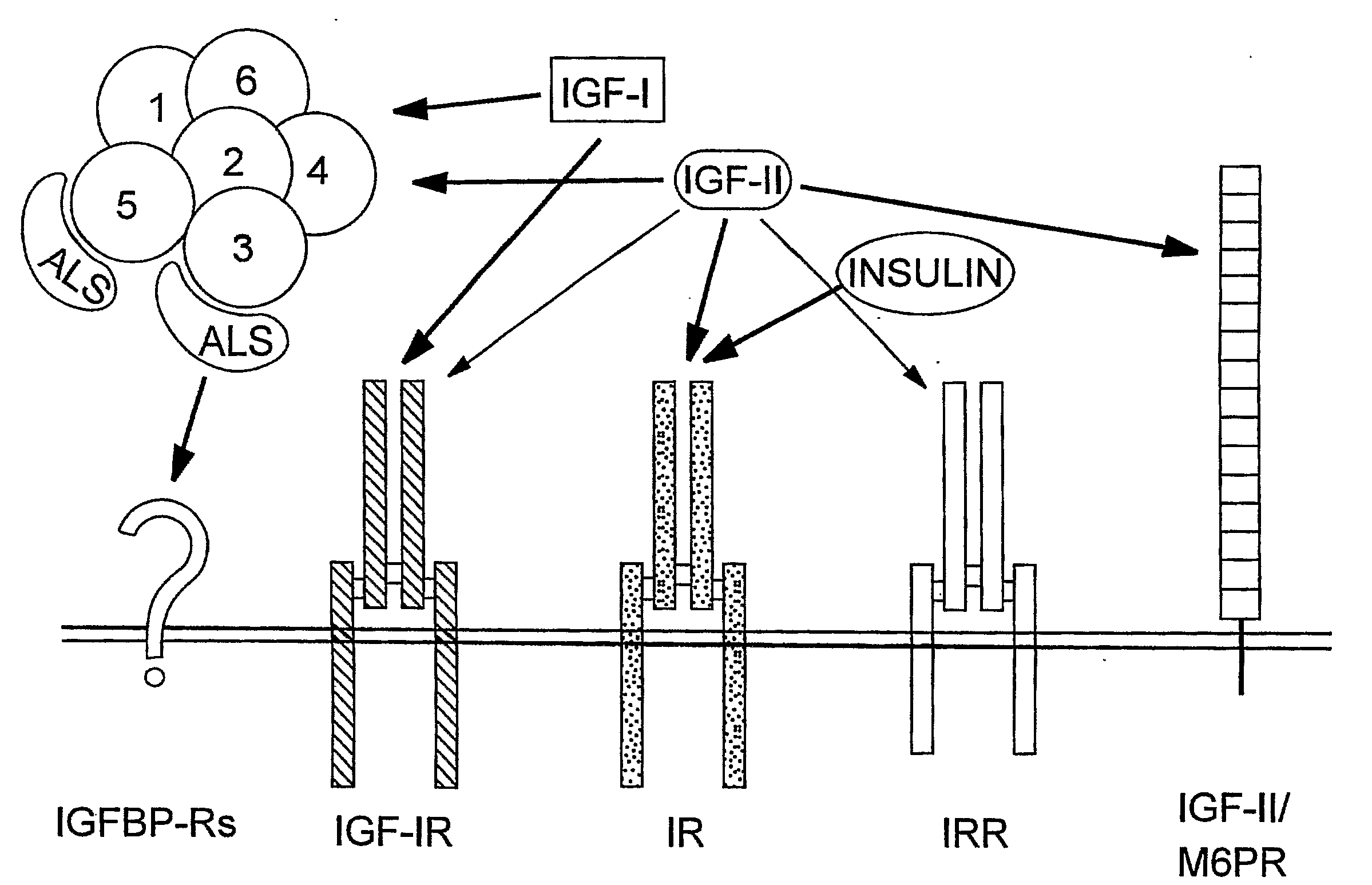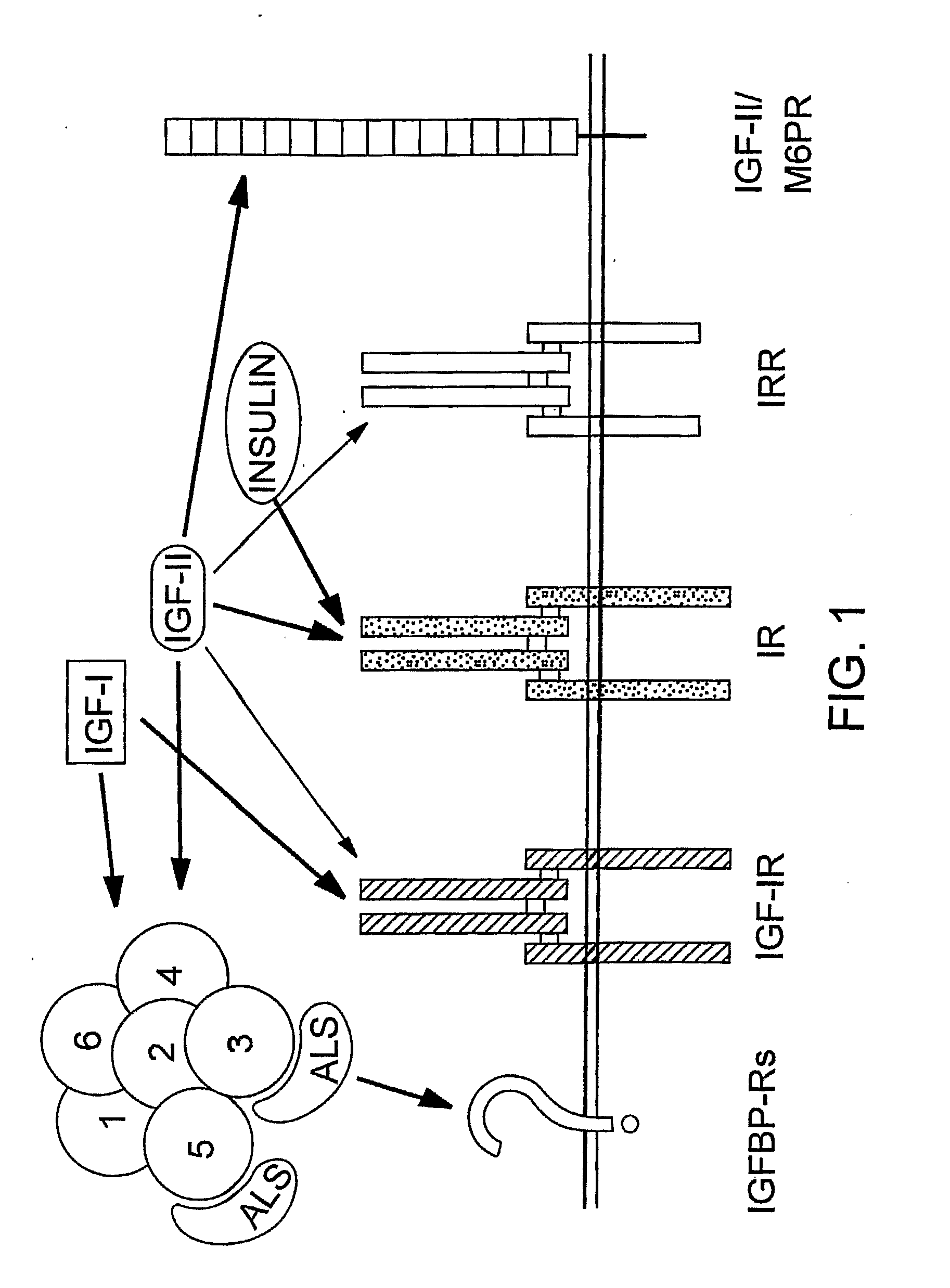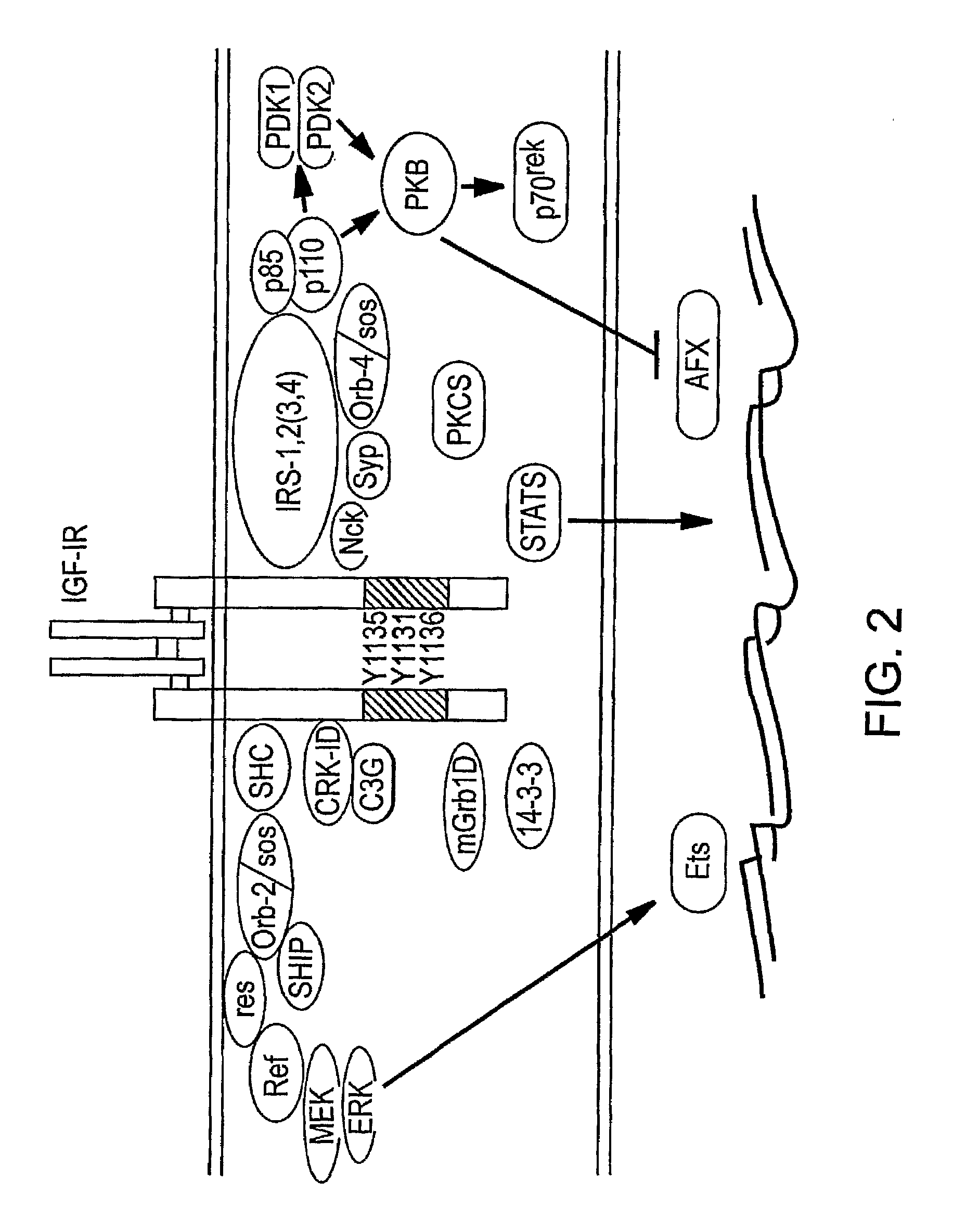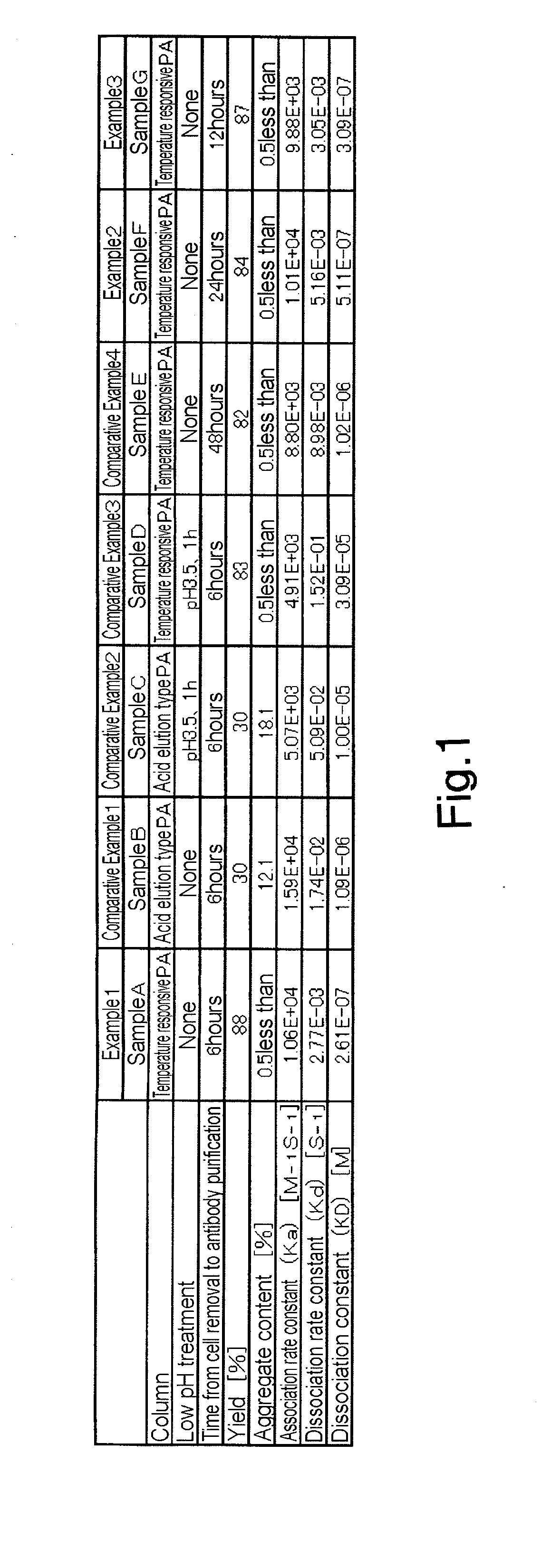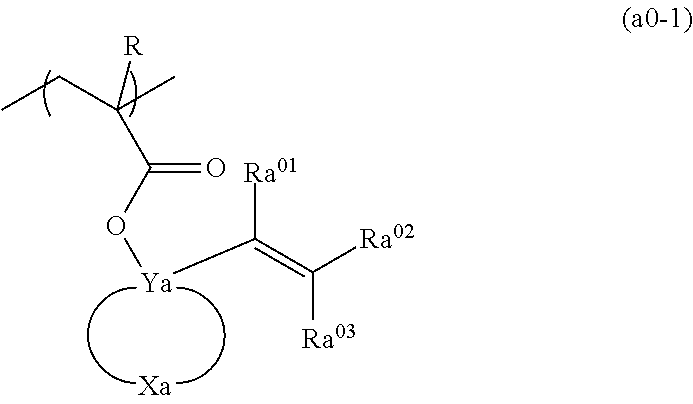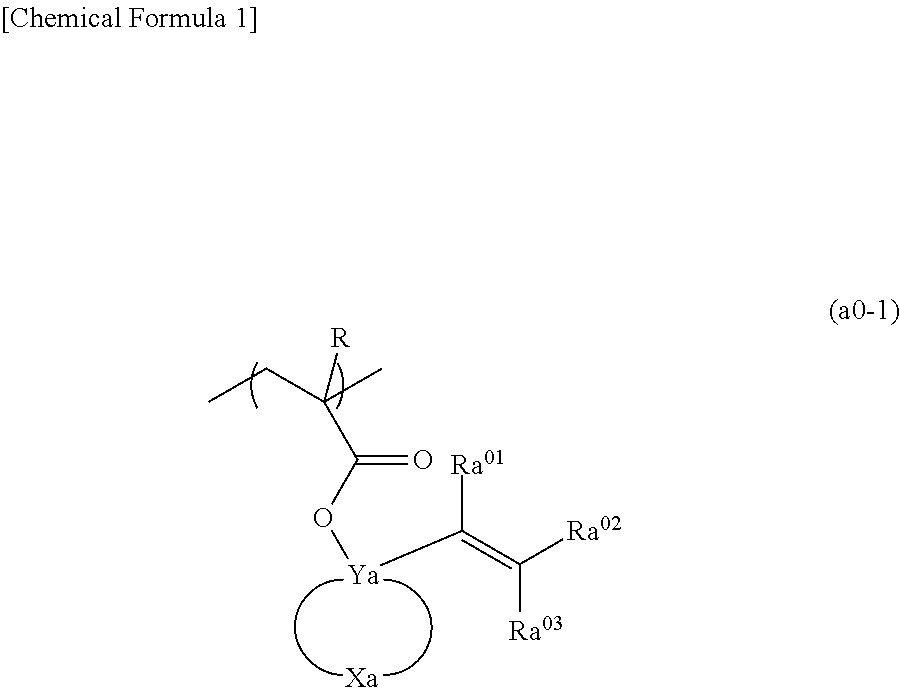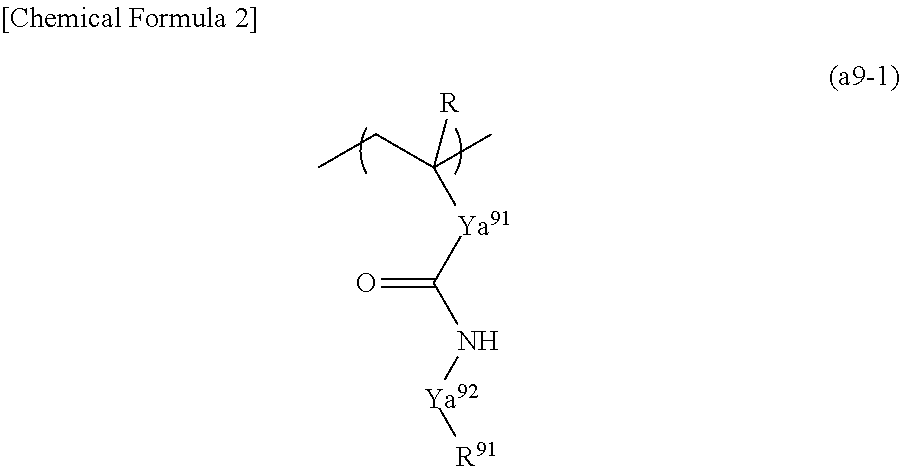Patents
Literature
191 results about "Dissociation constant" patented technology
Efficacy Topic
Property
Owner
Technical Advancement
Application Domain
Technology Topic
Technology Field Word
Patent Country/Region
Patent Type
Patent Status
Application Year
Inventor
In chemistry, biochemistry, and pharmacology, a dissociation constant (Kd) is a specific type of equilibrium constant that measures the propensity of a larger object to separate (dissociate) reversibly into smaller components, as when a complex falls apart into its component molecules, or when a salt splits up into its component ions. The dissociation constant is the inverse of the association constant.
Recombinant polyclonal antibody for treatment of respiratory syncytial virus infections
InactiveUS20100040606A1Reduce the possibilityMinimizing developmentSsRNA viruses negative-senseSugar derivativesEpitopeProtein G
Disclosed are novel polyclonal antibodies, which target respiratory syncyticilal virus (RSV), and novel high affinity antibody molecules reactive with RSV. The polyclonal antibodies may comprise antibody molecules which are reactive with both RSV protein F and RSV protein G, and preferably the polyclonal antibodies target a variety of epitopes on these proteins. The single antibody molecules of the invention are shown to exhibit affinities which provide for dissociation constants as low as in the picomolar range. Also disclosed are methods of producing the antibodies of the invention as well as methods of their use in treatment for RSV infection.
Owner:SYMPHOGEN AS
Non-equilibrium capillary electrophoresis of equilibrium mixtures (NECEEM) - based methods for drug and diagnostic development
ActiveUS20050003362A1Enhances electrophoretic separationEasy to separateCompound screeningApoptosis detectionSolid substrateNucleotide Aptamers
The invention discloses a Non-Equilibrium Capillary Electrophoresis of Equilibrium Mixtures (NECEEM) method and NECEEM-based practical applications. The NECEEM method is a homogeneous technique, which, in contrast to heterogeneous methods, does not require affixing molecules to a solid substrate. The method of the invention facilitates 3 practical applications. In the first application, the method allows the finding of kinetic and thermodynamic parameters of complex formation. It advantageously allows for revealing two parameters, the equilibrium dissociation constant, Kd, and the monomolecular rate constant of complex decay, koff, in a single experiment. In the second practical application, the method of this invention provides an approach for quantitative affinity analysis of target molecules. It advantageously allows for the use of affinity probes with relatively high values of koff. In the third practical application, the method of this invention presents a new and powerful approach to select target-binding molecules (ligands) from complex mixtures. Unique capabilities of the method in its third application include but not limited to: (a) the selection of ligands with pre-determined ranges of kinetic and thermodynamic parameters of target-ligand interactions, (b) the selection of ligands present in minute amounts in complex mixtures of biological or synthetic compounds such as combinatorial libraries of oligonucleotides, and (c) the selection of ligands for targets available in very low amounts. In particular, the method of this invention provides a novel approach for the selection of oligonucleotide aptamers. The NECEEM-based method can be used for discovery and characterization of drug candidates and the development of new diagnostic methods.
Owner:KRYLOV SERGEY
Polishing fluid and polishing method
ActiveUS20050181609A1Increase chanceSuperior in dimensional accuracy and electric characteristicOther chemical processesSemiconductor/solid-state device manufacturingDevice materialSlurry
A polishing slurry including an oxidant, a metal oxide dissolver, a metal inhibitor and water and having a pH from 2 to 5. The metal oxide dissolver contains one or more types selected from one or more acids (A-group) selected from acids of which the dissociation constant (pKa) of a first dissociable acid group is less than 3.7 and from which five acids of lactic acid, phthalic acid, fumaric acid, maleic acid and aminoacetic acid are excluded, ammonium salts of the A-group and esters of the A-group, and one or more types selected from one or more acids (B-group) selected from acids of which the dissociation constant (pKa) of a first dissociable acid group is 3.7 or more and the five acids, ammonium salts of the B-group and esters of the B-group. The metal inhibitor contains one or more types selected from the group consisting of aromatic compounds having a triazole skeleton and one or more types selected from the group consisting of aliphatic compounds having a triazole skeleton and compounds having any one of pyrimidine skeleton, imidazole skeleton, guanidine skeleton, thiazole skeleton and pyrazole skeleton. The polishing slurry having a high metal-polishing rate, reducing etching rate and polishing friction, results in the production, with high productivity, of semiconductor devices reduced in dishing and erosion in metal wiring.
Owner:HITACHI CHEM CO LTD
Surface treating solution for fine processing of glass base plate having a plurality of components
A surface treatment solution for finely processing a glass substrate containing multiple ingredients is used for the construction of liquid crystal-based or organic electroluminescence-based flat panel display devices without invoking crystal precipitation and / or increasing surface roughness. An etching solution of the invention contains, in addition to hydrofluoric acid (HF) and ammonium fluoride (NH4F), at least one acid whose dissociation constant is larger than that of HF. The concentration of the acid in the solution can advantageously be adjusted to maximize the etching rate.
Owner:KIKUYAMA HIROHISA +3
Transistor
InactiveUS20070138463A1Improve propertiesMinimizing penetrationSolid-state devicesSemiconductor/solid-state device manufacturingOrganic field-effect transistorLow voltage
A fast organic field effect transistor (100), which operates at low voltages, is achieved by the introduction of an oligomeric or polymeric electrolyte (131) between the gate electrode (141) and the organic semiconductor layer (121), which electrolyte (131) has a dissociation constant of at least 10−8. Said organic semiconductor layer (121) is in contact with the source electrode (111) and the drain electrode (112) of the transistor. In operation a potential (152) applied to said gate electrode (141) controls the current A between said source electrode (111) and said drain electrode (112).
Owner:ACREO
Polishing fluid and method of polishing
ActiveUS20050173669A1Inhibited DiffusionPigmenting treatmentOther chemical processesOrganic acidElectrical conductor
A polishing slurry comprises a metal-oxidizing agent, a metal anticorrosive agent, an oxidized metal dissolving agent and water. The oxidized metal dissolving agent is at least one kind selected from the group consisting of an acid in which the dissociation constant (pKa) of a first dissociable acid group is 3.5 or more, an ammonium salt of the acid and an organic acid ester of the acid. The pH of the polishing slurry is within the range of 3 to 4. The concentration of the metal-oxidizing agent is within the range of 0.01 to 3 percent by weight. In the wiring-formation process of the semiconductor device, the conductor used for the barrier layer can be polished at a high polishing rate by using the polishing slurry having the low polishing particle concentration and the low metal anticorrosive agent concentration.
Owner:RESONAC CORP
Coferons and methods of making and using them
ActiveUS20110263688A1Easy to modifyDisrupt interactionSugar derivativesNucleotide librariesChemical compoundCombinatorial chemistry
A monomer useful in prepaπng therapeutic compounds includes a diversity element which potentially binds to a target molecule with a dissociation constant of less than 300 11 M and a linker element connected to the diversity element The linker element has a molecular weight less than 500 daltons, is connected, directly or indirectly through a connector, to said diversity element, and is capable of forming a reversible covalent bond or noncovalent interaction with a binding partner of the linker element The monomers can be covalently or non-covalently linked together to form a therapeutic multimer or a precursor thereof
Owner:CORNELL UNIVERSITY +1
Preparation method of solvent-free environment-friendly aqueous polyurethane emulsion with multi-model particle size distribution, high solid content, and low viscosity
The invention discloses a preparation method of solvent-free environment-friendly aqueous polyurethane emulsion with multi-model particle size distribution, a high solid content, and a low viscosity. The preparation method comprises the following steps: reacting polyol with a molecular weight of 400 to 5000 with diisocyanate to generate a prepolymer comprising a -NCO terminal group, then adding a hydrophilic chain extender to carry out chain extension, then adding micro-molecular dibasic alcohol to carry out chain extension, adding neutralizing agents with different alkali dissociation constants into a certain amount of deionized water according to a certain ratio, and then adding the neutralizing agents into the polyurethane prepolymer under high-speed stirring so as to obtain a milk-white emulsion product. The prepared aqueous polyurethane emulsion has a solid content of 60% or more, and has the advantages of low viscosity and high stability. At the same time, the added organic solvent is volatile, and the step of removing solvent is saved.
Owner:武汉强力荷新材料有限公司
Engineered integrin binding peptides
Engineered peptides that bind with high affinity (low equilibrium dissociation constant (Kd)) to the cell surface receptors of fibronectin (α5β1) or vitronectin (αvβ3 and αvβ5 integrins) are disclosed. These peptides are based on a molecular scaffold into which a subsequence containing the RGD integrin-binding motif has been inserted. The subsequence (RGD mimic) comprises about 9-13 amino acids, and the RGD contained within the subsequence can be flanked by a variety of amino acids, the sequence of which was determined by sequential rounds of selection (in vitro evolution). The molecular scaffold is preferably based on a knottin, e.g., EETI (Trypsin inhibitor 2 (Trypsin inhibitor II) (EETI-II) [Ecballium elaterium (Jumping cucumber)], AgRP (Agouti-related protein), and Agatoxin IVB, which peptides have a rigidly defined three-dimensional conformation. It is demonstrated that EETI tolerates mutations in other loops and that the present peptides may be used as imaging agents.
Owner:THE BOARD OF TRUSTEES OF THE LELAND STANFORD JUNIOR UNIV
Surface treatment solution for the fine surface processing of a glass substrate containing multiple ingredients
InactiveUS20090075486A1Decorative surface effectsSemiconductor/solid-state device manufacturingHydrofluoric acidAdditive ingredient
A surface treatment solution for finely processing a glass substrate containing multiple ingredients is used for the construction of liquid crystal-based or organic electroluminescence-based flat panel display devices without invoking crystal precipitation and / or increasing surface roughness. An etching solution of the invention contains, in addition to hydrofluoric acid (HF) and ammonium fluoride (NH4F), at least one acid whose dissociation constant is larger than that of HF. The concentration of the acid in the solution can advantageously be adjusted to maximize the etching rate.
Owner:STELLA CHEMIFA CORP
Coferons and methods of making and using them
ActiveUS20150105553A1Disrupt interactionModulate and inhibit protein-protein signalingSilicon organic compoundsSugar derivativesChemical compoundMolecular binding
The present invention is directed to a monomer useful in preparing therapeutic compounds. The monomer includes a diversity element which potentially binds to a target molecule with a dissociation constant of less than 300 μM and a linker element connected to the diversity element. The linker element has a molecular weight less than 500 daltons, is connected, directly or indirectly through a connector, to said diversity element, and is capable of forming a reversible covalent bond or non-covalent interaction with a binding partner of the linker element. The monomers can be covalently or non-covalently linked together to form a therapeutic multimer or a precursor thereof. Also disclosed is a method of screening for therapeutic multimer precursors which bind to a target molecule associated with a condition and a method of screening for linker elements capable of binding to one another. The present invention additionally relates to a therapeutic multimer, which includes a plurality of covalently or non-covalently linked monomers, therapeutic monomers, and uses of such dimers and monomers.
Owner:BLINKBIO INC
Oat extracts: refining, compositions and methods of use
InactiveUS20050042243A1Improve propertiesDisinfection is simpleCosmetic preparationsBiocideMedicineUltrafiltration
A simple and efficient method for the production of stable, clear, high-potency oat extracts is disclosed. The method employs the use of differential dissociation constants and ultrafiltration to stabilise extracts, prevent hazing, and prevent the loss of functional activity as an anti-irritant and anti-oxidant. Also disclosed are compositions of oat extracts derived from whole oat grains and oatmeal. Further disclosed are compositions of oat extracts for use in cosmetic, nutraceutical, therapeutic medical and veterinary preparations.
Owner:CEAPRO
Analytical measuring and evaluation method for molecular interactions
InactiveUS20030143565A1Concentration of analyte can be raised and loweredImprove accuracyMicrobiological testing/measurementBiological testingAnalyteDissociation constant
The invention relates to an analytical measuring and evaluation method for determining the interaction parameters between an analyte and a ligand, preferably in a biosensor. According to the inventive method, the concentration of the analyte is gradually changed at defined intervals ti and the initial association or dissociation rates or association and dissociation constants are determined. The invention further relates to a device for carrying out the inventive method.
Owner:CYTIVA SWEDEN AB
Complex formation between dsDNA and oligomer of cyclic heterocycles
Methods and compositions are provided for forming complexes intracellularly between dsDNA and oligomers of heterocycles, aliphatic amino acids, particularly omega-amino acids, and a polar end group. By appropriate choice of target sequences and composition of the oligomers, complexes are obtained with low dissociation constants. The formation of complexes can be used for modifying the phenotype of cells, either prokaryotic or eukaryotic, for research and therapy.
Owner:CALIFORNIA INST OF TECH +1
Method for measuring dissociation constant by surface plasmon resonance analysis
ActiveUS7602495B2Reliable resultsReliable measurement resultsPhase-affecting property measurementsScattering properties measurementsLow noiseMeasurement device
An object to be solved by the present invention is to determine the dissociation constant of an analyte molecule immobilized on a metal surface and a molecule that interacts therewith in surface plasmon resonance (SPR) analysis via an analytical method that produces a low noise level (i.e., a noise width of a reference chip), small baseline fluctuations (i.e., signal changes of a reference chip), and highly reliable results of measurement. The present invention provides a method for determining a dissociation constant of an analyte molecule immobilized on a metal surface and a molecule that interacts therewith, wherein changes in surface plasmon resonance signals are measured by using a surface plasmon resonance measurement device comprising a flow channel system having a cell formed on a metal film and a light-detecting means for detecting the state of surface plasmon resonance by measuring the intensity of a light beam totally reflected on the metal film; wherein a change in surface plasmon resonance signals is measured in a state where the flow of the liquid has been stopped, after the liquid contained in the above flow channel system has been exchanged; and wherein the dissociation constant is determined based on the results of measurement of signal changes.
Owner:FUJIFILM CORP
Assay for evaluating affinity and specificity of ligand-albumin binding
ActiveUS20110124120A1Chemiluminescene/bioluminescenceBiological material analysisFluorescenceAlbumin
A method for identifying a ligand or compound which binds to albumin comprises the steps of contacting a reaction mixture comprising a site-specific probe and albumin in the presence and the absence of the ligand or compound and measuring either dissociation constant KD, inhibitor concentration IC50 or fluorescence displacement; whereby a change in KD, IC50 and / or fluorescence in the presence of the ligand or compound is indicative of the ligand or compound binds to albumin.
Owner:JANSSEN PHARMA NV
Mechanism-based inhibitors of transthyretin amyloidosis: studies with biphenyl ethers and structural templates
Transthyretin (TTR), a tetrameric thyroxine (T4) carrier protein, is associated with a variety of amyloid diseases. Derivative of biphenyl ethers (BPE), which are shown to interact with a high affinity to its T4 binding site thereby preventing its aggregation and fibrillogenesis. They prevent fibrillogenesis by stabilizing the tetrameric ground state of transthyretin. Two compounds (2-(5-mercapto-[1,3,4]oxadiazol-2-yl)-phenol and 2,3,6-trichloro-N-(4H-[1,2,4]triazol-3-yl) exhibit the ability to arrest TTR amyloidosis. The dissociation constants for the binding of BPEs and compound 11 and 12 to TTR correlate with their efficacies of inhibiting amyloidosis. They also have the ability to inhibit the elongation of intermediate fibrils as well as show nearly complete (>90%) disruption of the preformed fibrils. Biphenyl ethers and compounds 11 and 12 as very potent inhibitors of TTR fibrillization and inducible cytotoxicity.
Owner:NATIONAL INSTUTUTE OF IMMUNOLOGY
Polishing composition for semiconductor wafer, production method thereof, and polishing method
InactiveUS20080038996A1Conductivity adjustablePigmenting treatmentOther chemical processesColloidal silicaSilicic acid
A polishing composition for semiconductor wafers containing colloidal silica is disclosed, wherein the colloidal silica is prepared from an active silicic acid aqueous solution obtained by removing alkali from an alkali silicate aqueous solution and a quaternary ammonium base, and is stabilized with a quaternary ammonium base. The polishing composition contains no alkali metals. The polishing composition contains a buffer solution that is a combination of a weak acid having a pKa from 8.0 to 12.5 at 25° C. (pKa is a logarithm of the reciprocal of acid dissociation constant) and a quaternary ammonium base, and exhibits a buffer action in the range from pH8 to pH11.
Owner:NIPPON CHECMICAL IND CO LTD +1
High-affinity tree-like boric acid functionalized magnetic microsphere as well as preparation method and application thereof
InactiveCN103157447AImprove bindingHigh affinityIon-exchange process apparatusOther chemical processesAnti jammingMicrosphere
The invention discloses a high-affinity tree-like boric acid functionalized magnetic microsphere as well as a preparation method and an application thereof. The surface of the microsphere contains high-density boric acid radicals, and the polyvalent cooperative binding can be generated for cis-dihydroxy enriched biological molecules, so that bonding force is obviously improved. The dissociation constant of the microsphere to glycoprotein is 10<-5> to 10<-6>M, the bonding force is improved by 3-4 orders of magnitude compared with the ordinary boric acid functionalized material, and the glycoprotein with the concentration of 2*10<-14>M can be enriched. Moreover, the microsphere further has the advantages of being high in anti-jamming capability, high in binding capacity, quick in binding / analyzing speed, and the like. Since the microsphere has magnetism, a sample can be conveniently processed by applying an external field. According to the high-affinity tree-like boric acid functionalized magnetic microsphere disclosed by the invention, the cis-dihydroxy enriched biological molecules with low abundance in a complicated sample can be conveniently and quickly enriched, purified and separated.
Owner:NANJING UNIV
Heterocyclic anthracene ketone histone methyltransferase inhibitor and medical application thereof
The invention relates to the field of medicinal chemistry, in particular to a heterocyclic anthracene ketone histone methyltransferase inhibitor and a preparation method and application of the heterocyclic anthracene ketone histone methyltransferase inhibitor. It is proved by pharmacology experiments that the compound has a good inhibiting effect on histone methyltransferase from the molecular level to the cell level, has good antiproliferative activity on tumor cell strains and has reasonable medicinal parameters, such as a proper dissociation constant (pKa), a lipid-aqueous partition coefficient (LogD, pH=7.4), water solubility and film transmittance. It is testified by research on pharmacokinetics that the compound is wide in distribution in a body of a rat, the plasma clearance can be within an acceptable range, and good bioavailability is achieved. The compound and the pharmaceutic preparation of the compound can be used for treating a series of diseases caused by disorder of enzyme activity of the histone methyltransferase, such as solid tumor, leucocythemia, malaria and neurodegenerative diseases.
Owner:CHINA PHARM UNIV
Affinity chromatographic stuffing with sulfadimidine as ligand
InactiveCN1548224AHigh affinityImprove securityIon-exchange process apparatusOther chemical processesAntigenSulfanilamide
The present invention is one kind of affinity chromatographic stuffing with sulfadimidine as ligand specially for separating antigen globin. Sulfadimidine is one kind of widely applied sterilizing medicine, and its amino group may be utilized to bond to various carrier to prepare affinity chromatographic stuffing. The stuffing is used in specifically separating gamma antigen globin from plasma, fermented liquid, tissue homogenizing liquid and other matter containing gamma antigen globin, with purity reaching 91 %. The immobilized sulfadimidine and human IgG have interaction dissociation constant up to 3E(-6) mol / L. The new affinity chromatographic stuffing has high affinity, high safety, low cost and other features.
Owner:INST OF CHEM CHINESE ACAD OF SCI
Polyamide resin
InactiveUS6841651B2Excellent melt viscosity stabilityEnvelopes/bags making machinerySynthetic resin layered productsPolyamideCarboxylic acid
The polyamide resin of the present invention is produced by polycondensation of a diamine component comprising 70 mol % or more of m-xylylenediamine and a dicarboxylic acid component comprising 70 mol % or more of a C4-C20 α, ω-straight-chain aliphatic dicarboxylic acid in the presence of at least one phosphorus compound selected from the group consisting of phosphinic acid compounds and phosphonous acid compounds and in the presence of an alkali metal compound of a weak acid. The weak acid has a dissociation constant lower than a first dissociation constant of a dicarboxylic acid mainly constituting the polyamide resin. The polyamide resin satisfies the following requirements (A), (B) and (C):14000≦a≦40000 (A)b≦1.000 (B)0.9930≦b−1.1a2×10−11+3.2a×10−7≦0.9980 (C)wherein a and b are as defined in the disclosure.
Owner:MITSUBISHI GAS CHEM CO INC
Citrus fruit fly odorant binding protein-based attractant screening method
The invention discloses a citrus fruit fly odorant binding protein-based attractant screening method belonging to the technical field of bioengineering. The citrus fruit fly odorant binding protein-based attractant screening method comprises the following steps of: collecting the total RNA (Ribonucleic Acid) of antennae of a citrus fruit fly; obtaining the overall length of a citrus fruit fly odorant binding protein through RT-PCR (Reverse Transcription-Polymerase Chain Reaction); constructing a prokaryotic expression vector of the citrus fruit fly odorant binding protein; inducing the expression of a citrus fruit fly recombinant odorant binding protein through IPTG (isopropyl-beta-d-thiogalactoside), and purifying the citrus fruit fly recombinant odorant binding protein through a nickel sepharose gel affinity column; obtaining a conjugation reaction spectrum of the citrus fruit fly recombinant odorant binding protein and a host fruit odor volatile matter through a competitive fluorescence combing method, wherein a dissociation constant (KD) is lower than below 10 mu mol / L host fruit smell; and the IC 50 value of fluorescence competition is less than 30 mu mol / L, determining a host fruit smell attractant suitable for the citrus fruit fly. The invention provides a new strategy for screening and designing a citrus fruit fly odorant host fruit smell odor information attractant formula.
Owner:CHINA JILIANG UNIV
Electrolyte containing lithium phosphoimide and battery using electrolyte
ActiveCN108808087AGood structural flexibilityImprove conductivityLi-accumulatorsSecondary cells servicing/maintenanceSolubilityDifluorophosphate
The invention discloses an electrolyte containing lithium phosphonide. The electrolyte containing lithium phosphonide comprises conductive lithium salt, a non-aqueous organic solvent and an additive,wherein the additive comprises lithium fluorophosphorimide, and the structural general formula of lithium fluorophosphate is as shown in the formulae (I) and (II), wherein the formula (I) is lithium difluorophosphoryl sulfonamide; the formula (II) is difluorophosphoryl pentafluorophosphoronitrile lithium; R1, R2, R3, R4 and R5 are H, CxHy, CN, F and CxFyHz, x is equal to 1 to 6, y is equal to 1 to15, and z is equal to 1 to 15. In the electrolyte of the invention, due to strong electron-withdrawing effects and electron shielding effects of phosphoryl (sulfonyl) groups, anions have negative charge dispersion and good structural flexibility and exhibit weak coordination properties, to effectively improve the conductivity, dissociation constants, and the lithium ion transference number of theelectrolyte; and lithium phosphoimide with a weak coordination structure has good solubility in the organic solvent and overcomes the disadvantages of poor solubility of widely used lithium difluorophosphate.
Owner:常德市大度新材料有限公司 +1
Polishing slurry and polishing method
InactiveUS20070295934A1Increase chanceSuperior in dimensional accuracy and electric characteristicOther chemical processesSemiconductor/solid-state device manufacturingDevice materialSlurry
A polishing slurry including an oxidant, a metal oxide dissolver, a metal inhibitor and water and having a pH from 2 to 5. The metal oxide dissolver contains one or more compounds selected from one or more acids (A-group) selected from acids of which the negative value of the logarithm of the dissociation constant Ka (pKa) of a first dissociable acid group is less than 3.7 and from which five acids of lactic acid, phthalic acid, fumaric acid, maleic acid and aminoacetic acid are excluded, ammonium salts of the A-group and esters of the A-group, and one or more compounds selected from one or more acids (B-group) selected from acids of which the negative value of the logarithm of the dissociation constant Ka (pKa) of a first dissociable acid group is 3.7 or more and the five acids, ammonium salts of the B-group and esters of the B-group. The metal inhibitor contains one or more types selected from the group consisting of aromatic compounds having a triazole skeleton and one or more types selected from the group consisting of aliphatic compounds having a triazole skeleton and compounds having any one of pyrimidine skeleton, imidazole skeleton, guanidine skeleton, thiazole skeleton and pyrazole skeleton. The polishing slurry having a high metal-polishing rate, reducing etching rate and polishing friction, results in the production, with high productivity, of semiconductor devices reduced in dishing and erosion in metal wiring.
Owner:RESONAC CORPORATION
Application of ionic type cyclodextrin derivative in preparation of medicine preparation for iontophoresis transdermal administration
InactiveCN101897977AImprove transdermal penetration rateImprove import efficiencyAerosol deliveryOintment deliveryCyclodextrin derivativePharmaceutical formulation
The invention discloses the application of ionic type cyclodextrin derivative in preparation of medicine preparation for iontophoresis transdermal administration. The ionic type cyclodextrin derivative comprises one or two of cationic cyclodextrin derivative and anionic cyclodextrin derivative; the medicine is selected from one or more of molecular type medicine, charged medicine with the dissolubility less than 1mg / ml, faintly acid charged medicine with the dissociation constant p Ka larger than 4, or alkalescent charged medicine with the dissociation constant p Ka less than 4. The ionic type cyclodextrin derivative applied to the iontophoresis transdermal administration improves the transdermal penetration rate of the molecular type medicinem and the charged medicine with low dissolubility or degree of dissociation.
Owner:ZHEJIANG UNIV
Surface treating fluid for fine processing of multi-component glass substrate
InactiveUS20070215835A1Preventing occurrence/development of surface roughnessImprove surface roughnessNon-linear opticsSurface treatment compositionsHydrofluoric acidAdditive ingredient
A surface treatment solution for finely processing a glass substrate containing multiple ingredients like the one used for the construction of a liquid crystal-based or organic electroluminescence-based flat panel display device, without evoking crystal precipitation and surface roughness. An etching solution of the invention contains, in addition to hydrofluoric acid (HF), at least one acid whose dissociation constant is larger than that of HF. The concentration of the acid in the solution is adjusted.
Owner:KIKUYAMA HIROHISA +3
Human Monoclonal Antibodies that Specifically Bind Igf-II
InactiveUS20080193465A1Inhibit phosphorylationImmunoglobulins against growth factorsDrug compositionsPhosphorylationBound insulin
Disclosed herein are isolated monoclonal human antibodies that specifically binds insulin-like growth factor II (IGF-II) with an equilibrium dissociation constant (Kd) of 1 nM or less, wherein the antibody bind IGF-I with an equilibrium dissociation constant (Kd) of 1 mM or greater. The antibodies inhibit phosphorylation of the insulin-like growth factor receptor. Nucleic acids encoding these antibodies, expression vectors including these nucleic acids, and isolated host cells that express the nucleic acids are also disclosed. The antibodies can be used to detect human IGF-II in a sample. Methods of diagnosing a tumor are disclosed herein that utilize these antibodies. Methods of treating a subject with a tumor are also disclosed.
Owner:US DEPT OF HEALTH & HUMAN SERVICES
High-affinity antibody and method for manufacturing the same
InactiveUS20150239956A1High purityHigh yieldImmunoglobulins against cell receptors/antigens/surface-determinantsPeptide preparation methodsHigh affinity antibodyDissociation constant
A method for manufacturing a high-affinity antibody including purifying an antibody to which a treatment of reducing the affinity for an antigen is not applied by a temperature responsive protein A medium, in which dissociation constant (KD value) to an antigen is smaller than the KD value of an antibody purified by an acid elution type protein A medium.
Owner:ASAHI KASEI MEDICAL CO LTD +1
Resist composition and method of forming resist pattern
ActiveUS20160363860A1Easy to controlGood lithography performancePhotomechanical exposure apparatusPhotosensitive material processingSolubilityCombinatorial chemistry
A resist composition which generates acid upon exposure and exhibits changed solubility in a developing solution under action of acid, including a base component which exhibits changed solubility in a developing solution under action of acid and an acid diffusion control agent, the base component including a structural unit represented by general formula (a0-1) shown below in which R represents H, C1-C5 alkyl group or C1-C5 halogenated alkyl group; Ya represents C; Xa represents a group which forms a divalent cyclic hydrocarbon group with Ya; Ra01 to Ra03 represents H, C1-C10 monovalent saturated chain hydrocarbon group or C3-C20 monovalent saturated cyclic hydrocarbon group; the acid diffusion control agent containing an acid which exhibits an acid dissociation constant of 1.5 or more.
Owner:TOKYO OHKA KOGYO CO LTD
Features
- R&D
- Intellectual Property
- Life Sciences
- Materials
- Tech Scout
Why Patsnap Eureka
- Unparalleled Data Quality
- Higher Quality Content
- 60% Fewer Hallucinations
Social media
Patsnap Eureka Blog
Learn More Browse by: Latest US Patents, China's latest patents, Technical Efficacy Thesaurus, Application Domain, Technology Topic, Popular Technical Reports.
© 2025 PatSnap. All rights reserved.Legal|Privacy policy|Modern Slavery Act Transparency Statement|Sitemap|About US| Contact US: help@patsnap.com
